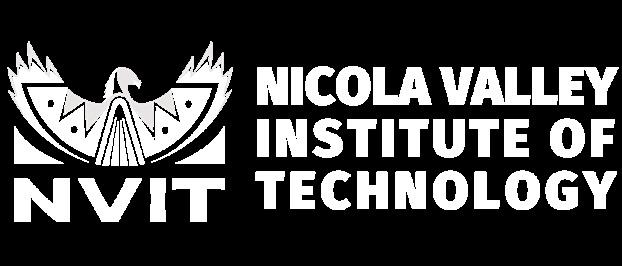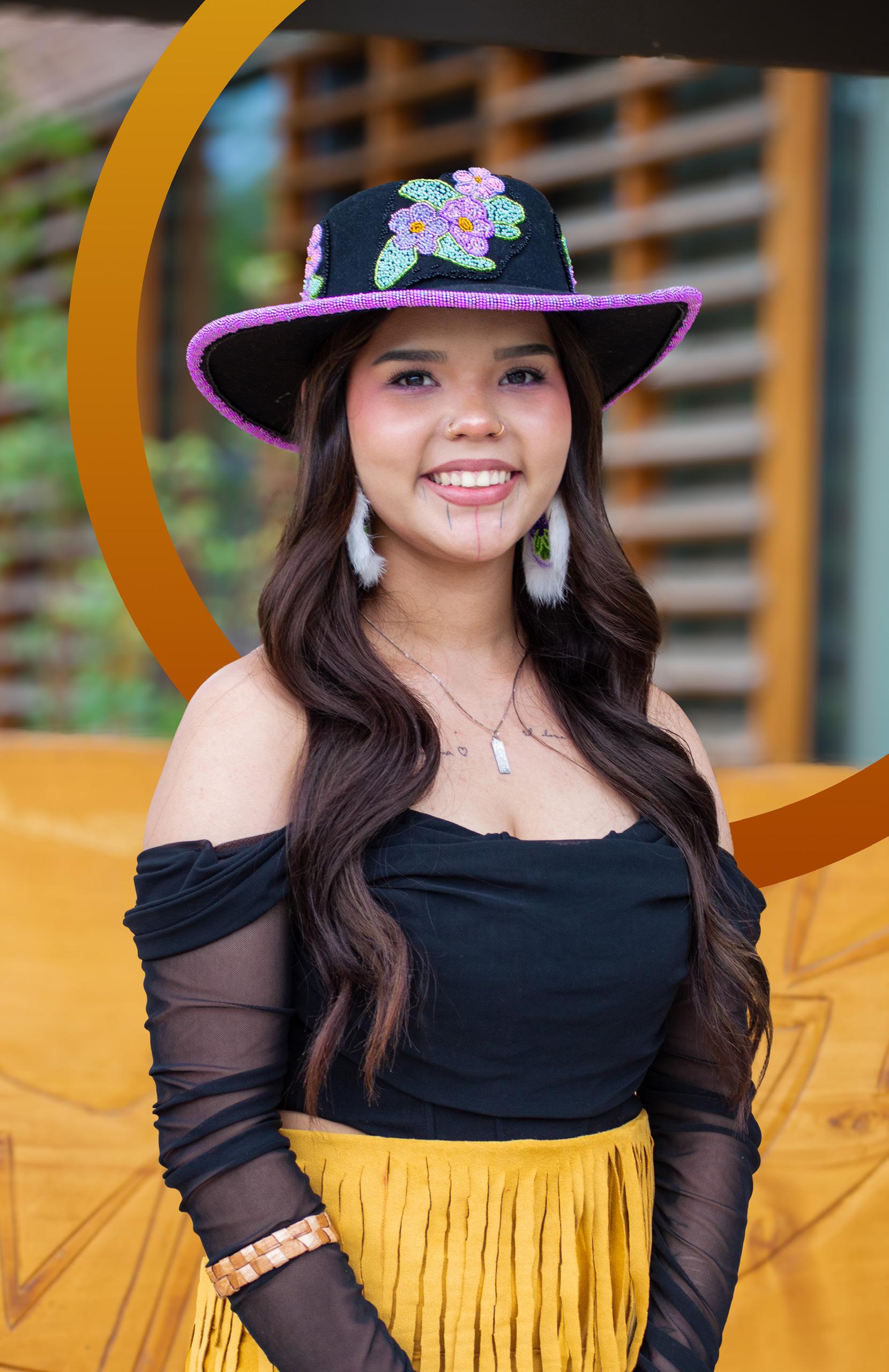

AT A GLANCE
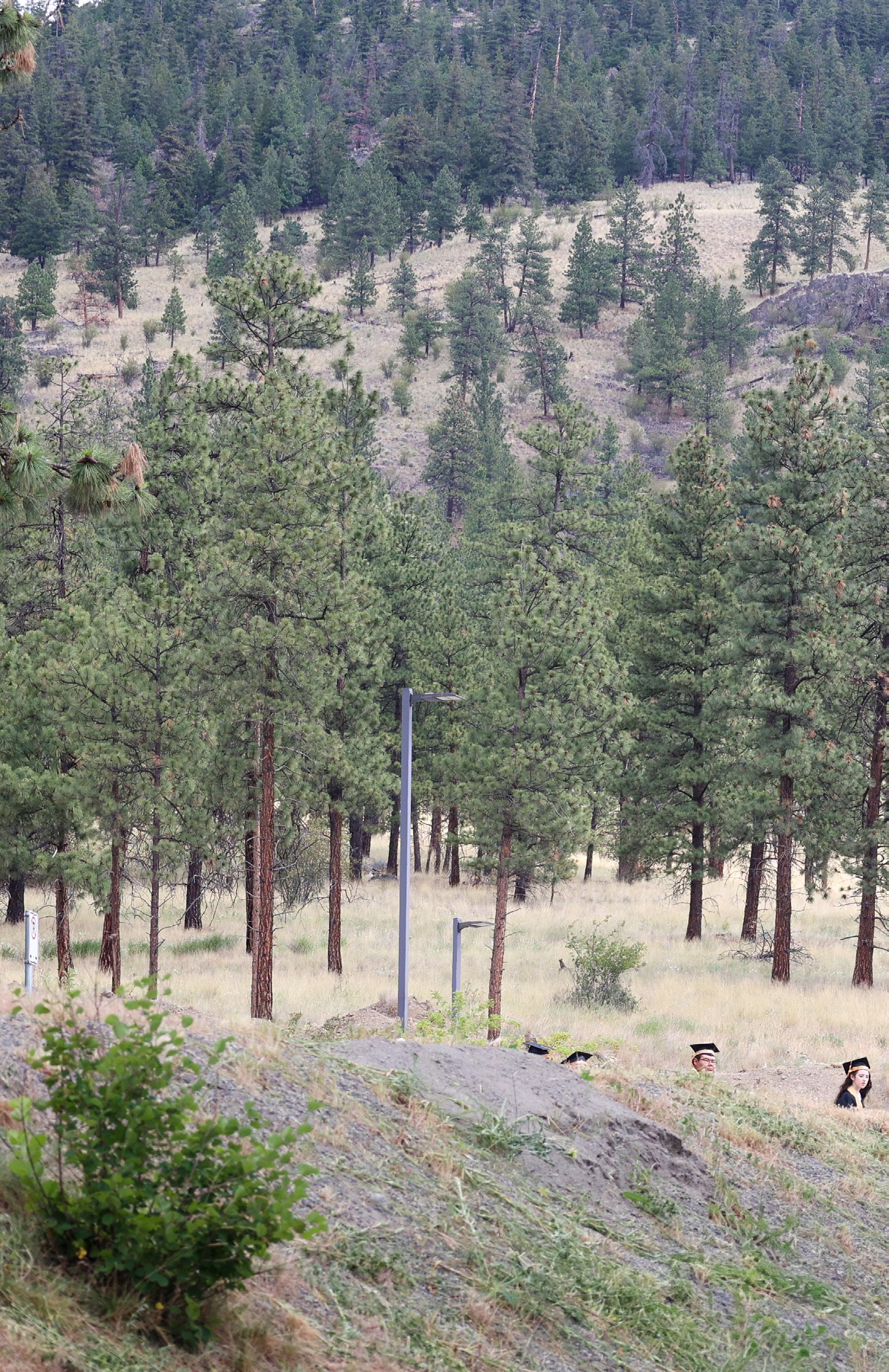

hen̓ɬeʔ, wayʼ, Hello
Nicola Valley Institute of Technology (NVIT) is located on the unceded lands of the Nłeʔkepmx' and Sylix, and Coast Salish Peoples. Specifically, the shared territories of the Coldwater, Lower Nicola, Nooaitch, Shackan, and Upper Nicola First Nations - NVIT's 5 founding communities in 1983, as well as the xwməθkwəy̓əm (Musqueam), Sḵwx̱wú7mesh (Squamish), and Səlílwətaʔ (Tsleil-Waututh) First Nations.
cʔexʷmintimet te sƛʔekep ne tmixʷkt limləmt kl snm'ayʔm'aʔtnet
Welcome to Our Institute
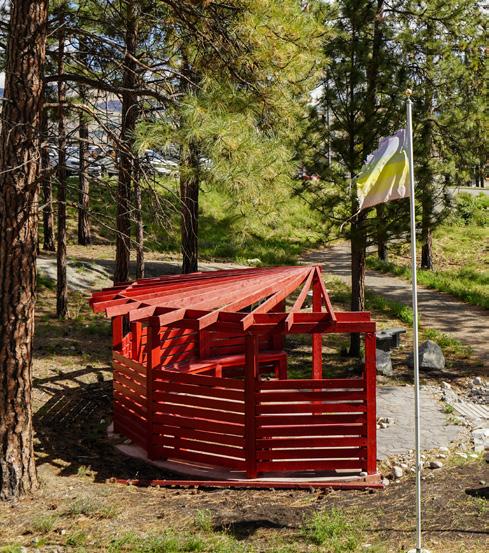
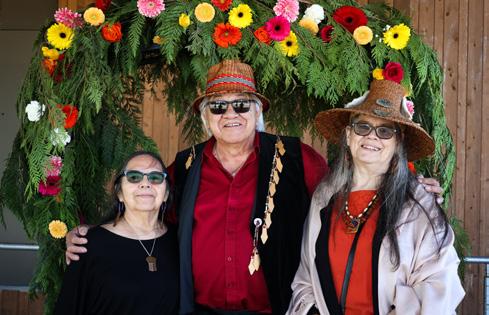
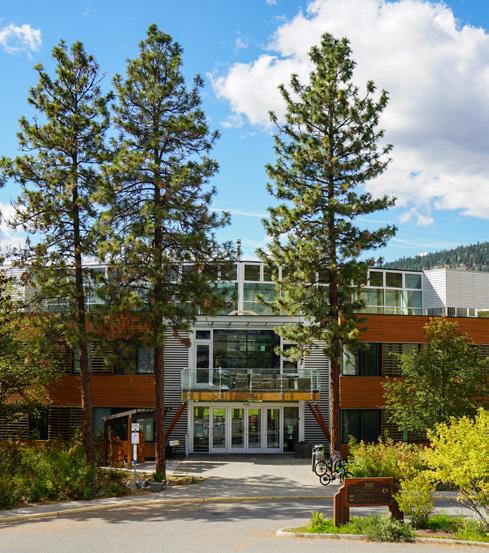
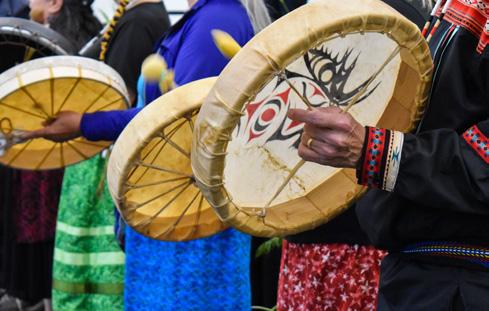
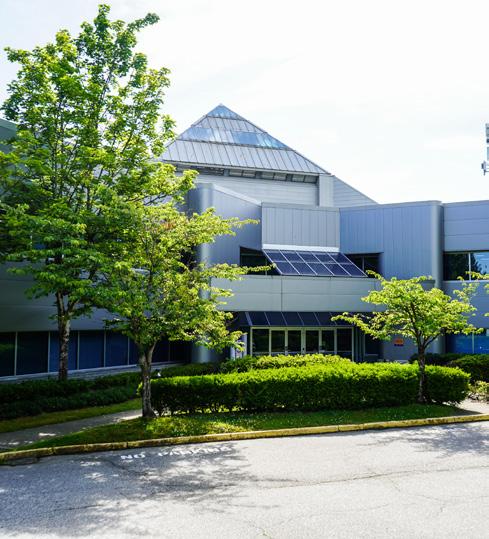
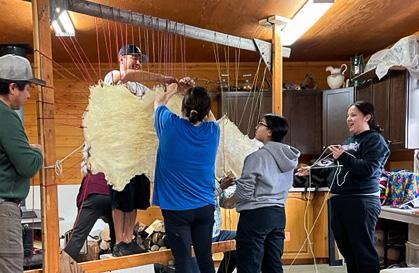
Nadut’en
Niwhkinic
Nłeʔkepmx
Nsyilxcen
Secwépemc
St’át’imcets
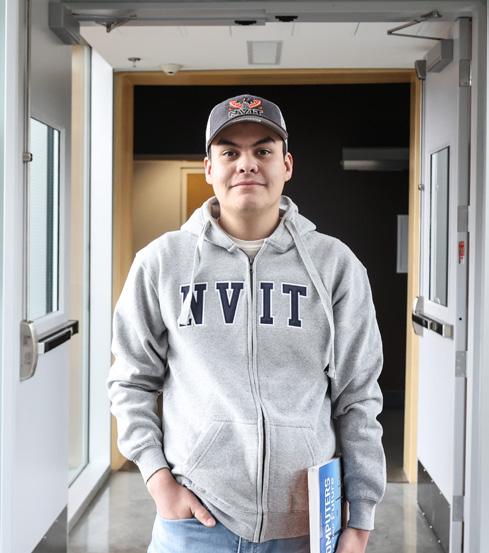
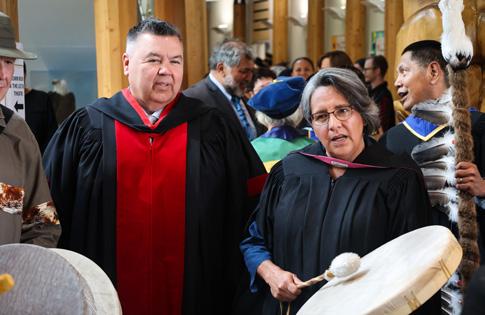
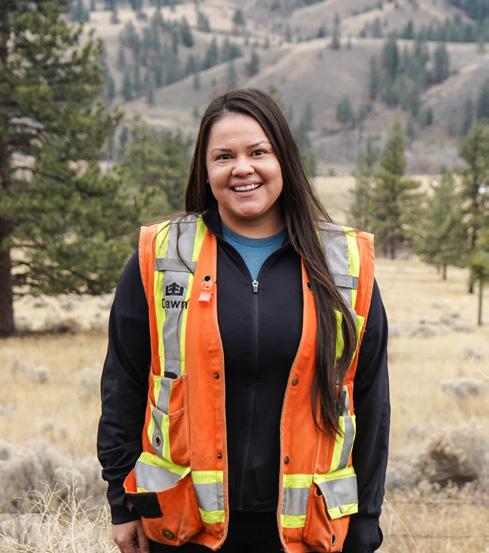
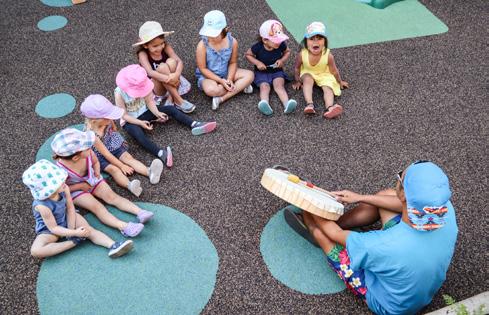
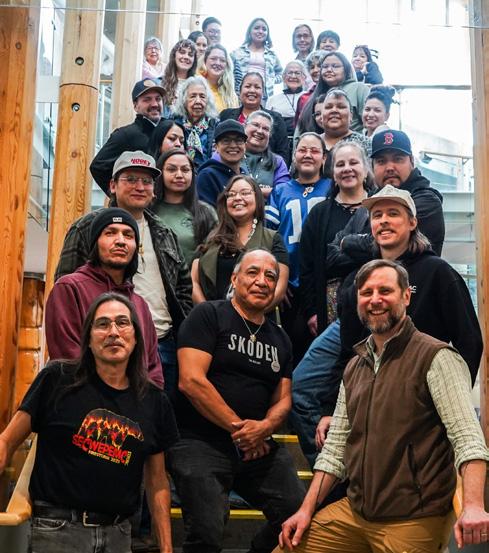
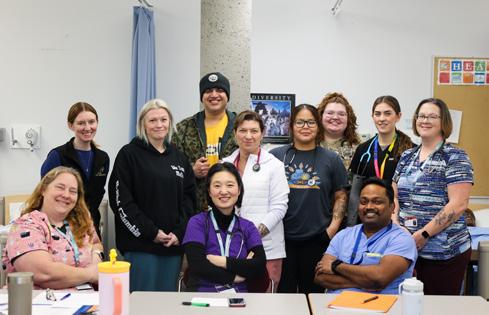
A MESSAGE FROM DR. JOHN CHENOWETH, NVIT PRESIDENT & CEO
hen̓łeʔkʷ ~ way’
Welcome to Nicola Valley Institute of Technology, BC’s Indigenous Public Post-Secondary Institution!
Founded in 1983 by the five First Nations bands of the Nicola Valley, NVIT was created as a place for Indigenous people to thrive in learning in discovering their passion. Beginning with 13 learners in a forestry program, NVIT now serves approximately 1,500 learners, proudly representing nearly 70% of First Nations communities in BC. We have two campuses: our first one in Merritt and our Vancouver house in Burnaby. Beyond these campuses, NVIT reaches over 35 Indigenous communities through Community Education, providing an alternative learning model for those who prefer to stay in their community.
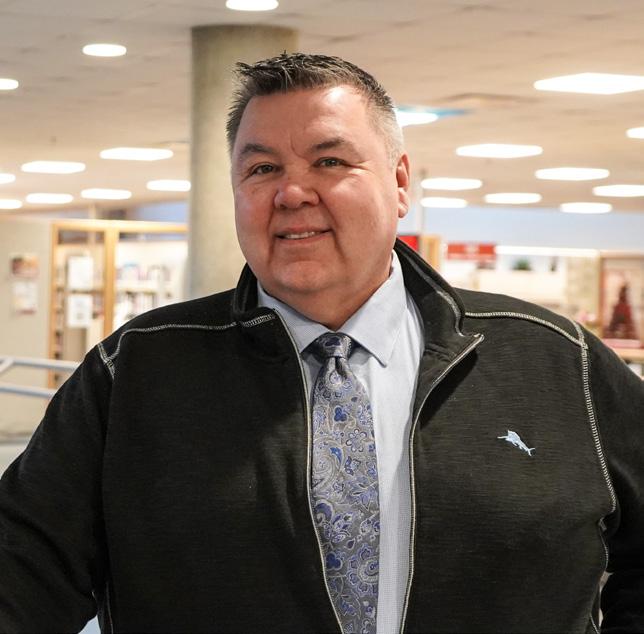
All of us have an inner desire to support our people and the longing to serve our communities is what drives us to enrol in post-secondary to “up” our skills. At NVIT, we understand this inner drive and want you to know that we understand you and we want to help you, help your people!
With this in mind, NVIT is learner-centered, community-grounded, and culturally-inspired. Our strength lies in being an Indigenous institution, honouring the vision of our five founding bands. As BC’s Indigenous public post-secondary institute, we deliver Indigenous education across the province. This includes offering an Immediate Entry Bursary to all Indigenous Grade 12 graduates in BC, as well as to non-Indigenous Grade 12 graduates from School District #58, #74, #78, Logan Lake Secondary, and Similkameen Elementary Secondary. Governed by a First Nations board, supported by an Elders’ Council, and driven by a dedicated team, NVIT continues to advance Indigenous education, offering a wide range of programs that support various career paths.
Explore this year’s edition of our “At A Glance” viewbook to find the program that suits you. At NVIT, you will access programs enriched with Indigenous knowledge, taught by passionate faculty, and supported by committed staff.
Join our NVIT family and experience the NVIT difference. Let us help you to help your people in providing a place where the following principles are valued: xast Ispʔus (my heart is good), and təw xwen Ɂe ƛɁek uxw (who are you?).

John Chenoweth, PhD NVIT President & CEO
FIVE FOUNDING BANDS
Nicola Valley Institute of Technology is a full and independent member of British Columbia’s public post-secondary education system with legislated authority to grant its own course credits and transcripts. NVIT offers innovative and relevant credentials for future Indigenous leaders in the fields of wellness, technology, land and economic development. These programs are guided by the commitment and vision of NVIT’s five founding bands. This vision encompasses and honours Indigenous traditional culture and values while recognizing the need to balance these within the educational goals of the Institute’s curriculum and programming.
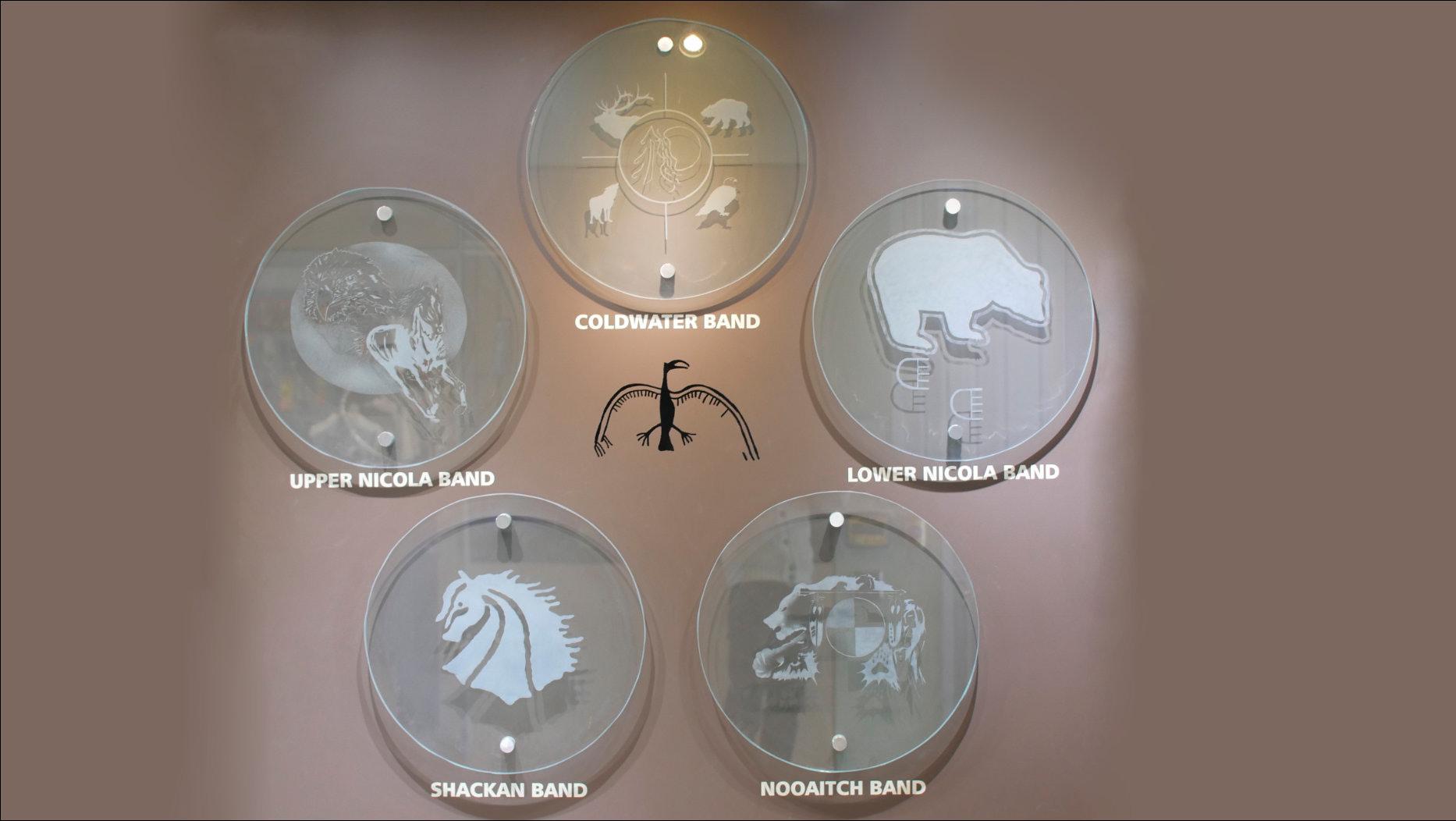
THE FIVE FOUNDING BANDS
Coldwater, Lower Nicola, Nooaitch, Shackan and Upper Nicola.
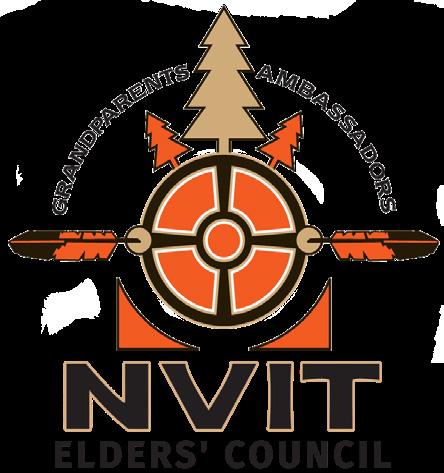
THE FOUNDATION OF NVIT IS THE ELDERS COUNCIL
Stepping into the role of grandmothers and grandfathers, the members of the NVIT Elders Council possess a wealth of wisdom and life experiences with specific knowledge in Indigenous culture that they are eager to share with our learners, faculty, staff, and visitors.
The NVIT Elders Council has 15 members representing Indigenous and Métis communities across Canada. Each campus has a group of Elders who continually provide cultural support through smudging, prayer circles, traditional games, cultural activities and social events. The Elders also provide a food and clothing bank. Their presence on campus is a source of pride and comfort for the Institute.
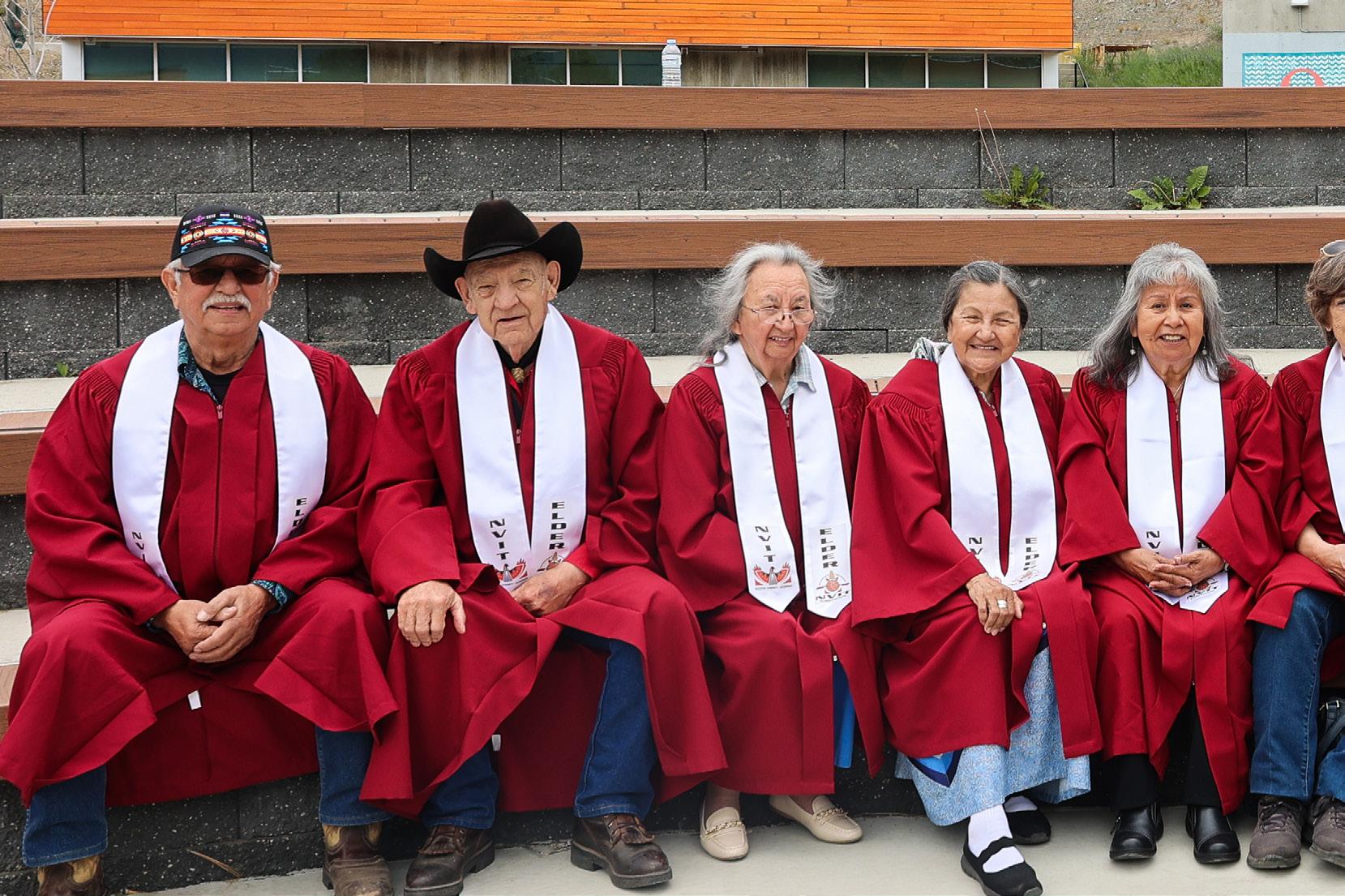
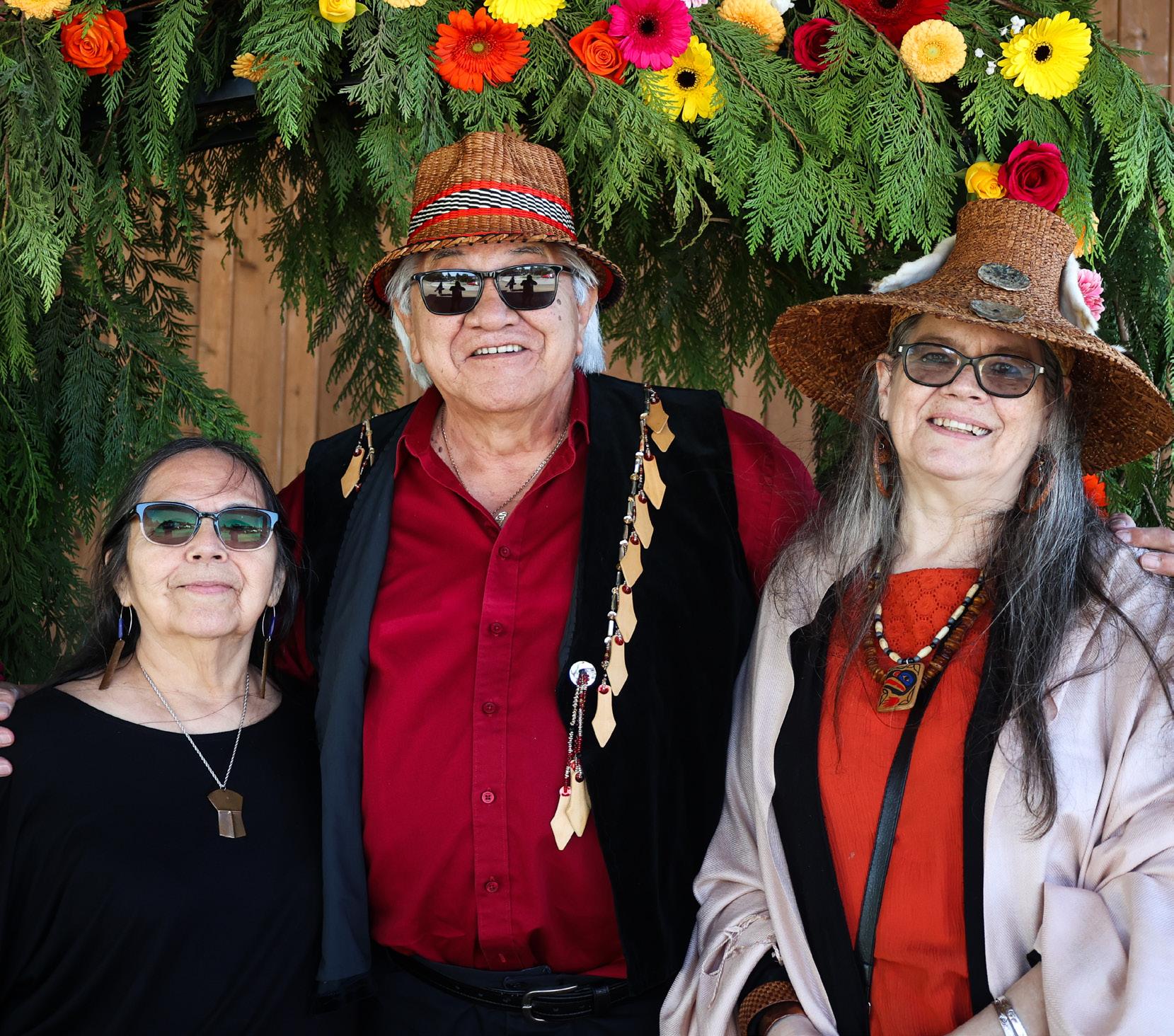
The NVIT Elders Council is here to support the students as they embark on their journey to a higher education. For generations, Elders have passed on their knowledge, culture, tradition, and wisdom, as we are now passing on to you. We are here to assist and support students’ success—whether it is spiritually, mentally, emotionally, to be a grandparent, to comfort you, or to be there when you need to talk. It is very important for us to be here for you as you grow and keep moving forward on your journey.
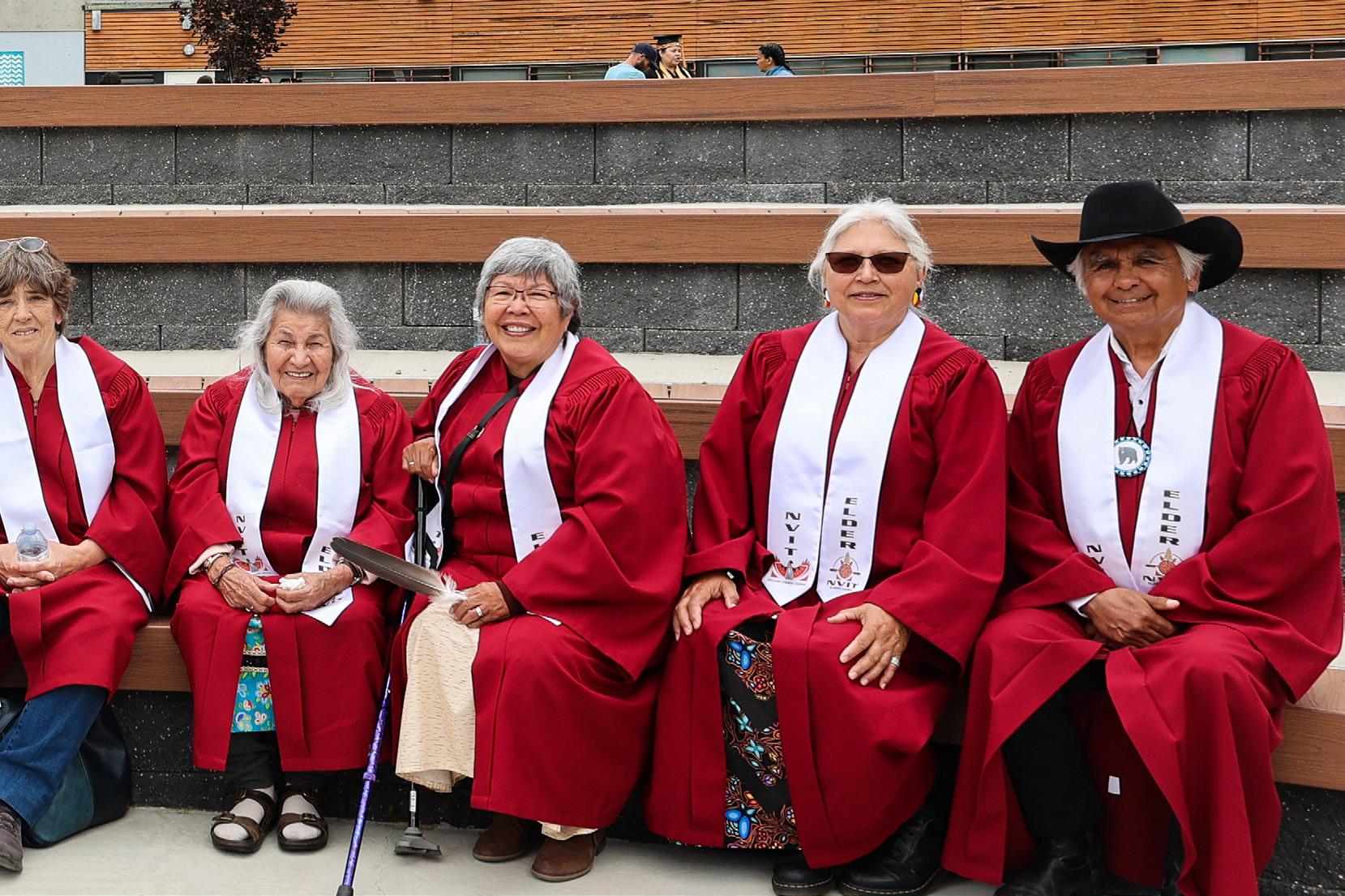
VISION
y̓ehełc̓I ~ x̌słcawt
Our spirit, essence, emotions, and intelligence are good.
MISSION
sƛəq̓méyt ~ nakʷúlaʔmnt
We commit ourselves to sharing our traditional ways.
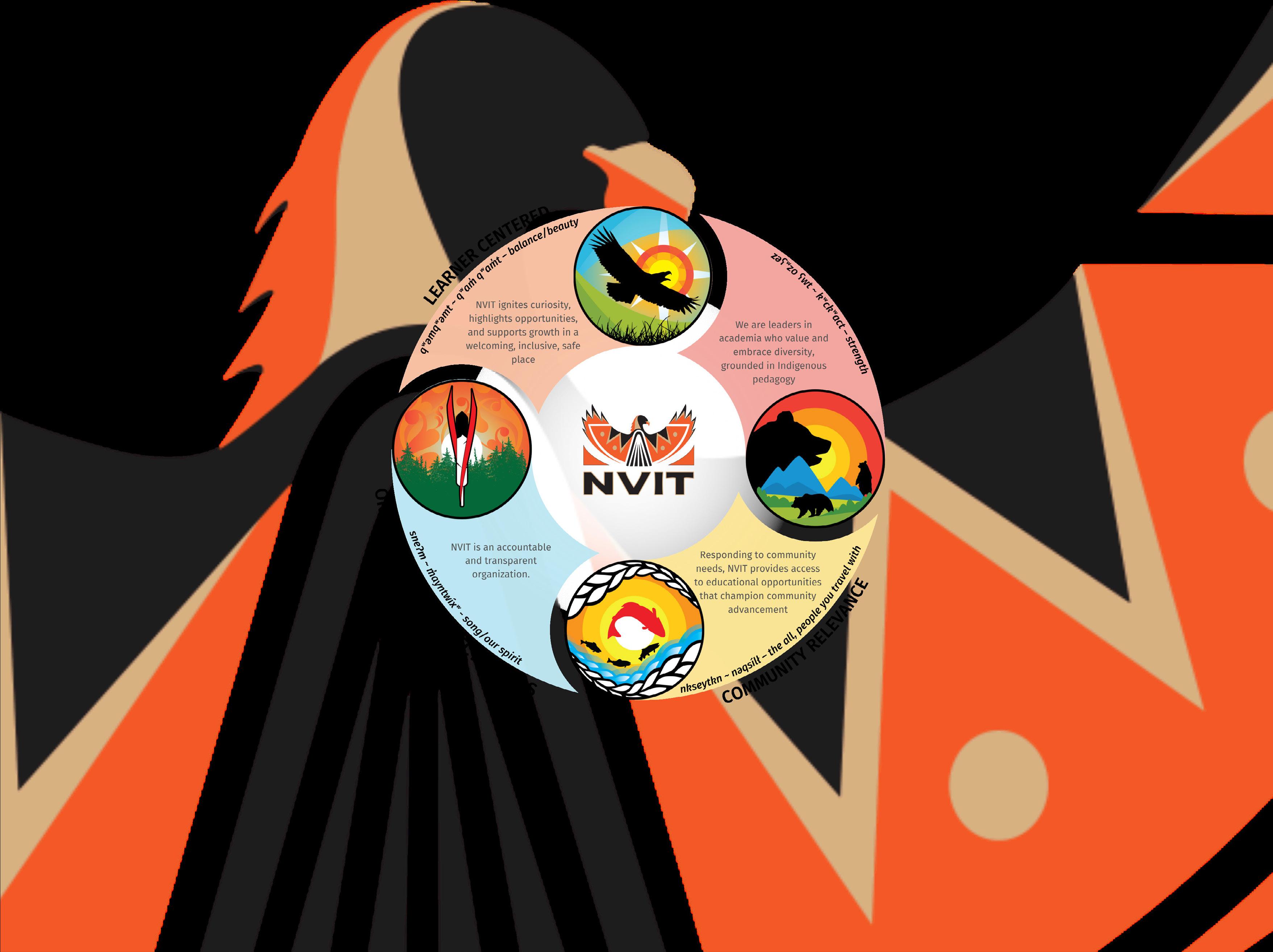
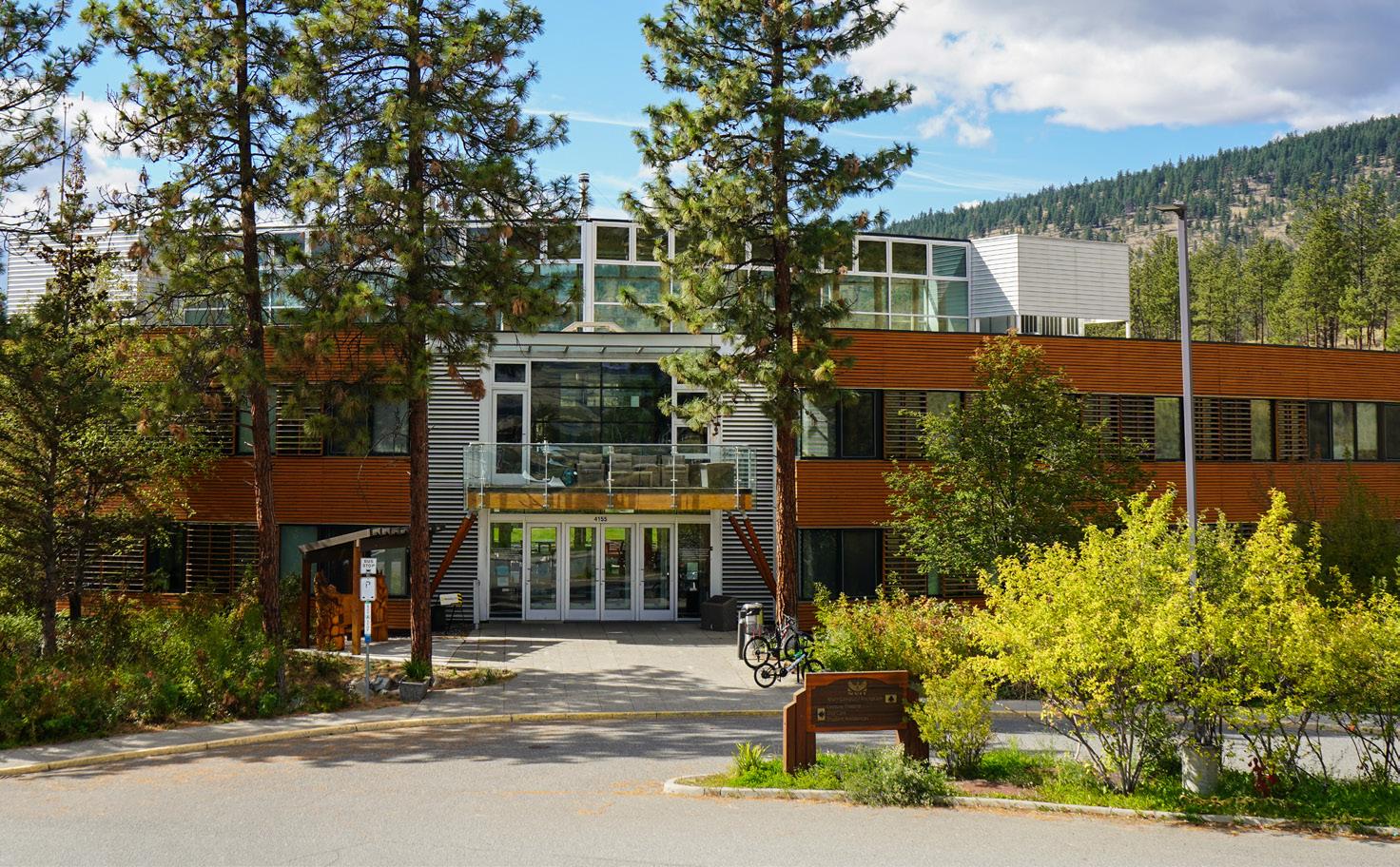
MERRITT
NVIT’s first house, also known as the Eagles’ Perch campus, serves 651 learners and supports 955 community learners.
We are located on the unceded traditional territories of the Nłeʔkepmx and Syilx people.
Merritt, BC is a small community nestled in the Nicola Valley. It is ideally situated for those who seek a peaceful country living with easy access to urban centres. It is a one-hour drive to Kamloops and Kelowna, and a three-hour drive to Vancouver.
NVIT learners can access on-site housing, daycare, and over 30 different programs. Merritt offers an array of entertainment and recreational activities encouraging individuals to get directly involved with the community. These include a friendship centre, numerous clubs, organizations, youth groups and sports teams.
Amphitheatre Bookstore
Culinary Arts Kitchen
Daycare Centre Fire Place Campus Facilities

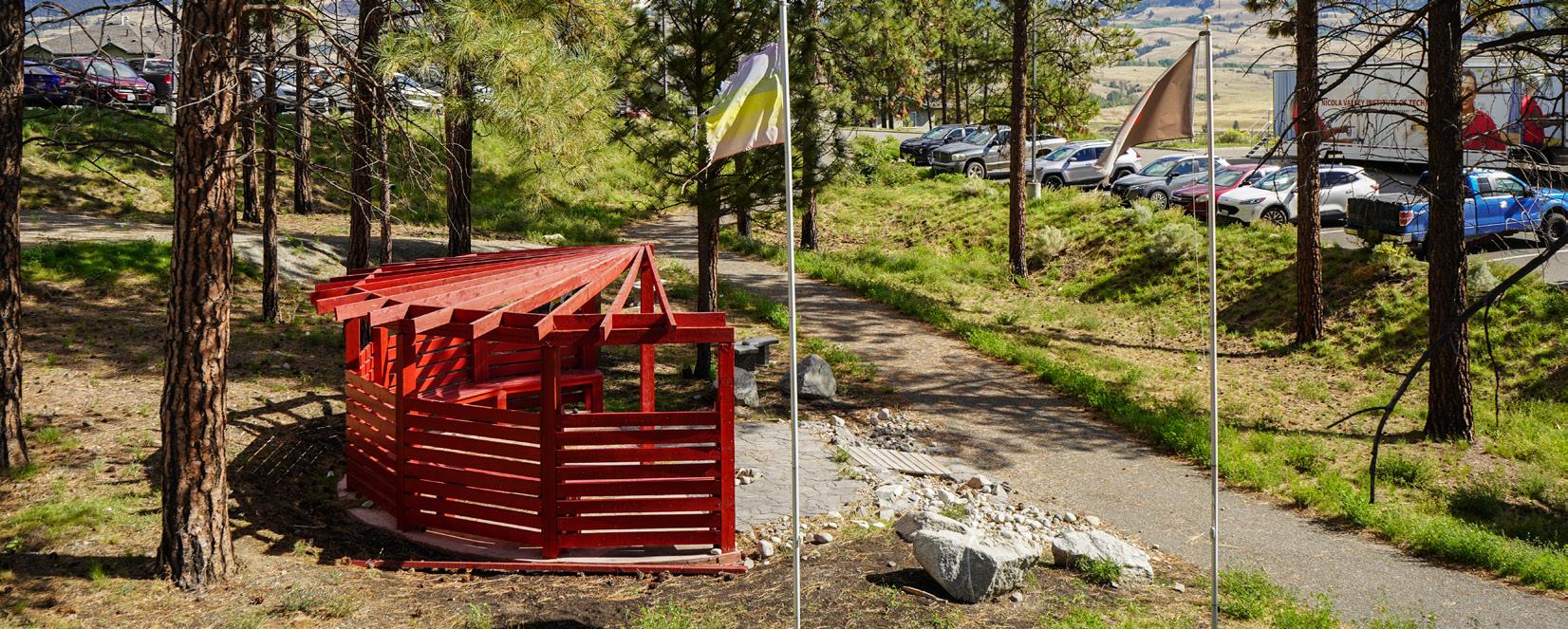
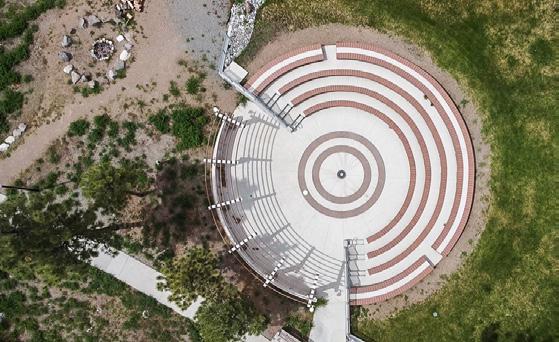
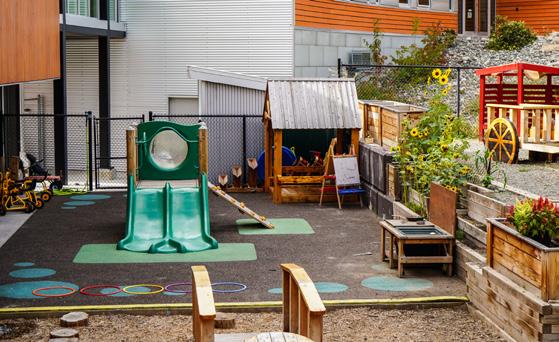
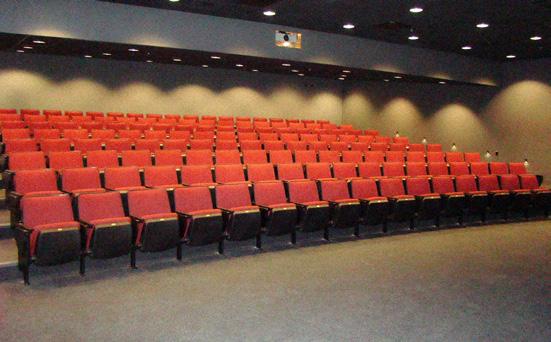
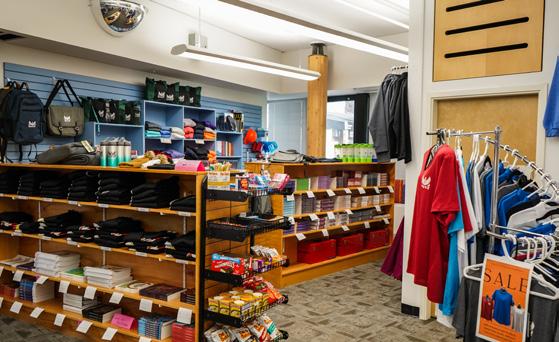
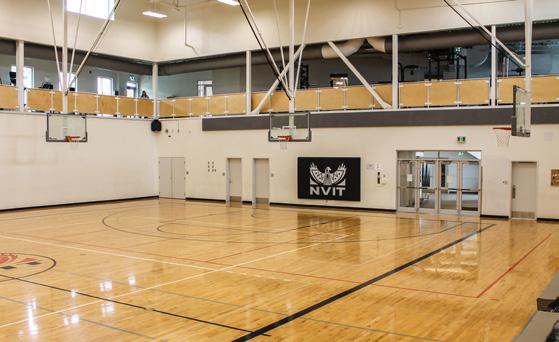

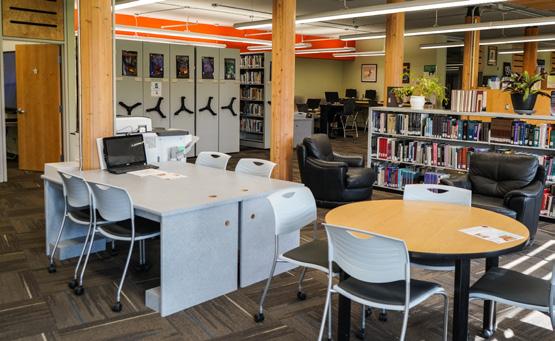
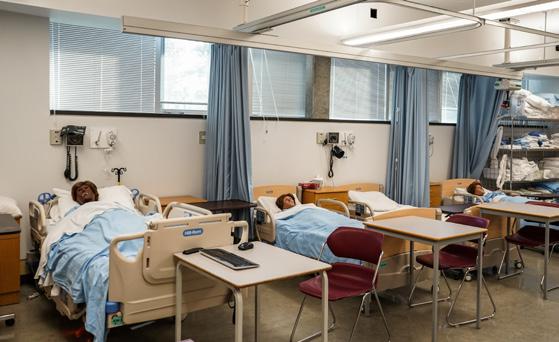

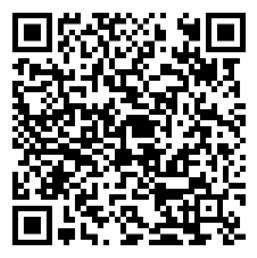
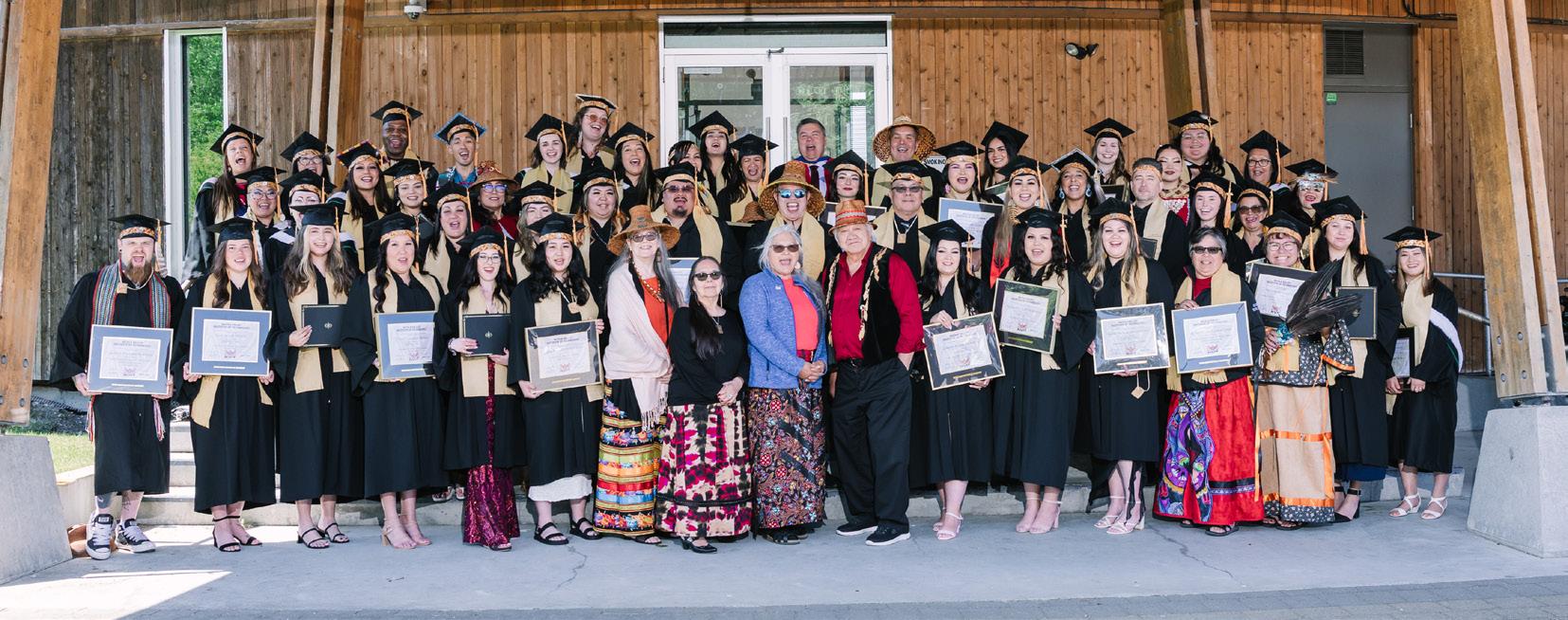
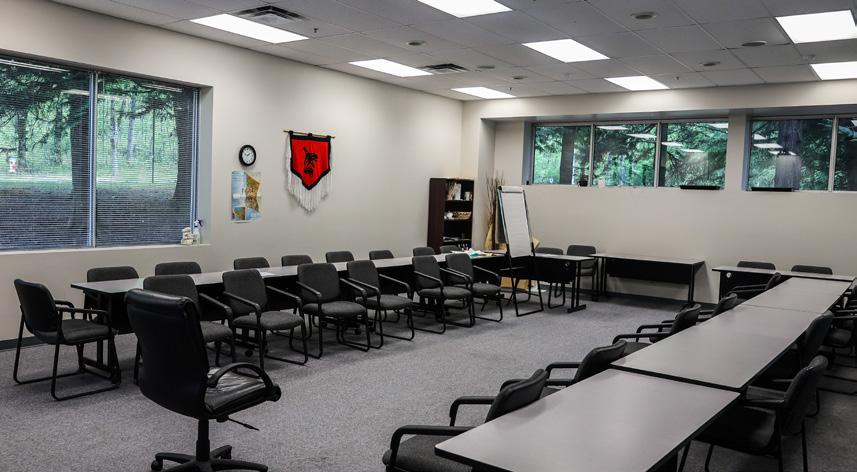
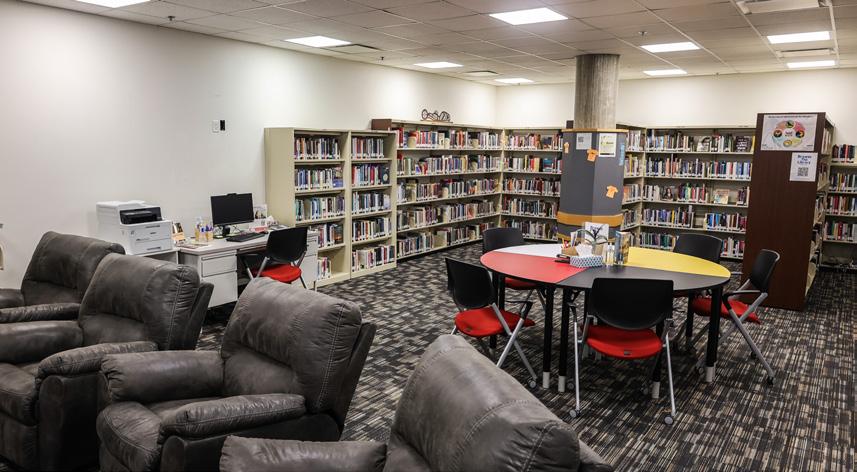
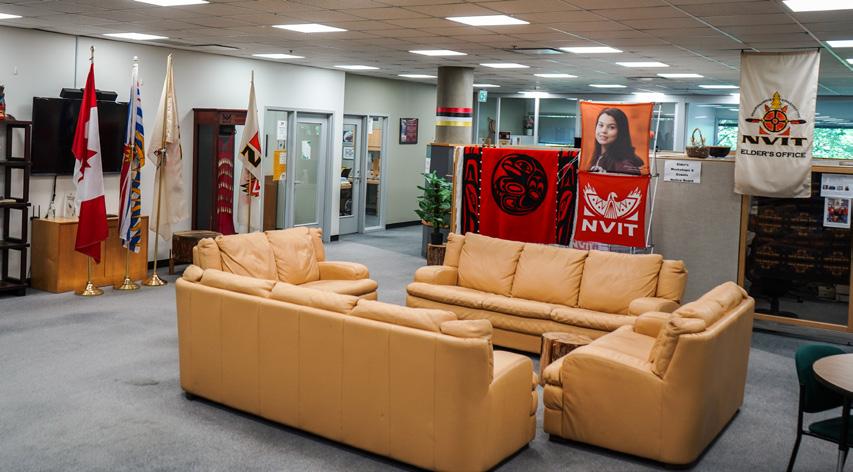

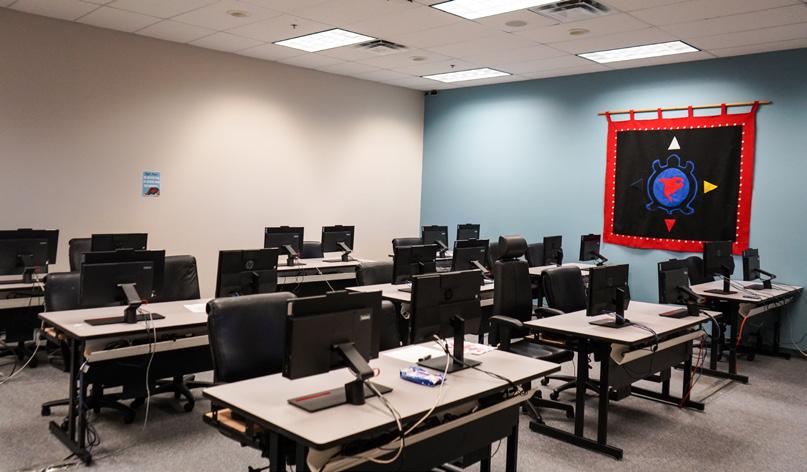
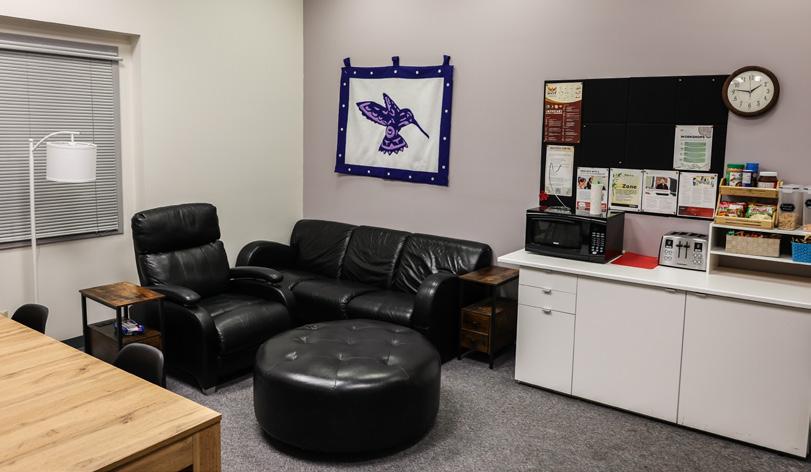

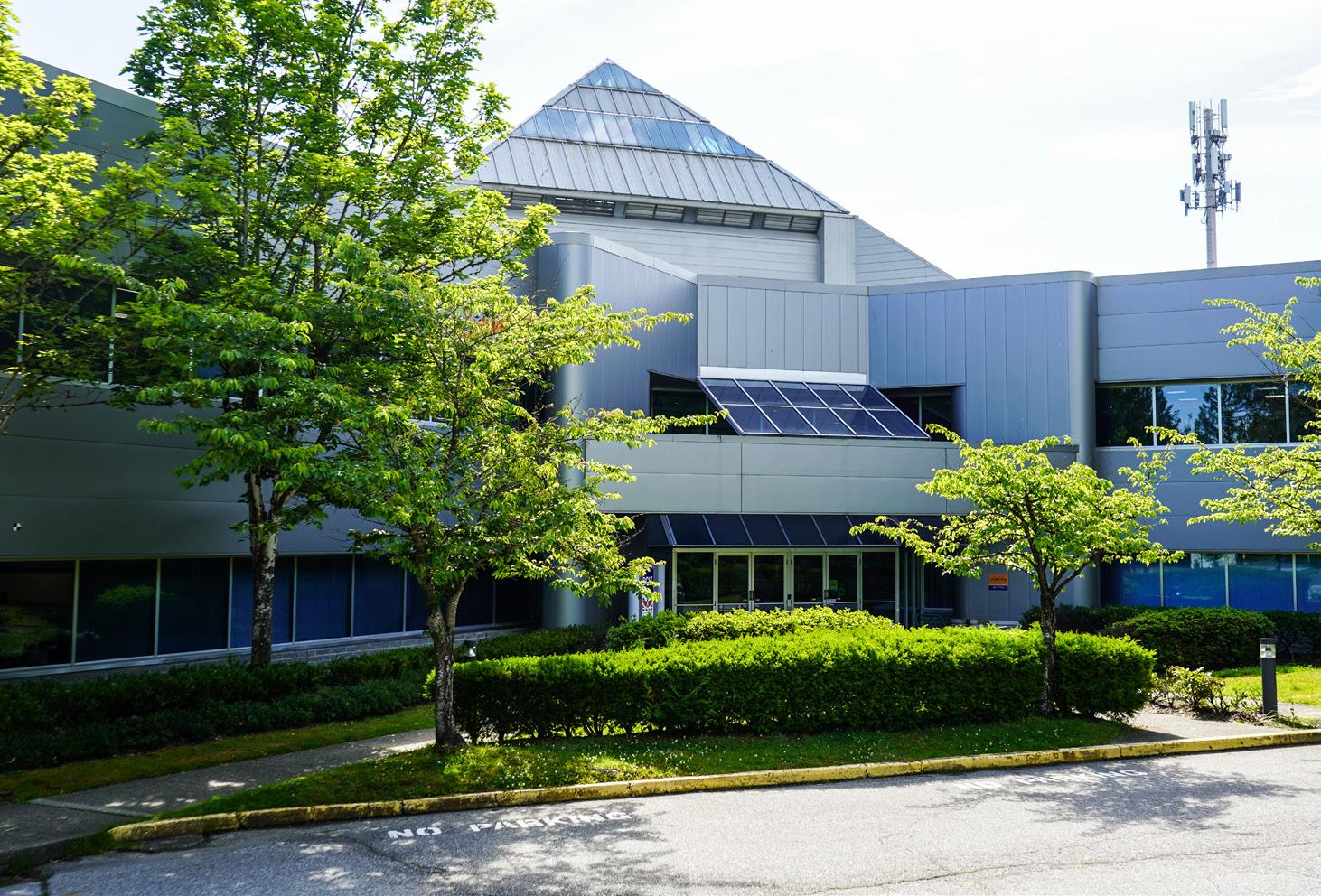
VANCOUVER
NVIT’s second house, located in Burnaby, BC, is home to 172 learners.
Programs include: Indigenous Holistic Wellness and Addiction Certificate/Diploma/Advanced Diploma, Associate of Arts Degree in General Arts and a Bachelor of Social Work Degree.
We are located on the unceded traditional territory of the Coast Salish.
Computer Lab Gathering Centre Learning Commons Campus Facilities
The three host nations of this region are xʷməθkʷəy̓əm (Musqueam), Sḵwx̱wú7mesh Úxwumixw (Squamish), and səlilw̓ətaʔɬ (Tsleil-Waututh).
NVIT announced that a new Vancouver campus is planned to be built in partnership with the Urban Native Youth Association and the City of Vancouver.
Student Lounge Success Centre
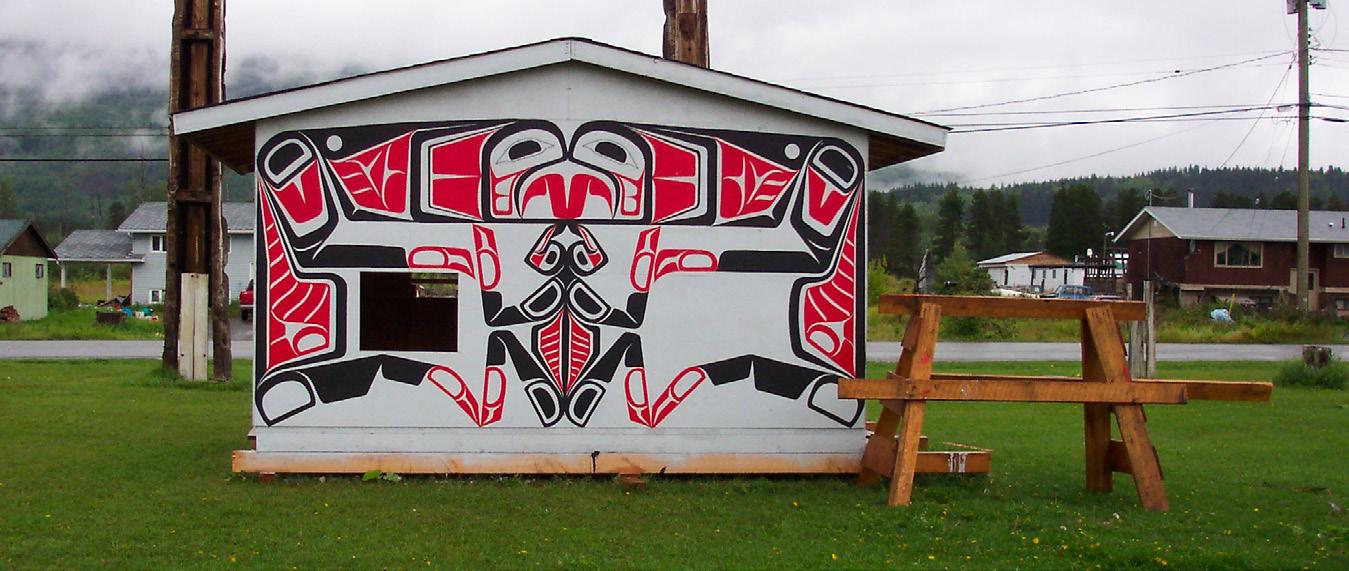
COMMUNITY EDUCATION
Community Education (CE) at NVIT offers a unique approach to learning, bringing educational opportunities directly to Indigenous communities across British Columbia and Canada. This model allows learners to study in their own community, accommodating those who prefer to stay close to home or who are balancing work commitments. NVIT’s CE Department extends the full range of programs and courses available at NVIT campuses to these communities, and is flexible in developing new programs tailored to meet local needs and aspirations.
Community-based delivery helps learners to pursue NVIT certificate, diploma programs, or individual courses from home by bringing the classroom directly to their community. NVIT collaborates closely with community training schedules and requirements, ensuring accessible and high-quality public post-secondary education.
Director, Community Education
Chelsea Vaughan 250.378.3378 cvaughan@nvit.ca
In the past year, NVIT’s Community Education Department delivered programs and courses within the following communities:
Bella Coola, BC
Bonaparte First Nation, BC
Chase, BC
Dease Lake, BC
Fraser Lake, BC
Hazelton, BC
Iskut, BC
Kamloops, BC
Lake Babine, BC
Lax Kwa’laams, BC
Lil’wat, BC
Lillooet, BC
Merritt, BC
Musqueam, BC
Ontario Penticton, BC
Prince George, BC
Prince Rupert, BC
Sapotewayek, MB
Sheshatshiu, LB
Sik E Dakh, BC
Stein Valley, BC
Vanderhoof, BC
Whitehorse, YK
Williams Lake, BC
COMMUNITY-BASED ASSESSMENT
The Community Based Assessment (CBA) project brings an NVIT facilitator to your community to work with adult learners at both group and individual levels. This service is ideal for adults who are interested in returning to school to complete high school graduation or other post-secondary programs, as it provides a snapshot of their current knowledge level.
What is it?
An English and Math assessment done in your own community.
What is the purpose?
To encourage education and to provide prospective adult learners with an understanding of the level of their current skills.
What is involved?
• Assessment preparation workshop
• Self-paced assessment
• Assessment review
• Individualized educational plans
• Summary of results
INVITE US TO YOUR COMMUNITY! Book a Community-Based Assesment
Admissions & Registration registrarsoffice@nvit.ca
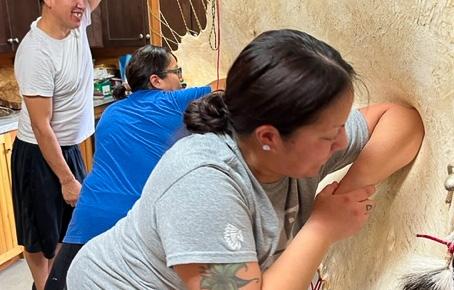
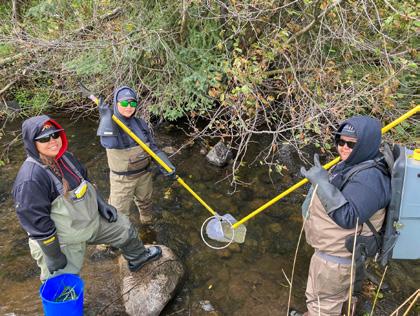
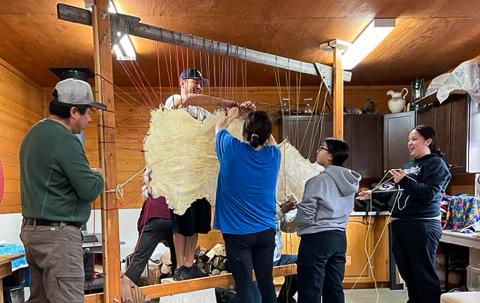
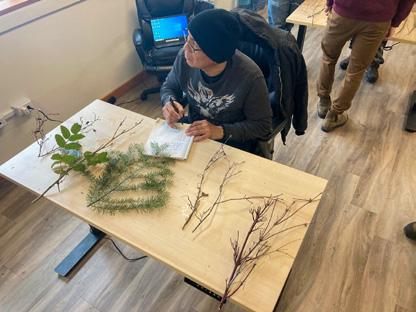
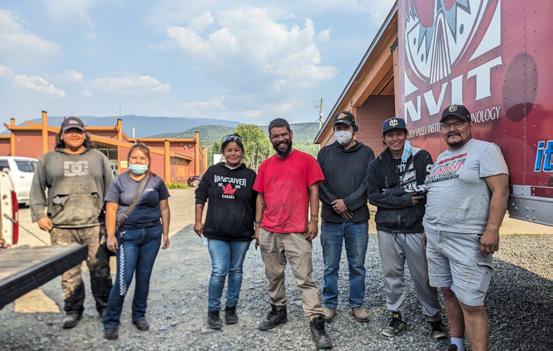
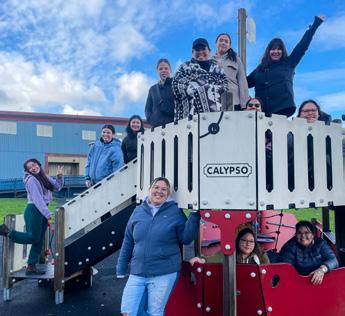

PROGRAM SUMMARY
Micro-Credentials
Building Indigenous Theory
Indigenous Early Childhood Education Assistant
Indigenous Support Worker Training
First Nations Leadership Orientation
Indigenous Court Orientation
Academic & Career Preparation
Bridging to Trades
College Readiness
Youth Explore Trades Sampler
Business
Aboriginal Community Economic Development
Aboriginal Governance and Leadership
Indigenous Business
Office Administration
Executive Assistant
Medical Office Assistant
Education
First Nations Speech and Language Assistant
Indigenous Adult Instructor
Indigenous Early Childhood Education
Environmental Studies
Environmental Resources Technology
Health
Health Care Assistant
Access to Practical Nursing
LEGENDS:
Offered in a hybrid format
Offered in Communities
Offered at Vancouver Campus
Offered at Merritt Campus
Human Services
Indigenous Holistic Wellness and Addictions
Indigenous Human Services
Trades
Carpenter
Professional Cook
Electrician Foundation
Residential Construction Foundation
Welder Foundation
University Transfers
Associate of Arts Degree in General Arts
Open Certificate
Transformative Education Pathway
Bachelor of Social Work
Indigenous Language Fluency
Dakelh Language Fluency
Nadut’en Language Fluency
Niwhkinic Language Fluency
Nłeʔkepmx Language Fluency
Nsyilxcen Language Fluency
Secwépemc Language Fluency
St’át’imcets Language Fluency
Community Education Online Course Offerings
NVIT is proud to deliver online courses to learners in all areas of the province. Online learning allows the learner to complete courses without having to attend in-person scheduled classes. However, most classes have scheduled start and end dates meaning learners must work through the assignments according to the course syllabus (provided by the instructor). Learners will interact with the instructor and other students online so each learner must have access to a computer and reliable internet access.
PROGRAM SUMMARY
Micro Credentials
Human Services
Indigenous Holistic Wellness and Addictions
Advanced Diploma 1 year / 2 years / 3 years Indigenous Human Services
1 year / 2-3 years
Trades
University Transfers
Associate of Arts Degree in General Arts
Language Fluency
Language Fluency
Language Fluency
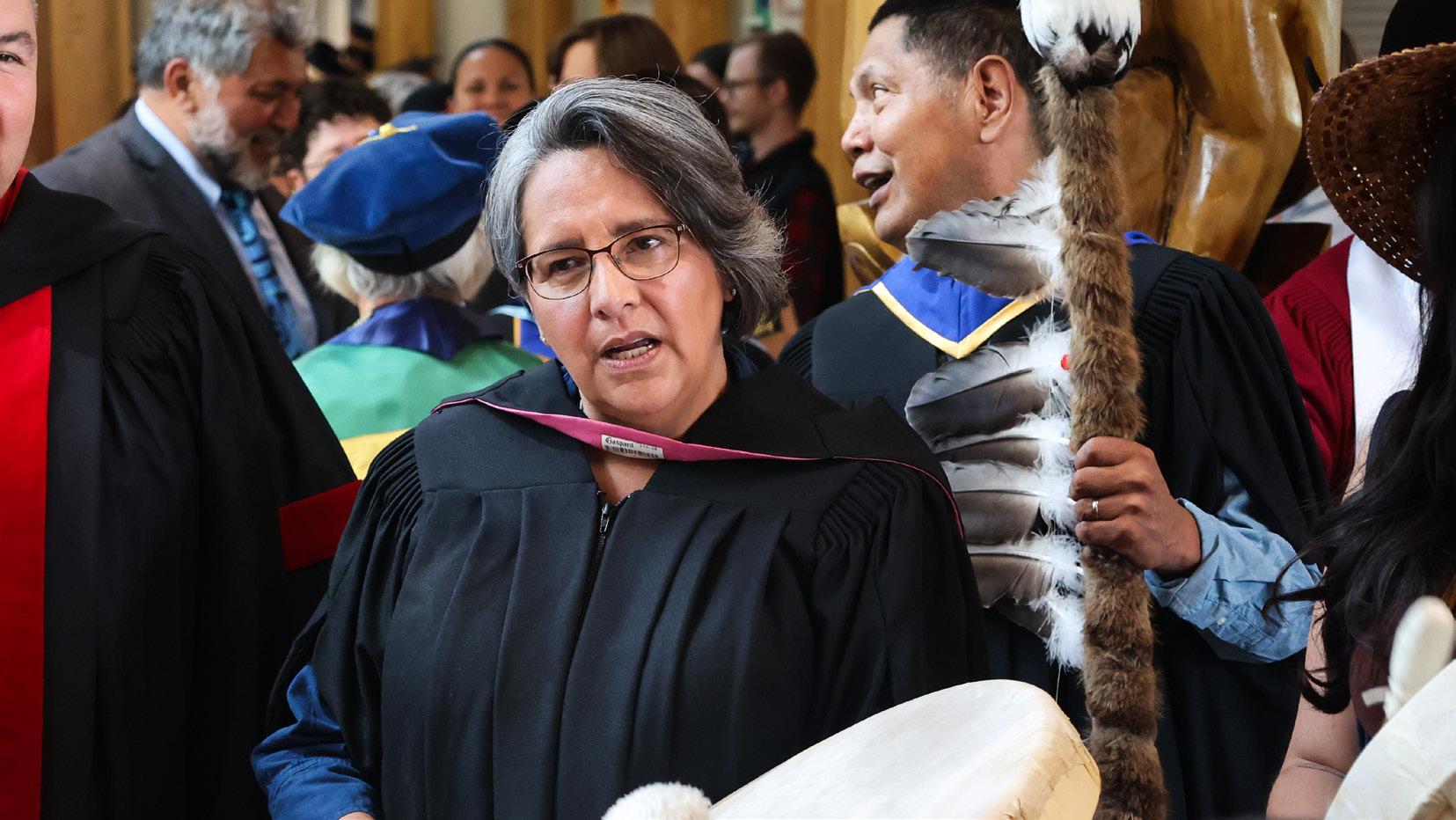
Micro-Credentials
BUILDING INDIGENOUS THEORY
For-Credit Micro-Credential
This micro-credential program offers coursework included in NVIT’s Indigenous Adult Instructor Diploma (IAID) program as it is designed to provide learners with the transferable skills and knowledge to facilitate teaching and learning in an Indigenous adult learning environment. Course activities and tasks are intended to help participants envision and practice how to incorporate Indigenous worldviews, epistemologies, typologies, and learning approaches into adult education. Participants will develop their teaching and learning philosophy and practice, and strengthen their work with Indigenous learners, families, communities, and nations.
The purpose of this micro-credential is to prepare students for acceptance into a Master’s program. This micro-credential will be delivered in a cohort model one semester prior to the beginning of the Master’s program. This will allow time for learners to adjust to returning to class, develop study methods, build family resilience and acquire the strategies and skills required for the Master’s program. Learners will receive a microcredential upon successful completion of the required six courses within the program.
Requirements
• Mature student status (19 years of age) with:
• English 12 or English Studies 12 or English First Peoples 12 or ENGL 060.
INDIGENOUS EARLY CHILDHOOD EDUCATION ASSISTANT
For-Credit Micro-Credential
This comprehensive micro-credential program offers three courses for students to have an advanced understanding of the requirements needed to become an Early Childhood Educator Assistant. The intent of the IECE Assistant micro-credential is to encourage employment while completing the additional academic requirements to attain a certificate in Indigenous Early Childhood Education at NVIT.
Requirements
• Grade 12 graduation or Mature student status (19 years of age) with:
• English 12 or English 12 First Peoples or English 060 or equivalent*
*High school students interested in taking this program as a dual credit option before graduation are encouraged to contact one of our Academic & Financial Planners for more information.
INDIGENOUS SUPPORT WORKER TRAINING
For-Credit Micro-Credential
This 8-week program focuses on training students to work in Indigenous communities as health care assistants. The program covers various topics such as cultural diversity within Indigenous groups; respecting traditional knowledge and practice; providing culturally sensitive care; health access for Indigenous people; confidentiality and communication; culturally sensitive communication; components of health care, self-care, and holistic care; introduction to the human body; cleaning practices; and community relevance. Upon completion of the program, students will have acquired the necessary skills and knowledge to work as support workers in Indigenous communities.
Requirements
• Grade 12 graduation or Mature student status (19 years of age) with:
• English 10 or equivalent;
• Math 10 or equivalent.
FIRST NATIONS LEADERSHIP ORIENTATION
Non-Credit Micro-Credential
The First Nations Leadership Orientation program is a 24-hour non-credit micro-credential program designed for community leadership members, this explores the principles of governance, community values, and succession planning guided by captikʷɬ. Participants will examine how First Nations governance systems, practices, and laws serve as constitutional foundations for culturally grounded protocols. The program highlights the diversity of Indigenous leadership, from traditional to contemporary governing systems, values, and ceremonies that strengthen resilience and advance social justice.
Rooted in tmixʷ, this program emphasizes that Community values are fundamental to ensuring sustainability, balance, and autonomy remain interconnected. Leadership members will engage in practical applications of interpersonal negotiation and communication strategies, bridging theory with real-world governance challenges. Rather than applying colonial governance concepts, this program reaffirms Indigenous selfgovernance as a long-standing and evolving system that existed long before colonialism and continues to shape strong, self-determined Communities.
This program is designed to provide First Nations Council members with an interconnected approach to professional development in leadership. Learning is guided by captikʷɬ to allow participants to explore First Nations governance systems, practices, and laws with opportunities to apply those practices and protocols in scenario-type activities.
Requirement
• Open registration is offered to Chief and Council Members

INDIGENOUS COURT ORIENTATION
Non-Credit Micro-Credential
The Indigenous Court Orientation Non-Credit Micro-Credential is offered to prepare individuals interested in participating in Indigenous Courts (also known as First Nations Courts) and other justice initiatives.
This credential is intended to assist and prepare individuals to understand court principles, procedures, and the goals of Indigenous Courts, so they can contribute their knowledge and experiences to the sentencing of Indigenous individuals and assist Judges in crafting probation conditions and healing plans consistent with Indigenous values and traditions.
This course is designed for delivery in the province of British Columbia, including class activities and court watching in an existing Indigenous Court and regular Provincial Court. Sessions are designed to take place in a circle setting and to encourage the incorporation of localized cultural protocols and resources.
Requirement
• Open registration is offered to individuals interested in participating in Indigenous Courts such as (but not limited to) Elders, Knowledge Keepers, Court Navigators, RCMP Officers, First Nations Justice Council Members, and Community Service Workers.
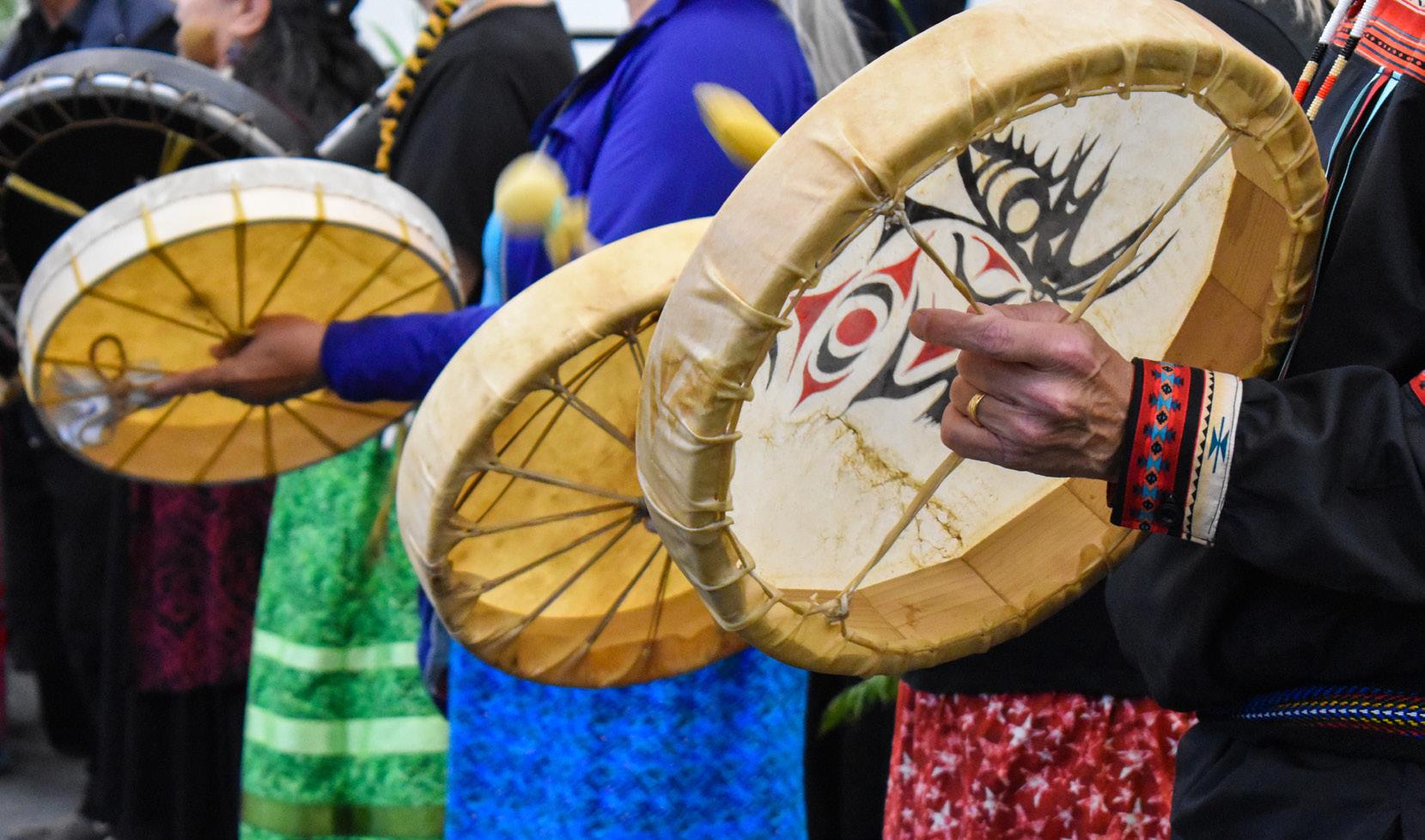
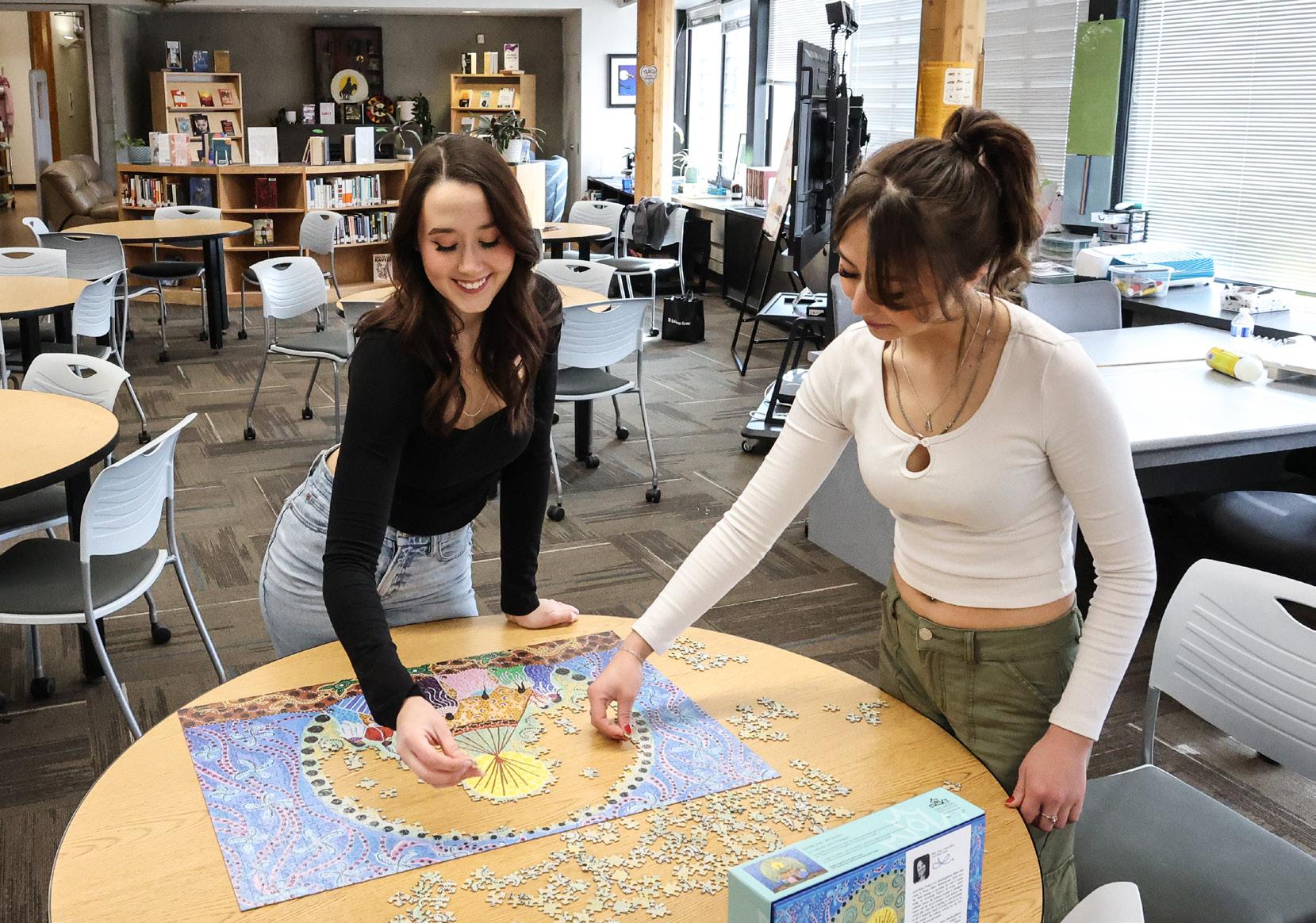
Academic & Career Preparation
BRIDGING TO TRADES
Certificate
Throughout the 12-week Bridging to Trades Certificate program (BRTR), learners are provided with pre-foundational training in several high demand industrial trades. While taking courses in NVIT’s mobile trades training trailer and in the classroom, learners develop a sound understanding of workplace safety and gain significant hands-on experience in each of the following four trades: Electrical, Plumbing/ Pipefitting, Machining/Millwright and Welding. Experiencing these four trades provides learners the opportunity to make an informed decision on which trade they would like to pursue.

Learners in this program develop necessary employment skills including resume writing, interviewing strategies and other job search related skills. Learners receive industry certifications such as Occupational First Aid Level 1, Transportation Endorsement and Workplace Hazardous Materials Information System (WHMIS).
Requirements
• Grade 10 Math is recommended
• Grade 10 English is recommended
COLLEGE READINESS
BC Adult Grad Diploma
College Readiness (CPDE2) is designed for learners seeking to complete high school or upgrade high school level academic skills before advancing to post-secondary level study. Courses in the program help learners develop skills in reading, writing, study skills, mathematics and science.
The BC Adult Graduation Diploma program is open to learners who are 19 years or older (may be 18 if out of school for at least a year providing NVIT approval). Learners must complete three courses at NVIT, or through Prior Learning Assessment, after enrolling in an adult program. Learners may be eligible for funding to cover student activity fees, lab fees, textbooks, supplies, equipment and transportation.
Requirements
Applicants are subject to general NVIT admission requirements. All learners who apply for admission to the CPDE2 program are assessed in reading, writing and mathematical skill areas. Applicants may need to meet with an Academic Planner to determine placement into courses at levels appropriate to their current abilities based on the results of these assessments. Applicants should complete assessments and registration before the first day of classes.
YOUTH EXPLORE TRADES SAMPLER
12 High school Credits
The Youth Explore Trades Sampler (YETS) program gives students a chance to explore trades further before committing to a dedicated trade. The program will provide participants with an in-depth opportunity to explore four trades: carpentry, culinary, welding, and electrical. Students will develop safe workplace practices, skills development, and workforce skills. The learning outcomes will offer students with theoretical and practical knowledge while providing an experiential and realistic overview of trades. Upon completion of the program, students will also be more job-ready after receiving workforce certificates.
The Youth Explore Trades Sampler is a partnership between Nicola Valley Institute of Technology (NVIT) and interested school districts. This is a Dual Credit system registered with SkilledTradesBC.
Requirements
• Registered in Grades 10, 11, or 12 with a partnering school district.
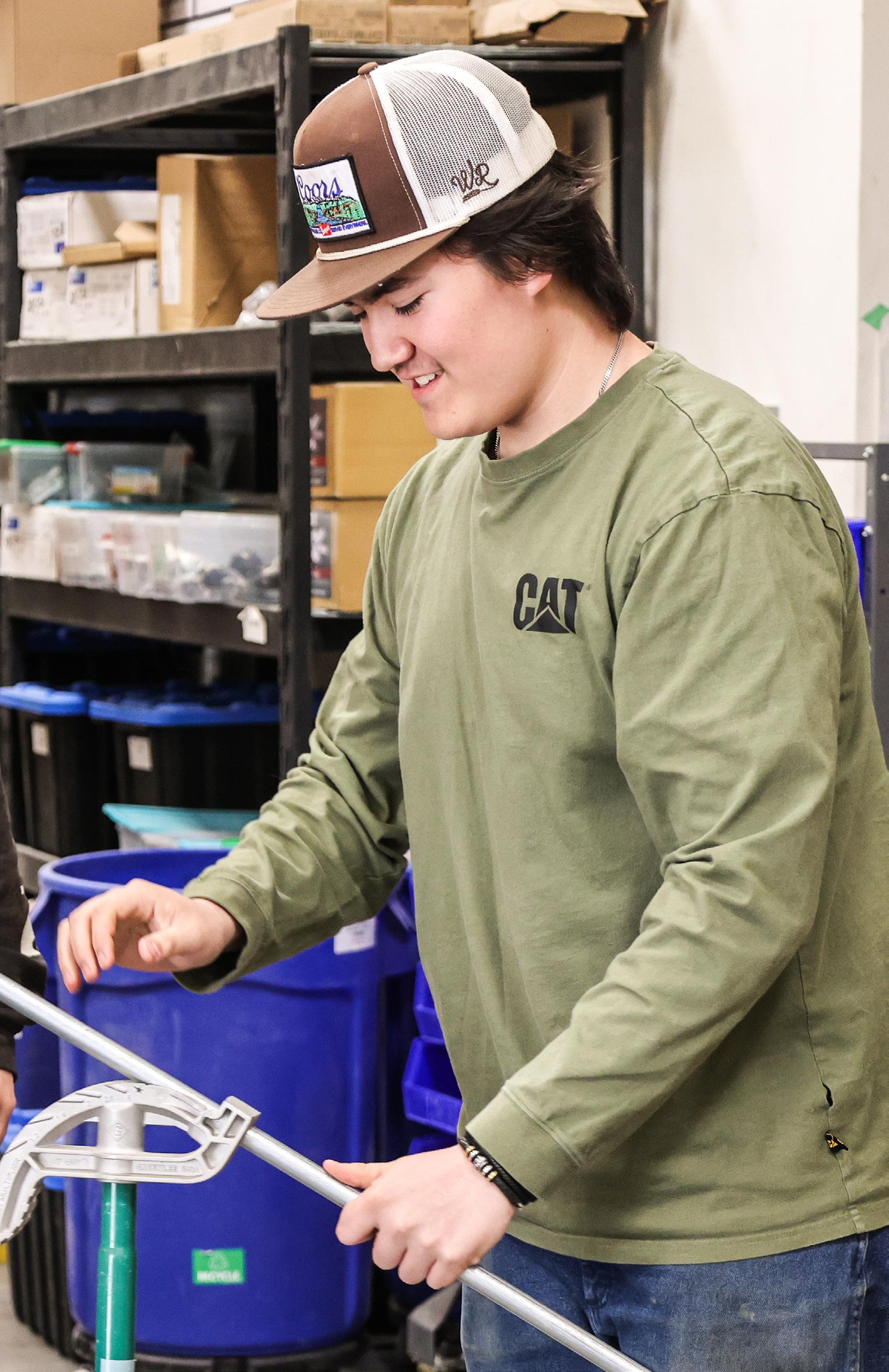
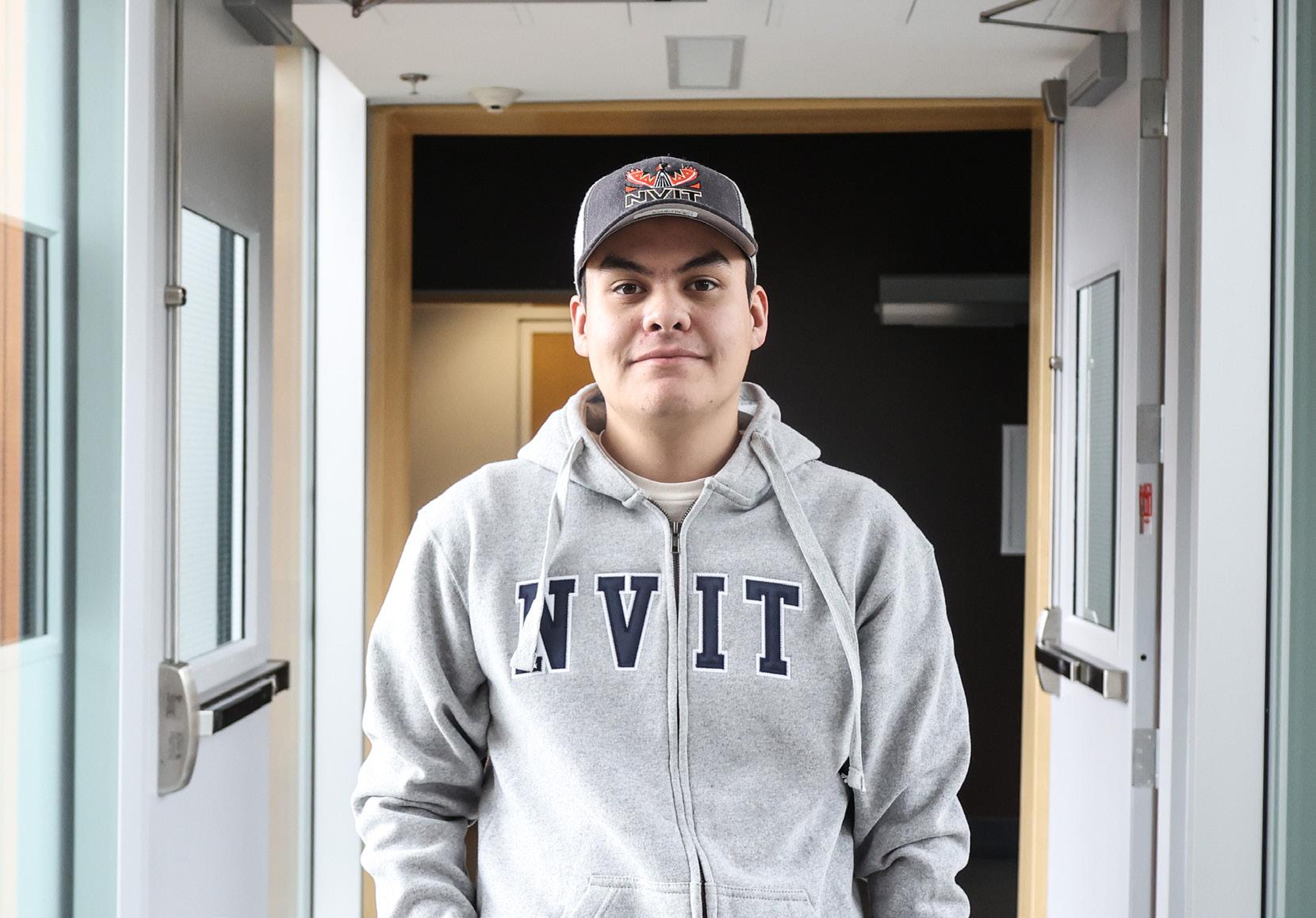
Business
ABORIGINAL COMMUNITY ECONOMIC DEVELOPMENT
Certificate / Diploma
The Aboriginal Community Economic Development program (ACED) provides a first year certificate with an option of taking a second year diploma. As NVIT’s ACED program fulfills the 16 competencies of the Council for the Advancement of Native Development Officers’ (CANDO) technician status, upon completion of the 2nd year, students have the option to apply for technician status with CANDO. In addition to the Diploma and CANDO Certification, the Diploma ladders into a Bachelor of General Studies Degree from Simon Fraser University. Students have the opportunity to take this Degree in affiliation with SFU on the NVIT Campus.
Requirements
• Grade 12 graduation or equivalent with:
• C+ minimum grade in Math 11 Foundations or MATH 057 or equivalent;
• C+ minimum grade in English 12/English 12 First Peoples or ENGL 060.
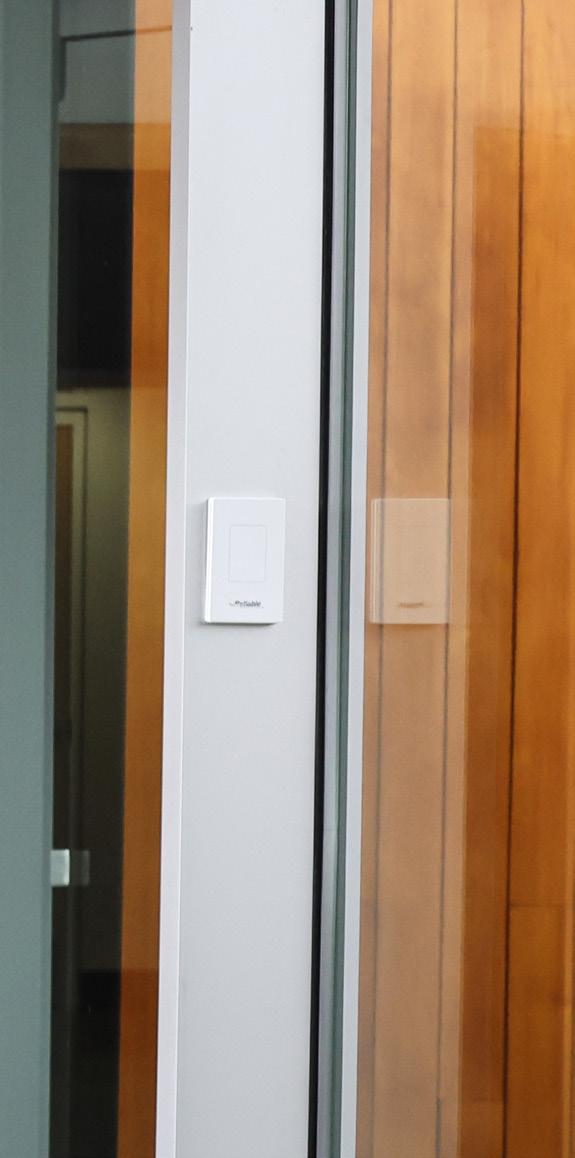
ABORIGINAL GOVERNANCE AND LEADERSHIP Certificate / Diploma / Advanced Diploma
The purpose of the Aboriginal Governance and Leadership Program (AGLP) are to strengthen Aboriginal peoples’ skills and abilities to govern, grounded in the learners’ traditional knowledge, leadership values, and community development interests. The AGLP will support the growth and establishment of ethical, effective leaders and public servants who contribute to improving governing systems and sustainable development outcomes in Aboriginal communities and institutions, for the benefit of current and future generations.
The program is offered as a Certificate, Diploma, and Advanced Diploma. Using a blended delivery model, each level of the AGLP will be offered on a part-time basis. The intent of this blended model is to maximize the flexibility of program delivery for working professionals and public servants. This program can also be delivered in the traditional Academic method of 13 weeks per semester if desired.
Requirement
• Grade 12 graduation or equivalent.
• Age 18 by start of program.
INDIGENOUS BUSINESS Diploma
The Indigenous Business (IBUS) program is designed to empower learners with essential skills and knowledge to navigate the complex landscape of business within Indigenous contexts, with a particular emphasis on land governance and sustainable economic practices. Guided by Storywork, this two-year diploma program consists of 20 carefully curated courses deeply rooted in Community-led Indigenous Knowledge Systems. By integrating Indigenous teachings with contemporary business principles, this program equips learners with a comprehensive understanding of the unique challenges and opportunities faced by Indigenous Communities in the modern economy.
Requirements
• Grade 12 graduation or equivalent with:
• MATH 057 or Foundations of Math 11 or equivalent assessment; and
• ENGL 060 or English 12 or equivalent assessment.
OFFICE ADMINISTRATION
Certificate
The Office Administration Certificate Program develops and provides the necessary administrative skills to foster administrative support at the entry-level. It is designed for individuals who want to upgrade their office skills for certification and those entering the office workplace for the first time. This program will equip learners with the confidence and practical skills needed to thrive in today’s administrative workplaces.
This accessible and supportive program provides foundational skills in office procedures, computer applications, and workplace communication. The program creates a welcoming environment that values community, flexibility, and learner success.
The Office Administration Program is designed to provide learners with hands-on, practical learning experiences that reflect real-world office environments. Activities include interactive workshops, simulated office tasks, and projects using industry-standard software. The program combines instructor-led sessions with independent and group work, which includes a 70-hour practicum for learners to apply administrative skills in a culturally safe and professionally supportive environment.
Requirements
• Grade 10 or equivalent with a ‘C’ grade minimum.
In exceptional circumstances, the Department Chair may admit applicants who are lacking certain program admission requirements if the applicant can demonstrate they have a good chance of succeeding in the program.
NVIT is committed to ensuring education is accessible to all people. Learners who do not meet program requirements should contact the Department Chair or an NVIT Academic Planner regarding upgrading opportunities.
EXECUTIVE
The Executive Assistant Diploma Program is designed to provide training in office management. After successfully completing the Office Administration Certificate Program learners will continue to develop administrative and professional skills, work with computer technology, network with professionals in the field, and prepare for a wide range of careers within the business world.
The delivery model for The Executive Assistant Diploma Program simulates the professional office environment. Learners are encouraged to support each other in completing experiential learning activities such as chairing meetings, mock interviews, problem-solving, critical thinking to becoming more self-directed in their learning.
Requirements
• Grade 12 graduation or Mature student status (19 years of age) with:
• Completion of Office Administration Certificate Program;
• English Studies 12 or English 12 First Peoples or ENGL 060 or equivalent;
• Math 057 and any Advanced level ABE Mathematics, or any Mathematics 11 or assessed equivalent;
• Keyboarding speed of 30 words per minute.
MEDICAL OFFICE ASSISTANT Diploma
The Medical Office Assistant program (MEDA) is designed to provide students with the skills training and knowledge required to work within a medical office. Additionally, students will learn how to create and maintain patient records as well as perform coding and billing. Students are taught how to assist physicians with examinations, prepare patients for clinical procedures and other administrative duties in various health care settings.
In consideration of Turpel-Lafond’s report “In Plain Sight: Addressing Indigenous-specific Racism and Discrimination in B.C. Health Care”, this program endeavours to familiarize frontline administrative medical office staff with the importance of cultural safety, cultural sensitivity, and trauma informed care to better prepare them for future employment serving diverse populations.
Requirements
• Grade 12 graduation or equivalent with:
• English Studies 12 or English First Peoples 12 or English 12 or ENGL 060;
• Keyboarding speed of 45 words per minute
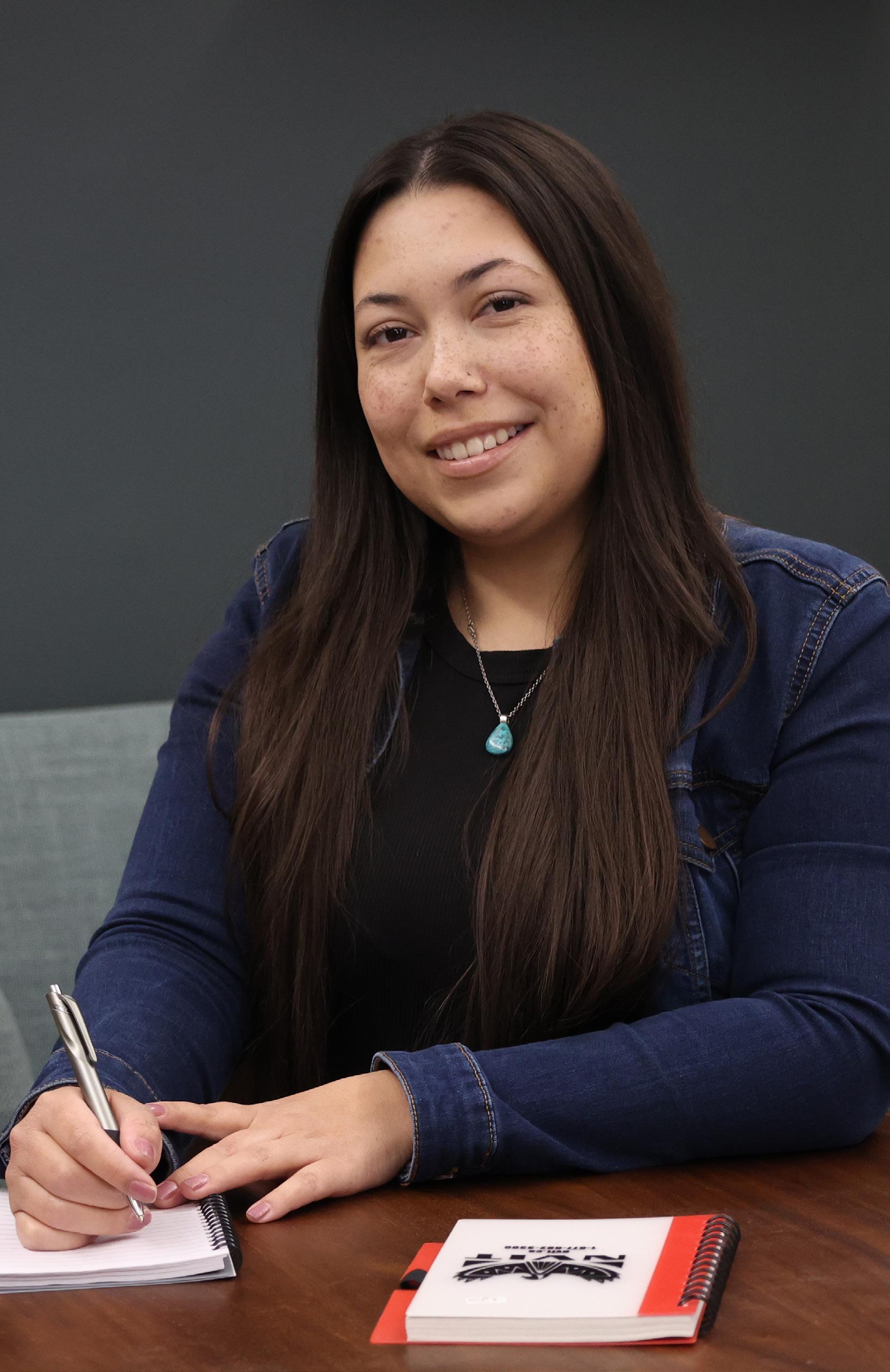
SHANEA JOHNSON
OFFICE ADMINISTRATION
Attending NVIT has been a transformative experience for Shanea Johnson—one that shaped her academic journey and propelled her toward her career goals. Reflecting on her time at NVIT, Shanea highlights the invaluable support and welcoming atmosphere that define the institution.
“Many of my family members and friends attended NVIT, and they all had positive experiences here,” she shares, emphasizing the strong sense of community that continues to draw Indigenous learners. Encouraged by these connections, Shanea took the leap to pursue further education—an experience she describes as pivotal.
“Continuing my education has opened many doors for me. I’ve developed new skills, gained opportunities, and made new friendships,” she notes. Embracing the challenges of academic life, she experienced both personal and professional growth throughout her program.
Now an NVIT alumni, Shanea has come full circle. She is currently employed with NVIT’s Community Education Department—a meaningful opportunity that allows her to apply her skills and give back to the community that supported her. Her story is a testament to the power of education and the strength of the NVIT community.
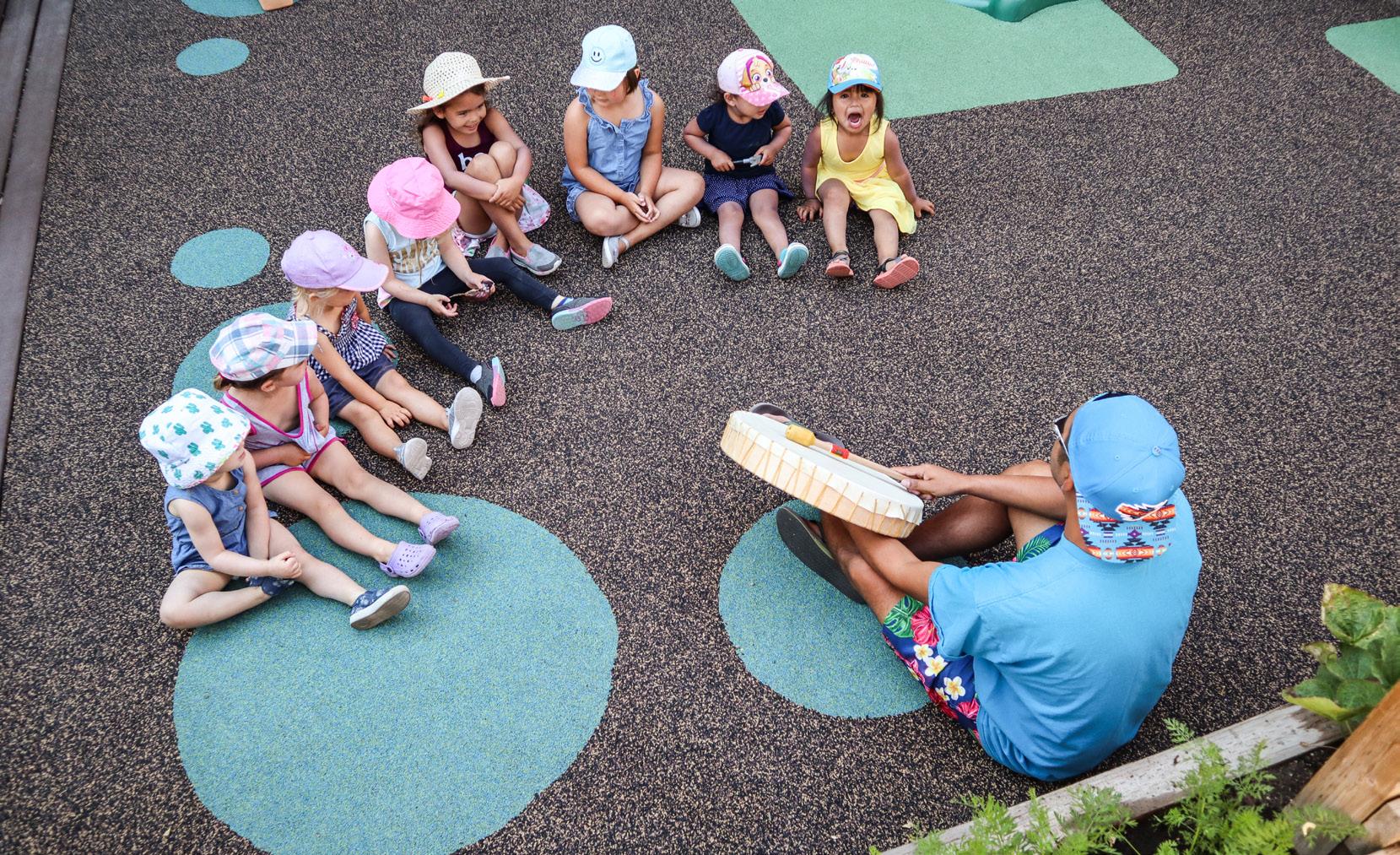
Education
FIRST NATIONS SPEECH AND LANGUAGE ASSISTANT
Certificate
The First Nations Speech and Language Assistant Program (FNSL) is a certificate program. The FNSL program in a 10-course, 33 credit program offered through community-based delivery. The program will prepare students to work at the paraprofessional level in the speech and language field under the direction of a speech language pathologist. Due to the unique challenges of many remote and semi-remote First Nations communities, participants will also receive training in the use of technology as a way of delivering speech language services.
This program is specifically designed for people working in First Nations communities: schools, head start programs, preschools, etc.
Requirements
• Mature student status (19 years of age) with:
• ENGL 060 or English 12 or equivalent assessment;
INDIGENOUS ADULT INSTRUCTOR Diploma
The Indigenous Adult Instructor Diploma (IAID) program provides learners with the transferable skills and knowledge to facilitate teaching and learning in an Indigenous adult learning environment. Course activities and tasks are designed to help participants envision and practice how to transcend Indigenous worldviews, epistemologies, typologies, and learning approaches into adult education. Participants will develop their teaching and learning philosophy and practice, and strengthen their work with Indigenous leaners, families, communities and nations.
Requirement
• Grade 12 graduation or Mature student status (19 years of age) with;
• English 12, or English Studies 12, or English First Peoples 12, or ENGL 060, or equivalent, or permission of the Department Chair/Dean.
• Evidence of subject matter expertise as demonstrated by a diploma, bachelor’s degree, trades certification, substantial workplace experience, or Department Chair/Dean’s approval.
PRIOR LEARNING AND ASSESSMENT & RECOGNITION (PLAR)
NVIT recognizes that learners may acquire skills and knowledge from life, learning or work experiences, and can request to PLAR for some IAID courses. Participants can receive exemptions for a maximum of 12 credits. The Capstone Project cannot be completed by means of PLAR. Inquiries about PLAR should be directed to the Department Chair or Dean.
INDIGENOUS EARLY CHILDHOOD EDUCATION Certificate / Diploma
The Indigenous Early Childhood Education program (IECE) is designed to meet provincial licensing, academic standards, community and Indigenous standards to ensure NVIT graduates are successful and effective early childhood development workers in BC communities. The Indigenous Early Childhood Education programs are unique in that they are only delivered in partnership with communities. This ensures that communities have local elders and knowledge keepers involved with the delivery of programs.
Certificate
The certificate program is an exciting and progressive program with a focus on Indigenous content in the curriculum. Admission is open to all learners, particularly those wishing to explore and experience Early Childhood Education from an Indigenous perspective. Courses include Early Years Development, Music and Art, Children’s Literature and practicum experience. This program is designed to run for ten and a half months from the beginning of September to the middle of July.
Diploma
The diploma program meets provincial certification and licensing standards for infant/toddler and special needs children. This program is designed to run eight months from the beginning of September to the end of April. Successful completion of this program allows graduates to work as supervisors in a variety of daycare settings, to work with children who have special needs and to work with infants and toddlers under three years of age.
Requirements
Certificate Applicants
• Grade 12 graduation or Mature student status (19 years of age) with:
• English 12 or English Studies 12 or English First Peoples 12 or ENGL 060 or equivalent.
Diploma Applicants
• IECE/ECE Certificate from NVIT or another post-secondary institution
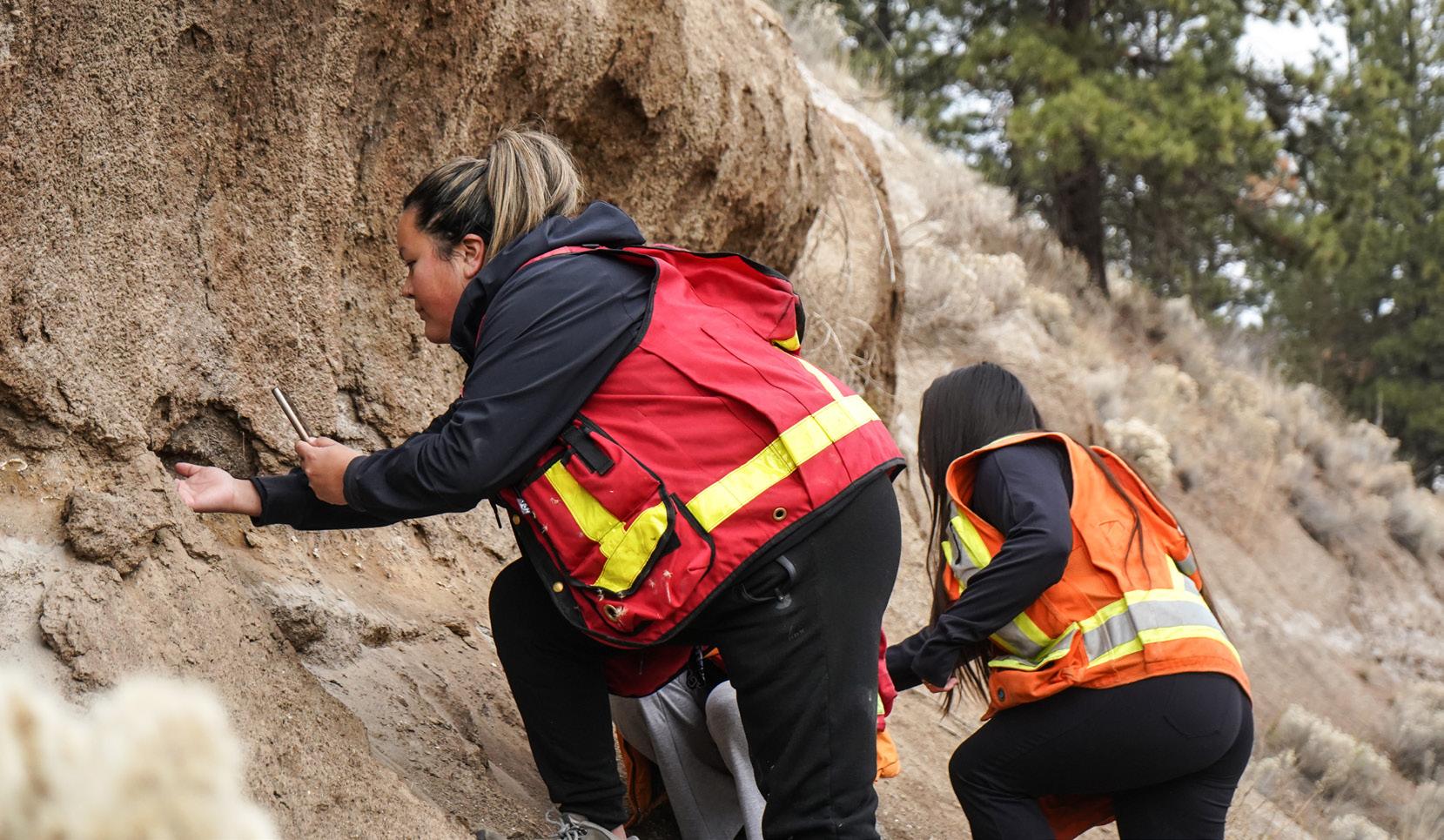
Environmental Studies
ENVIRONMENTAL RESOURCES TECHNOLOGY
Certificate / Diploma
The Environmental Resources Technology program (ENRT) provides learners with skills and knowledge in the natural resources sector including forestry, fishery enhancement, environmental assessment, mining and grassland ecology. This generalist approach gives learners various career paths within the natural resources sector.
One of the program objectives is to deliver material that is relevant to our Indigenous communities throughout BC and other provinces in Canada. Graduates of this program are prepared to actively collect field data, summarize and analyze report results and make environmental decisions within the community. By creating links between traditional ecological knowledge and Western science while using nature’s classroom, NVIT learners develop the skills necessary to attain a successful career in a natural resources discipline.
Certificate
The first year of the program provides learners with the skill set necessary for data collection work in the field. Learners will gain field skills such as tree and plant identification, navigation skills, mapping skills for use in the field and with geographic information systems, soils identification, resource measurements (distance, heights, slope, diameters and elevation) and fire ecology. Since many learners will work within traditional territories, courses in Ethnoscience and Indigenous case law are key to provide an understanding of the uniqueness and impact that Indigenous people have on the land base. Graduates are qualified to carry out field data collection.
Diploma
Year two of the ENRT program focuses on the various environmental disciplines. Learners take what they learned from the first year and apply that knowledge to solve environmental problems. Forest Surveys and Environmental Assessment Surveys integrate year one measurement skills into applications that are important for assessing the land base. Courses in Wildlife, Fisheries, Grasslands, Environmental Planning, Watershed Hydrology, Silviculture and Timber Development give learners the theoretical knowledge needed to design and carry out field studies. This diploma qualifies learners to work within a variety of environmental disciplines including carrying out forest surveys, monitoring environmental activities, environmental assessment data collection and working on community environmental projects.
Requirements
• Grade 12 graduation or equivalent with:
• C minimum grade in Foundations of Math 11 or MATH 057;
• English Studies 12 or English 12 First Peoples, or ENGL 060; and
• Biology 11 or Life Sciences 11 or Biology 050.
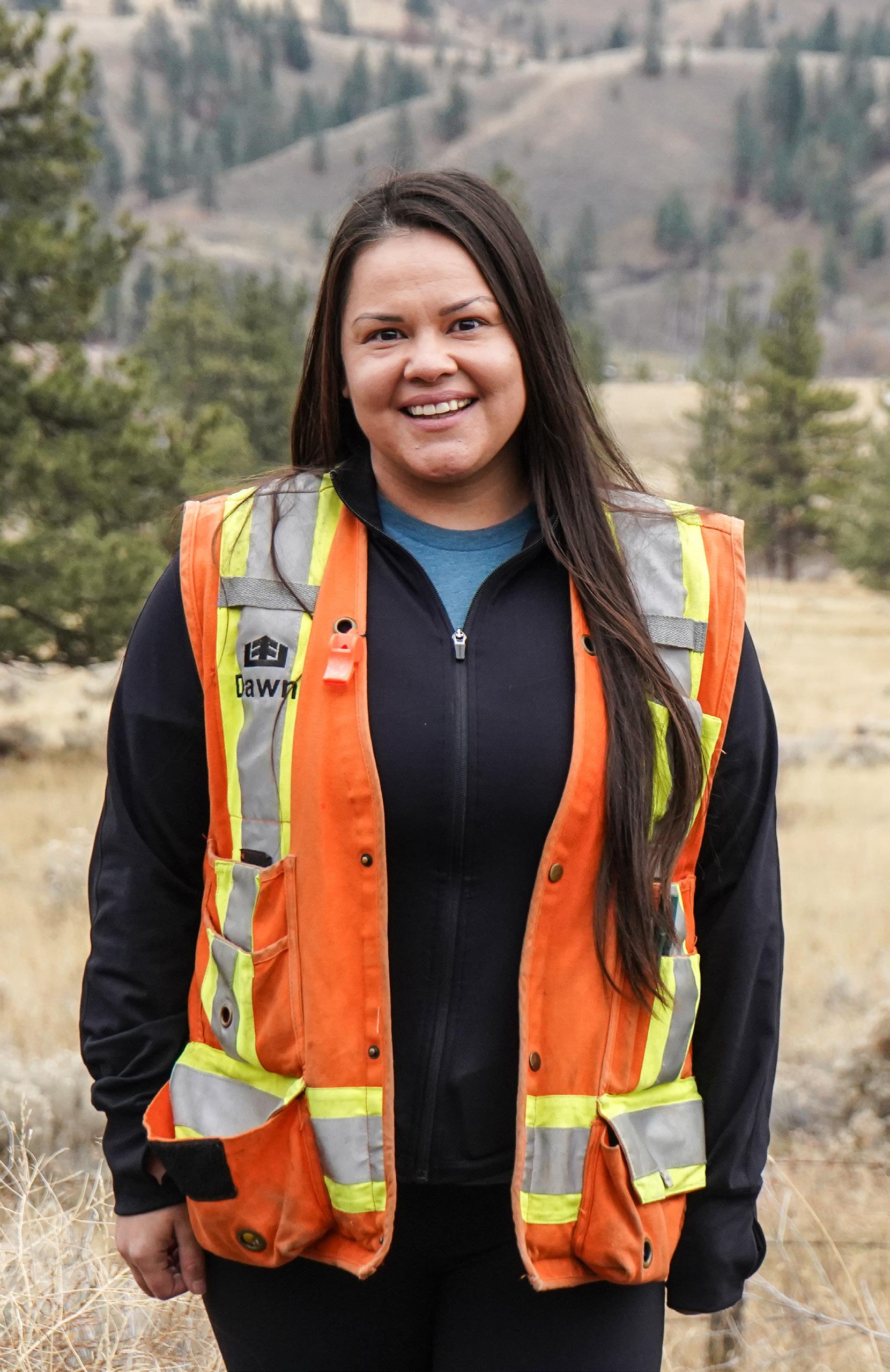
DAWN HUTCHINSON
ENVIRONMENTAL RESOURCES TECHNOLOGY
Dawn Hutchinson, a student in NVIT’s Environmental Resource Technology (ENRT) program, began her journey into the field through an Indigenous forestry internship in Williams Lake. While job-shadowing professionals at West Fraser Mills, she saw the range of career paths available in forestry and set her sights on becoming a registered professional forester. “NVIT was the obvious choice,” she says, drawn to the program’s balance of technical training and Indigenous knowledge.
“What I really appreciate is how the curriculum incorporates Indigenous perspectives,” Dawn shares. “It feels like a place where I can grow both professionally and personally while staying connected to my roots.” That cultural connection, along with hands-on learning, has helped her feel at home while gaining the skills she needs to pursue her goals.
Outside the classroom, Dawn is active in student leadership. Recently elected as Secretary Treasurer of the Student Society and applying for the Student Ambassador Program, she’s eager to develop her public speaking and advocacy skills. “Having a voice for the students allows me to make an impact,” she says—just one of the many ways she’s turning her NVIT experience into a strong foundation for her future.
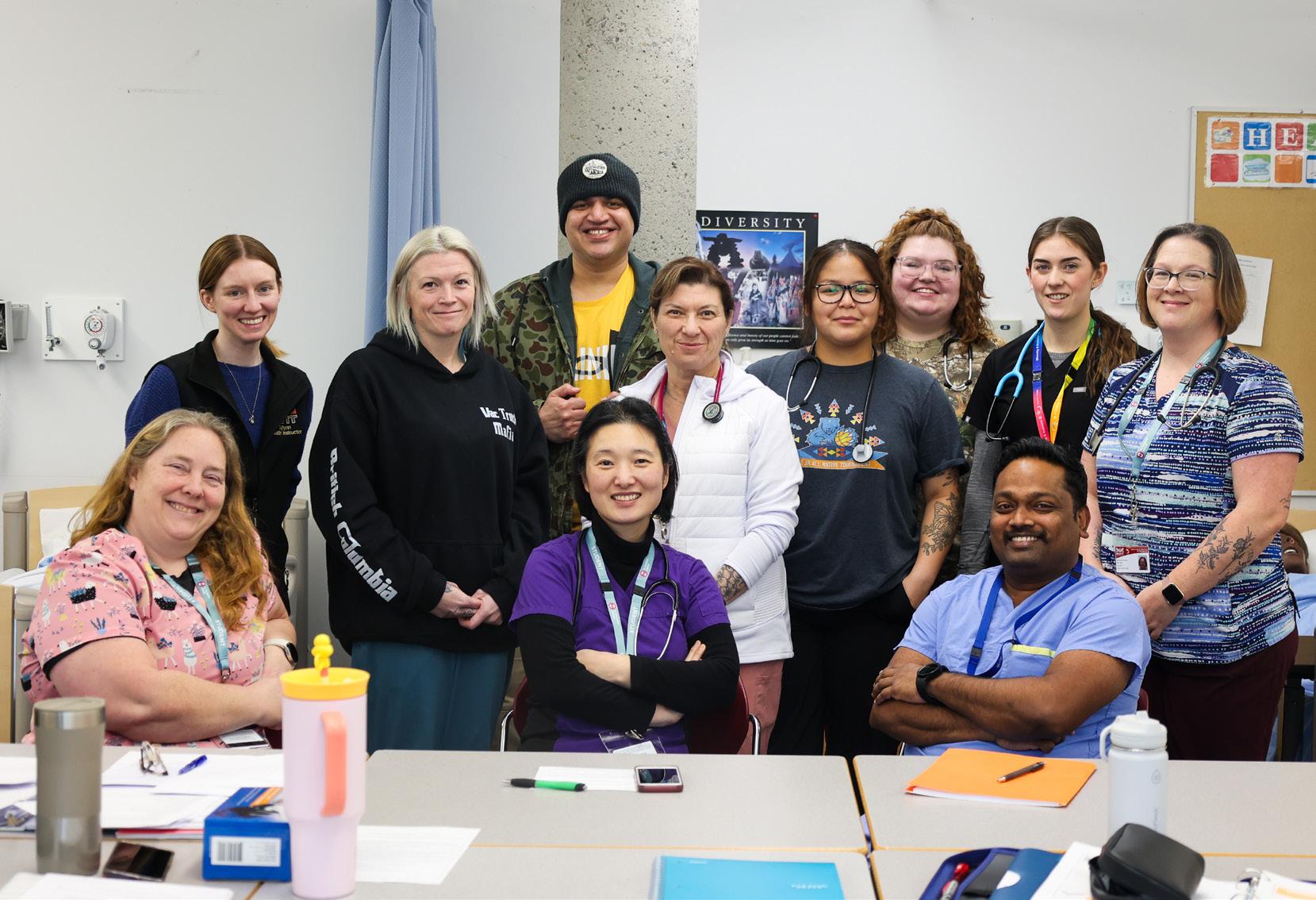
Health
HEALTH CARE ASSISTANT Certificate
Throughout the 30-week Health Care Assistant program (HTCA), learners develop the skills, knowledge and practical experience required to become frontline caregivers and respected members of a health care team. Under the direction and supervision of a health care professional, learners provide person-centred care aimed at promoting and maintaining the physical, emotional, cognitive and social well-being of clients.
Learners are required to complete two clinical practicums and one community practicum. Learners gain expertise and confidence while preparing to undertake the role of the Health Care Assistant (HCA) within a residential care facility with an understanding of the philosophy of community care settings and its emphasis on client choice and independence. Upon completion of the program, graduates are prepared to work in a variety of practice settings including home support, assisted

living, residential/complex care, special care units, other home and community care settings and acute care.
Health Care Access Program
The Health Career Access Program (HCAP) provides a path for applicants with little to no health care experience to get hired and receive paid employer sponsored health care assistant training as part of their employment. It is another pathway for future HCAs to receive training and education as an HCA while working as a Health Care Support Worker (HCSW). This initiative supports the increased need for additional staff in long-term care, assisted living and home and community care settings.
NVIT works with the Ministry of Health to provide this opportunity. Visit www.choose2care.ca/hcap to know more about this program.
Requirements
• Grade 12 graduation or Mature student status (19 years of age) with:
• English 10 or equivalent;
• Math 10 or equivalent;
• Standard First Aid Certification with CPR Level C;
• BC FOODSAFE Level 1 Certificate; and
• English Language Declaration
ACCESS TO PRACTICAL NURSING Diploma
The 56-week Access to Practical Nursing Diploma program (APNS) is designed for Health Care Assistants who wish to enhance their skills and education to become a Licensed Practical Nurse. The curriculum provides a blended learning experience that is integrated, professional, collaborative and culturally sensitive with an aim to prepare graduates to care for individuals at multiple life stages and in a variety of practice settings. Graduates of the program possess the skills and competencies identified by the British Columbia College of Nurses and Midwives (BCCNM) to be prepared to successfully complete the REX-PN (Canadian Practical Nurse Exam).
Courses include pharmacology, health promotion, professional communications, integrated nursing practice and several practicums in various settings, including geriatric, community and acute care.
Requirements
• Successful completion of HCA, RCA, or HS/RCA Certificate;
• Minimum 600 hours of HCA work experience, within the last two years, in a care facility where care is provided to a group of Gerentology clients. Work experience must be verified by an official employer letter;
• Grade 12 Diploma or equivalent;
• C+ minimum grade in English 12 or B+ grade minimum in Technical Communications 12*;
• C+ minimum grade in Human Anatomy & Physiology (BIOL 120) for Practical Nurses; and
• C minimum grade in Math 11 or Math 11 Foundations*;
* Alternatively, English and Math Assessment are available if the English and Math requirements are not met, and can be arranged through the Student Services department.
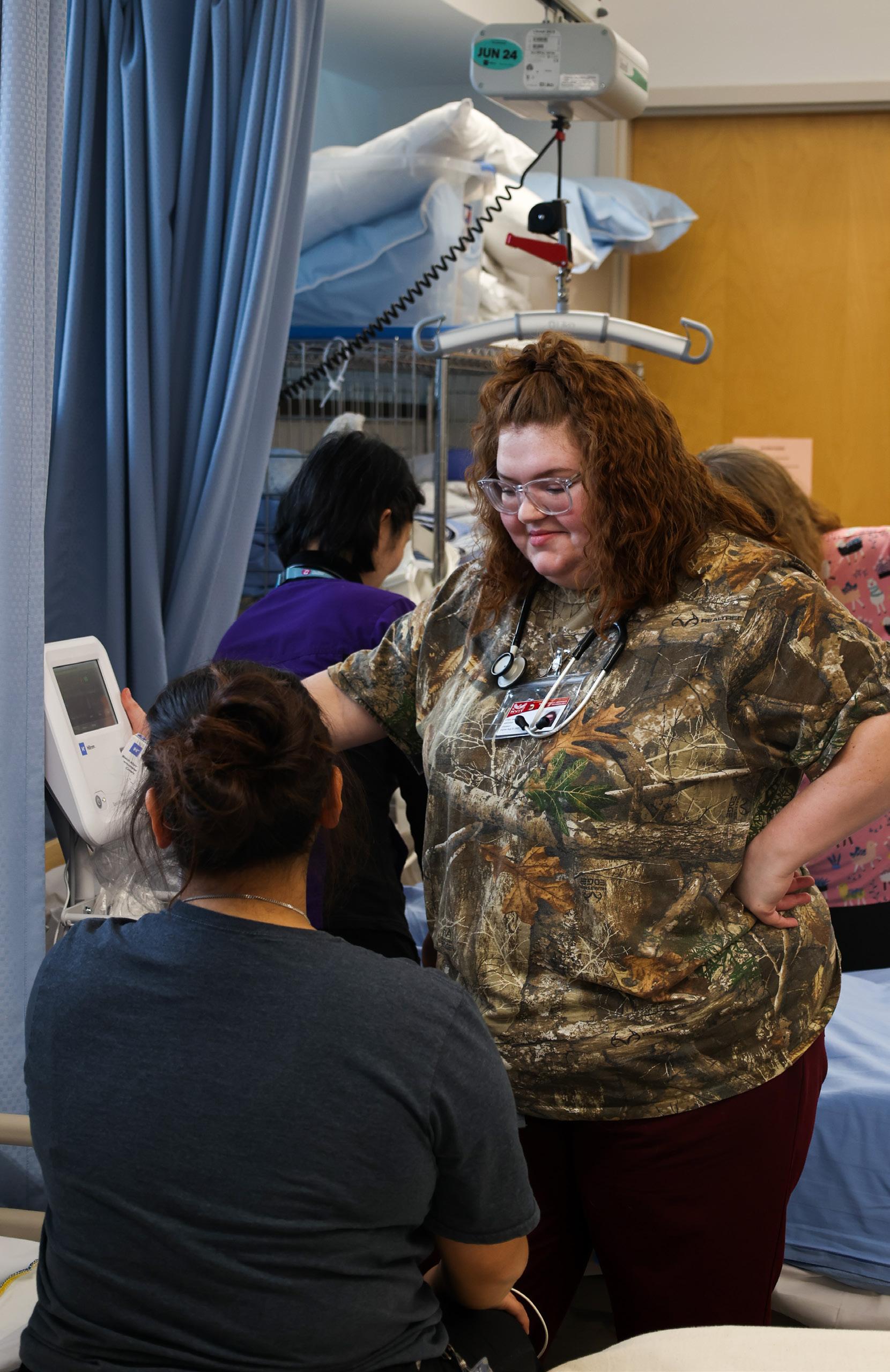
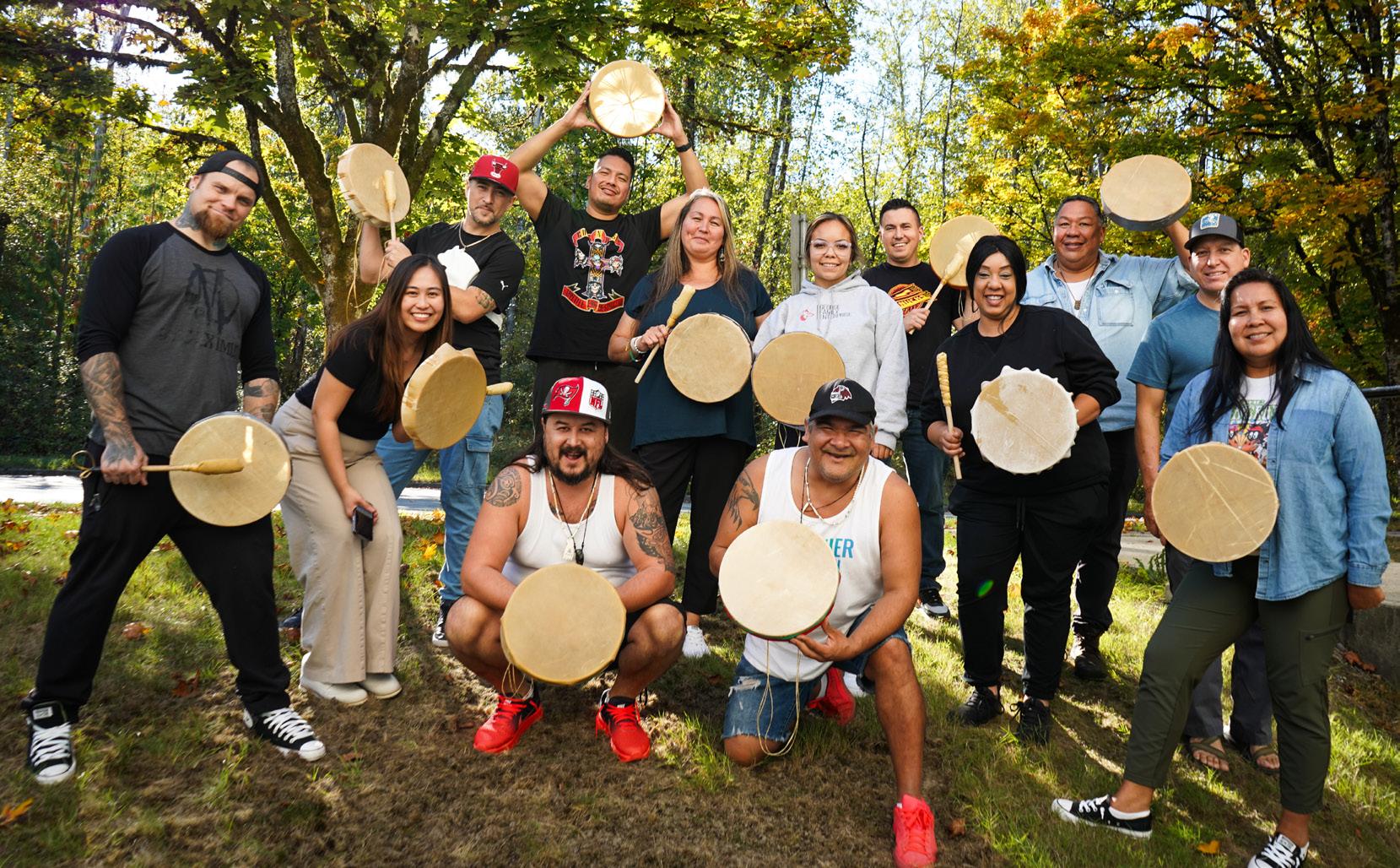
Human Services
INDIGENOUS HOLISTIC WELLNESS AND ADDICTIONS
Certificate / Diploma / Advanced Diploma
The Indigenous Holistic Wellness and Addictions program (IHWA) is open to individuals interested in a career in Indigenous Health and Wellness and Addictions. In addition, individuals who are currently in Addiction fields such as Alcohol and Drug Counsellors or Addiction Workers will find a benefit in obtaining a credential and/or specialized professional development training to meet job requirements. The program is a multientry, multi-exit credentialed learning experience.
Learners can earn a Certificate, Diploma, and Advanced Diploma that transfers as a 96 credit block into a Bachelor of Integrated Studies (BIS) partnered with the University of the Fraser Valley. Graduates of this program may find employment in the growing field of Indigenous Health and Wellness and Addiction Counseling. Their work will be mainly with adults and include working with children, youth, and families. Employment may be in agencies such as health centres and rehabilitation facilities, treatment centres, or First Nations agencies.

Requirements
There are three ways to enter the IHWA program.
1. for Mature Status (means you must be out of school for a minimum of one year)
a. Letter of intent;
b. Personal suitability interview;
c. Letters of support from communities and/or employers are encouraged;
d. Students must be addictions free for a minimum of 1 year.
Or:
2. for Grade 12 graduates with:
a. C+ minimum in English 12/English 12 First Peoples or ENGL 060; or equivalent;
b. Apprenticeship and Workplace Math 11 or MATH 055 or equivalent;
c. Personal suitability interview;
d. Students must be addictions free for a minimum of 1 year.
Or:
3. for Permissions from the Dean or Program Coordinator
a. Personal suitability interview;
b. Students must be addictions free for a minimum of 1 year.
All students will be addictions free for a minimum of one year as well as participate in a suitability interview.
INDIGENOUS HUMAN SERVICES
Certificate / Diploma
The Indigenous Human Services program (IHMS) prepares learners for a career with non-profit agencies, Indigenous communities and government. Graduates will be able to provide support and assistance to individuals, families and communities coping with economic disadvantage, mental health challenges, developmental, gender and diversity issues, as well as challenges such as addictions, family change and involvement with the justice system. The Indigenous Human Services program admits 25
learners who begin study in September. Learners who wish to continue their education have the opportunity to ladder into the Bachelor of Social Work program at NVIT, following the completion of the IHMS Diploma.
Certificate
The Indigenous Human Services Certificate is a two-term program delivered during the Fall and Spring semesters. Students complete a total of ten courses, with five courses in the Fall term and five in the Spring. It prepares students to provide support and assist individuals with a broad range of differing abilities. Become qualified for a career as an educational assistant or community support worker in school districts, group homes, employment agencies and community organizations, or transfer to NVIT’s Human Services diploma program.
Diploma
The Indigenous Human Services Diploma consists of five courses per term being delivered through classroom instruction and a 190-hour field practicum. Students who wish to continue to the BSW program can opt out of the practicums and maximize their Arts credits to meet the requirements of the BSW program. Once graduates complete the Diploma portion of the program they will be able to extend the supports and services of the certificate to include individuals and families.
Requirements
• Grade 12 graduation or Mature student status (19 years of age) with:
• C+ minimum grade in English 12.
• Two letter of references.
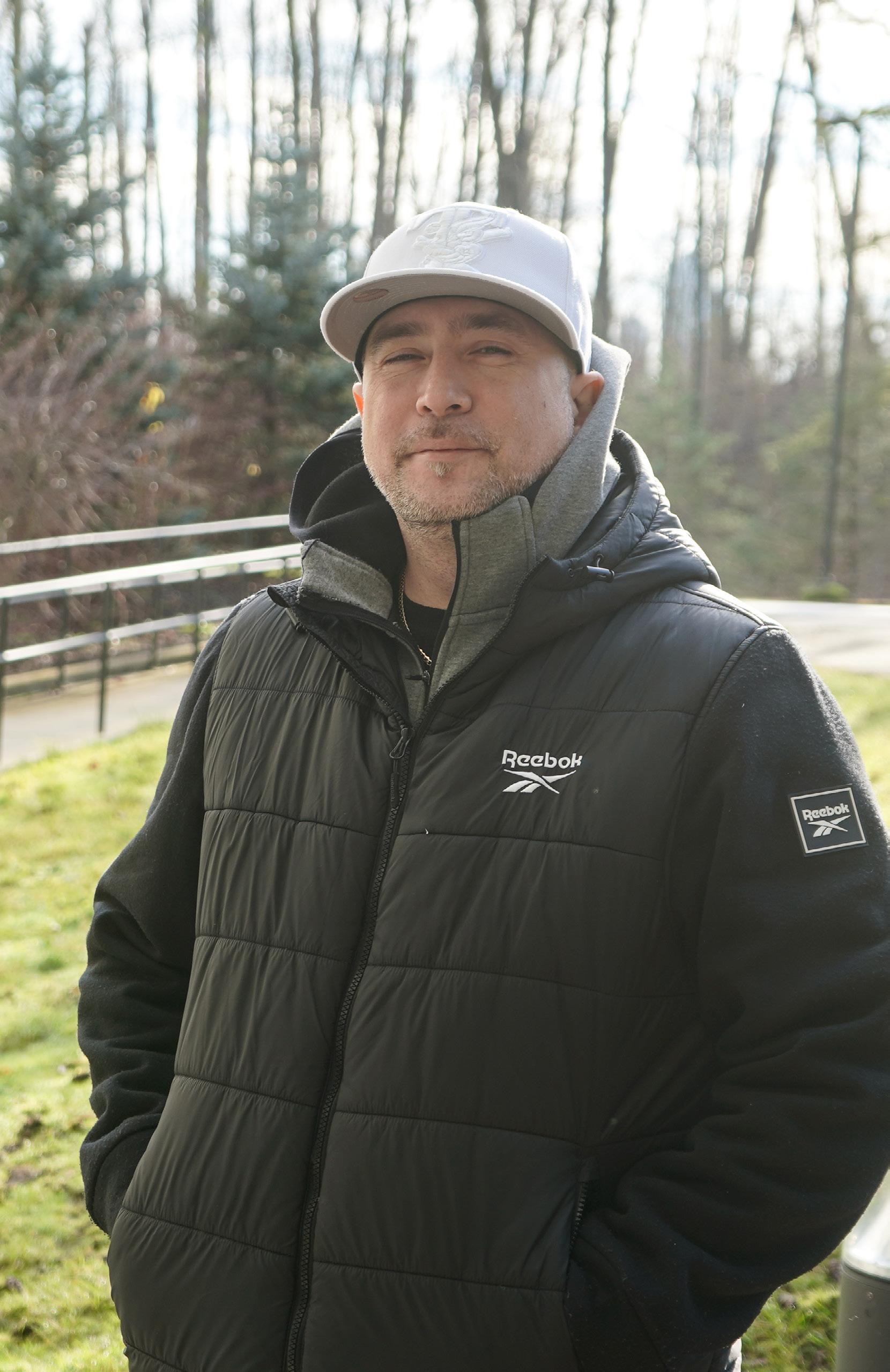
WILLIAM SMERECHANSKI
INDIGENOUS HOLISTIC WELLNESS AND ADDICTIONS
When William Smerechanski began searching for the right place to study, NVIT’s Indigenous Holistic Wellness and Addictions (IHWA) program stood out. As a proud Métis, the Indigenous-centered approach and proximity to home made NVIT the perfect fit.
During the program, William gained valuable skills and experienced personal growth. “One memorable achievement was learning about myself and building lasting relationships with my cohorts,” he shared. Now in his second year, he’s working toward his bachelor’s degree and is a recipient of the Beedie Luminaries Spark Program scholarship for single parents.
William began his first job in the field as a Mental Health and Addictions Counselor with Native Courtworker. “I can apply what I learn on the job to my studies, and what I learn in class helps me support others,” he said.
Looking forward, William is eager to continue making a positive impact in his community, using the knowledge and skills he has developed at NVIT to support those on their healing journeys.

Trades
CARPENTER
Level 1 / Level 2
These 7-week (210 hours) programs that are designed to support apprentices registered with SkilledTradesBC by providing the necessary theoretical and practical knowledge to continue their apprenticeship pathway in preparation for writing their Interprovincial Red Seal Exam. The program builds on the apprentice’s knowledge and skills in the construction industry, including tools and equipment, survey instruments and equipment, wood frame construction, concrete formwork, and building science. The focus is on enhancing the apprentice’s practical skills for the construction workplace.
Upon successful completion of either the Level 1 or Level 2 programs, learners receive an NVIT certificate. Additionally, individuals who complete either program, with a minimum of 70% in the technical training, will receive the following credits toward completion of the SkilledTradesBC Carpenter apprenticeship program:
Technical Training: Level 1 or Level 2
Work-Based Training: Accumulative hours
Requirements
• Registered as a Carpenter Apprentice with SkilledTradesBC; and
• Education recommendation: Grade 10 (Grade 12 preferred); English 10 or English-language proficiency; Math 10; Science 10.
PROFESSIONAL COOK
Level 1 / Level 2
Professional Cook Level 1
The 28-week (840 hours) Culinary Arts Professional Cook Level 1 training (PC1) is delivered in NVIT’s new state-of-the-art culinary teaching kitchen on our Merritt campus. This program provides learners with the basic knowledge and skills required for a career in the food industry. Upon entry to the program, learners are registered as Professional Cook 1 apprentices, allowing them to gain technical training while accruing apprentice hours.
Requirements
• Grade 12 graduation or Mature student status (19 years of age) with:
• English 10, English 10 First Peoples or equivalent;
• One of: Apprenticeship and Workplace Math 10, Foundations of Math 10 or Pre-calculus 10, Principles of Math 10, or equivalent; and
• Valid FOODSAFE Level 1 certificate.
Professional Cook Level 2
The Culinary Arts Professional Cook Level 2 with Indigenous Content (PC2) is a 7-week (240 hours) program designed by SkilledTradesBC in continuation of PC1. The intention of this program is to introduce apprentices to Indigenous culture through traditional food gathering and preparation. Learners will perform all kitchen activities, including preparing and presenting vegetables, soups, sauces, meat, fish and poultry; cold kitchen items; desserts, baking, and pastry; basic menu planning/costing; and knowledge of safety, sanitation and food storage. Throughout the program, Indigenous knowledge, traditional practices, and Indigenous content is woven throughout, inclusive of occupational and trade knowledge related to the provincial and federal codes, Acts, and standards. Learners will also gain valuable knowledge that will empower apprentices to become leaders in the field with a deepened understanding of the Indigenous culture and traditions related to food.
Requirements
• SkilledTradesBC Professional Cook 1 Certificate of Qualification;
• One of: English 10, English 10 First Peoples, an equivalent Provincial Level Adult Basic Education English course, or equivalent assessment.
• One of: Apprenticeship and Workplace Math 10, Foundations of Math and Pre-Calculus 10, or Principles of Math 10, an equivalent Provincial Level Adult Basic Education, or equivalent assessment; and
• Valid FOODSAFE Level 1 certificate.
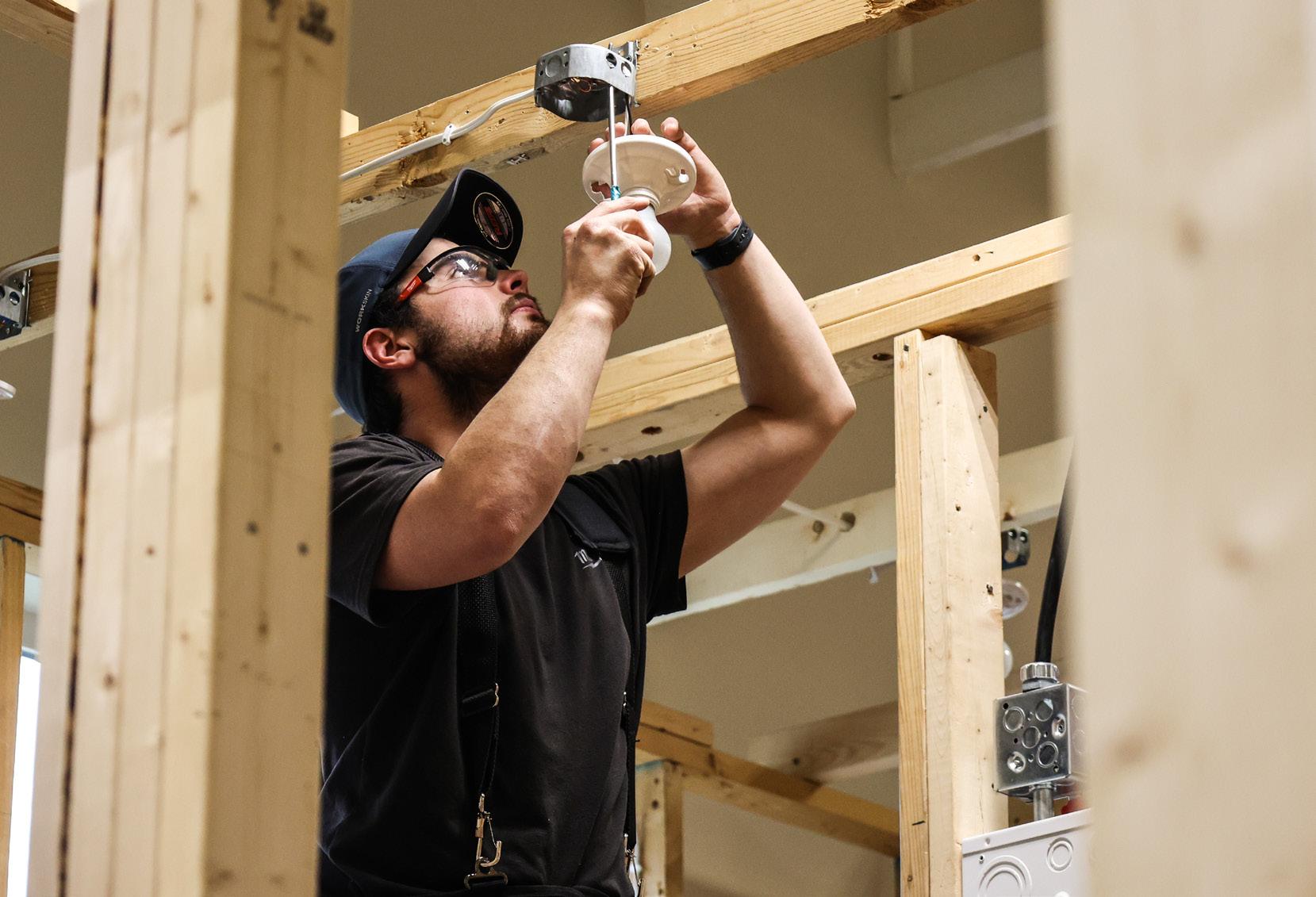
ELECTRICIAN FOUNDATION
Certificate
Learners seeking employment as an electrician can complete our 24-week (720 hours) Electrician Pre-Apprenticeship program (ELEC). This program exposes the learner to aspects of residential, commercial and industrial systems in this trade with a focus on developing practical skills.
The curriculum follows the BC Ministry of Advanced Education guidelines for the first-year in-class components of the Electrician Apprenticeship, which includes installation procedures in compliance with the Canadian Electrical Code for residential, commercial and industrial. Upon successful completion of this program, learners receive credit for Level 1 apprenticeship technical training and may also be granted practical credit by the SkilledTradesBC.
Requirements
• Grade 12 graduation or equivalent with:
• English Studies 12 or English Studies 12 First Peoples or ENGL 060; and
• One of: Apprenticeship and Workplace Mathematics 11, Foundations of Mathematics 11 or, Pre-Calculus 11 or equivalent.

Certificate
The 24-week Residential Construction Foundations program (RCST) provides learners with the necessary theoretical and practical knowledge to seek employment as an apprentice carpenter in the construction industry.
The program introduces the learner to all aspects of this trade including the use of hand tools, portable power tools and other equipment used by carpenters. Through the construction of a residential wood-frame project, learners are given the opportunity to work with a variety of materials used by carpenters including lumber, panel products, concrete, fasteners and hardware. The focus is on developing practical skills for the construction workplace.
Upon successful completion, learners who complete the program, with a minimum of 70% in the technical training, will receive the following credits toward completion of the SkilledTradesBC Carpenter apprenticeship program:
Technical Training: Level 1
Work-Based Training: 450 hours
Requirements
• Grade 12 graduation or equivalent with:
• One of: English 10, English 10 First Peoples, an equivalent Provincial Level Adult Basic Education English course, or equivalent assessment;
• One of: Apprenticeship and Workplace Mathematics 11, Foundations of Mathematics 11 or, Pre-Calculus 11, or an equivalent Advanced Level Adult Basic Education Mathematics course or an equivalent assessment.
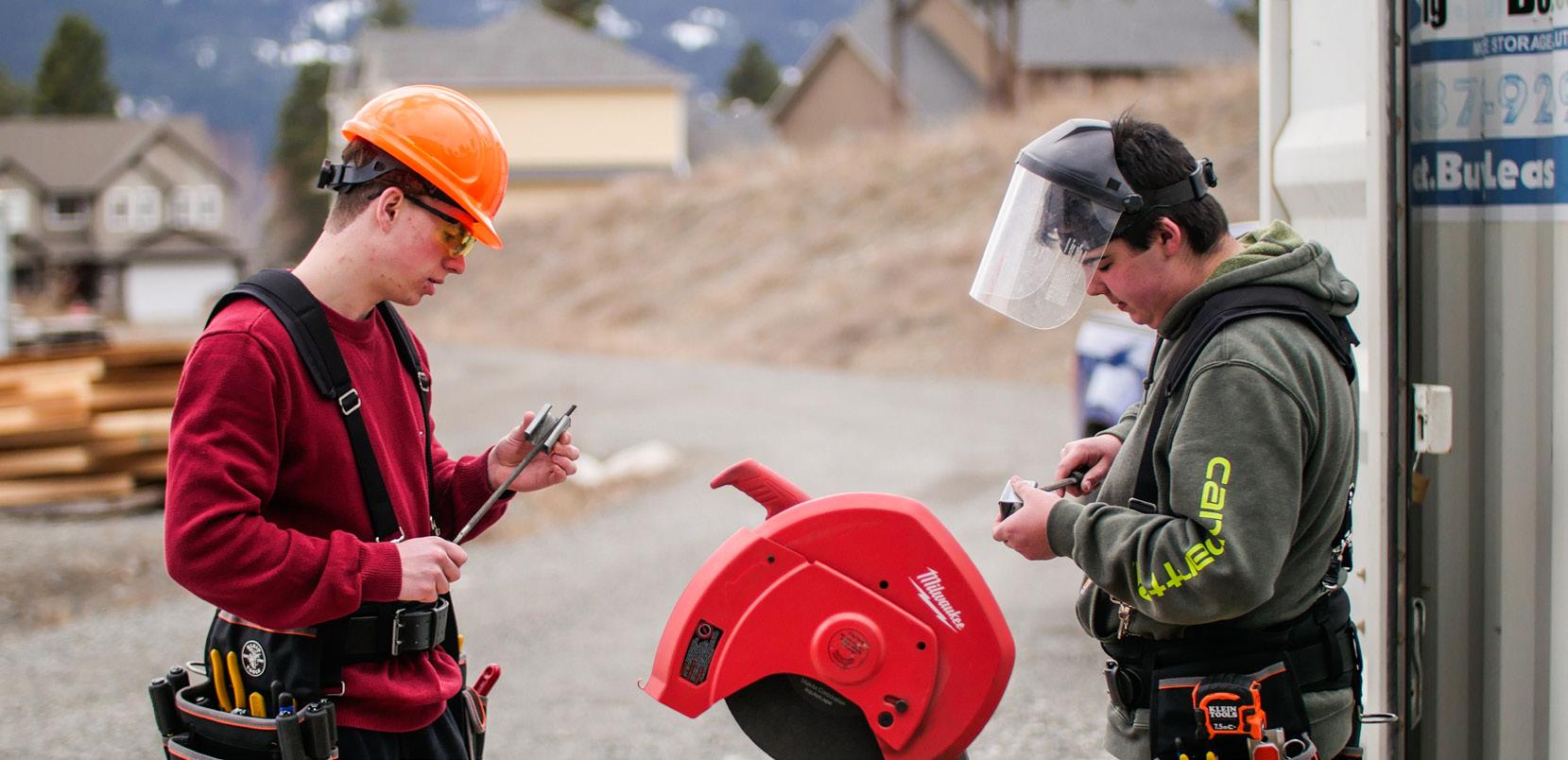
WELDER FOUNDATION
Certificate
This 28-week (840 hours) program takes a student with little or no previous experience in the welding trade and supplies them with the necessary skills to seek employment as an apprentice welder.
The Welder Foundation program has three levels of technical training. Learners engage in various classroom and shop activities to learn theoretical principles of welding and hands-on processes to master practical welding skills. Practical demonstration and apprentice preparation will be integrated with classroom sessions.
This program includes practical competencies as well as destructive and non-destructive testing on short projects in structural welding & fabrication.
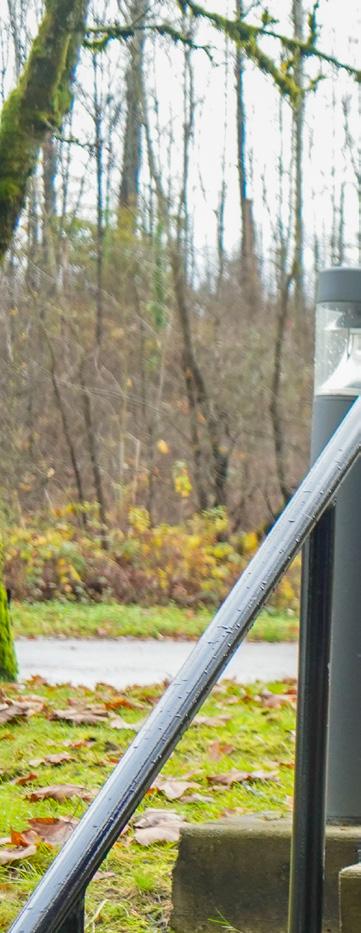
Graduates from this program will receive an NVIT Certificate of Completion, a Welder trade apprenticeship registration through SkilledTradesBC:
Technical Training: Level 1 and Level 2
Work-Based Training: 300 hours
Requirements
• Grade 12 graduation or equivalent with:
• English 10 or equivalent; and
• One of: Apprenticeship and Workplace Mathematics 11, Foundations of Math 11, Pre-calculus 11 or equivalent.
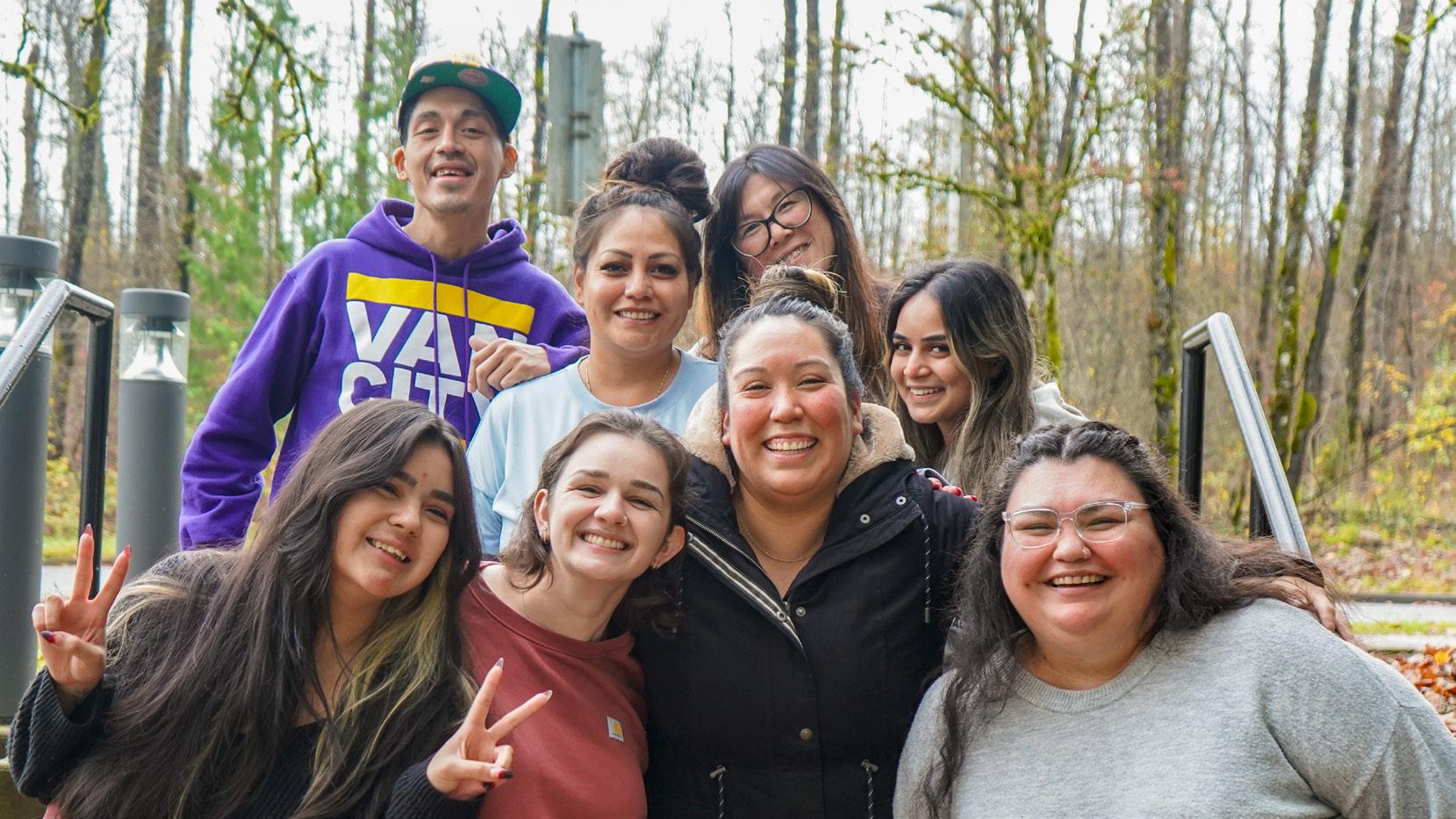
University Transfer
ASSOCIATE OF ARTS DEGREE IN GENERAL ARTS
During the two-year General Arts program (GENARTS), learners will study a combination of social science, humanities, science and academic elective courses. If a learner plans to pursue the Bachelor of Social Work degree (BSW), they can enroll in this program to accumulate the 60-credits of coursework required for entry into the BSW program.
This program provides learners with an understanding of social environments, perceptions or world issues and the confidence to generate informed decisions and ask questions.
The Associate of Arts Degree is part of NVIT’s University Transfer department, which provides a clear and supported pathway toward earning a bachelor’s degree at major universities across British Columbia. As a public post-secondary institution, NVIT ensures your credits are recognized, helping you build a strong academic foundation while staying connected to Indigenous values and community.
Requirements
• Grade 12 graduation or equivalent with:
• C+ grade minimum in English Studies 12 or English Studies 12 First Peoples or ENGL 060; and
• C+ minimum grade in Foundations of MATH 11 or MATH 057.
OPEN CERTIFICATE Certificate
NVIT’s Open Certificate is a program designed to eliminate barriers and respond to specific requirements requested by Indigenous communities from an Indigenous perspective. NVIT offers a culturally relevant and learner-centred approach to education that strengthens the identity of its learners to ensure they receive relevant programming and an educational experience that will improve the quality of life for Indigenous people.
This program provides a broad-based academic foundation that allows for transferability within NVIT and with external post-secondary institutions. Communities are empowered to choose courses that reflect their unique interests, priorities, and aspirations. Communities can establish a customized 30-credit course plan aligned with their specific educational objectives. With approval from the appropriate Dean, this customized course plan can include a specialization to the Open Certificate, reflecting their unique combination of courses.
Requirements
• Grade 12 graduation or Mature student status (19 years of age) with:
• English 12 or equivalent;
• Must meet the specific prerequisites for each course they wish to enrol in.
TRANSFORMATIVE EDUCATION PATHWAY Certificate
The Transformative Education Pathway Certificate is designed to prepare learners—particularly Indigenous learners—for entry into the Bachelor of Education program, offered through a collaborative partnership between UBC and NVIT. The certificate provides foundational and prerequisite coursework grounded in Indigenous perspectives, relational learning, and culturally responsive practice. It also aligns with provincial standards for teacher education, ensuring that learners are well-prepared to transition into a B.Ed. program.
Grounded in NVIT’s commitment to Indigenous education, the Transformative Education Pathway Certificate offers culturally relevant, university-transferable courses that honour Indigenous ways of knowing and learning. The program is designed to strengthen learner identity,
build leadership, and prepare students to make meaningful contributions to their communities. While meeting provincial standards for academic excellence and transferability, the program remains rooted in Indigenous perspectives, ensuring that learners are supported in both their academic and cultural journeys.
Requirements
• Grade 12 graduation or equivalent with:
• 60-credits Associate Degree or pre-determined equivalent as of December 2025;
• MATH 057 or Foundations of Math 11 or equivalent assessment; and
• ENGL 060 or English 12 or equivalent assessment.
BACHELOR OF SOCIAL WORK
The NVIT Bachelor of Social Work (BSW) emphasizes the knowledge and skills relevant to both Indigenous and mainstream individuals, families and communities. The school is committed to the principles of social justice, community healing and change. Learners will increase knowledge and skills based on an Indigenous perspective and contemporary social work practice. Elders are a valued part of our program. Through classroom experience and critical analysis, learners are encouraged to design an ethical social work framework valuing diversity, equality, respect and the dignity and worth of all persons.
The NVIT BSW degree program is the only Indigenous-centred BSW program in British Columbia. Graduates of the program will have greater knowledge, skills and abilities to practice social work with diverse populations. The BSW program is fully accredited by the Canadian Association for Social Work Education.
Child Welfare Specialization
The NVIT Social Work program offers learners an opportunity to complete a Child Welfare Specialization (CWS) with their Bachelor of Social Work Degree. Learners are required to take specific courses and complete a child welfare practicum. This specialization prepares learners for fourthyear practicum placement within a mandated protection setting with the Ministry of Child and Family Development (MCFD) or a fully delegated Indigenous Child and Family Service Agency.
Indigenous Health Care Specialization
This designation will provide culturally safe advocacy and practice in the healthcare profession. This includes creating strategies and skills in
lowering the threshold of access for Indigenous peoples to engage with mainstream and culturally specific healthcare systems. This specialization will require students to take SOCW 340, SOCW 440, SOCW 445, and SOCW 466 as four of their six required electives. Students will also take a specialized practicum (SOCW 402) that focuses on Indigenous health care.
Field Experience
Two social work practicums (SOCW 304 and SOCW 402) are required to complete the BSW degree. NVIT places learners in a wide variety of practicum settings in the Interior and Lower Mainland regions. These placements include both urban and rural Indigenous Agencies, as well as government, community, health and residential resources.
Requirements
• Minimum of 54 credits of general university studies, which may include a combination of Human Service/Social Service Certificate/ Diploma courses and liberal arts, humanities and social science courses.
• Minimum B- average (2.67 GPA) or equivalent Human Service Certificate/Diploma courses;
• Minimum GPA of 2.33 (C+) or equivalent from another college or university for general university transfer credits;
• Completion of Social Work 200A and Social Work 200B or equivalent, completion of 6 credits of Human Life Span Development (PSYC 213 and PSYC 223 at NVIT) or equivalents; and
• Completion of 3 credits of academic English composition or 6 credits of English literature.
Application
The BSW program admits approximately 50 learners into the two year program. Learners are admitted to the Bachelor Social Work program at year three and must have 60 credits of transferable coursework to enter the program. Learners with 5457 credits may be considered.
Scan to see Bachelor of Social Work Application Package: www.bit.ly/NVIT-BSW-Application
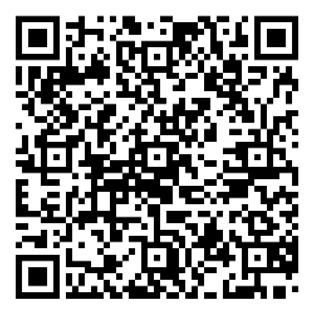
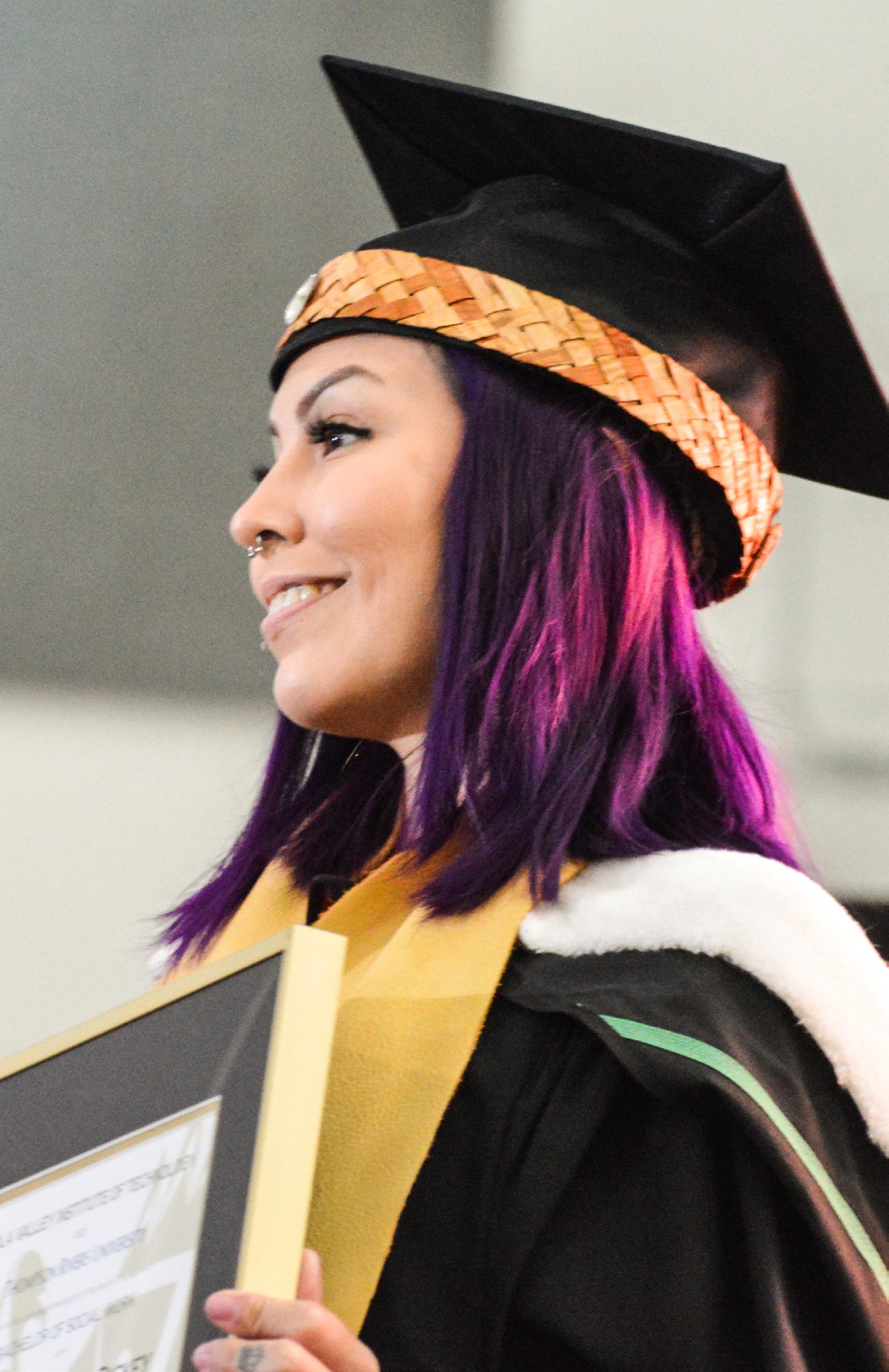
KIRSTEN DICKEY
KIRSTEN DICKEY
BACHELOR OF SOCIAL WORK
Kirsten Dickey of St’uxwtéws is a recent graduate of NVIT’s Bachelor of Social Work program whose passion for social work is rooted in lived experience. As an Indigenous woman, she is committed to addressing the gaps in mental health and substance use services for Indigenous people. “Too often, mainstream approaches overlook our histories, traditions, and values,” she says. “Mental wellness isn’t about fixing what’s broken—it’s about strengthening the foundation that already exists.”
For Kirsten, effective social work is about building meaningful connections. “It’s the bonds we nurture within ourselves, our families, and our communities. When we take a strength-based approach, we celebrate resilience and potential,” she explains. NVIT’s community-oriented environment and integration of Indigenous knowledge played a vital role in shaping her path. “Being close to my family while learning in an environment that honours Indigenous ways of knowing has been invaluable.”
Kirsten completed her practicum with Interior Health’s Mental Health and Substance Use team, gaining hands-on experience that has prepared her to support and advocate for others. Now, as a graduate, she’s ready to carry her knowledge forward and make a lasting impact in the field.
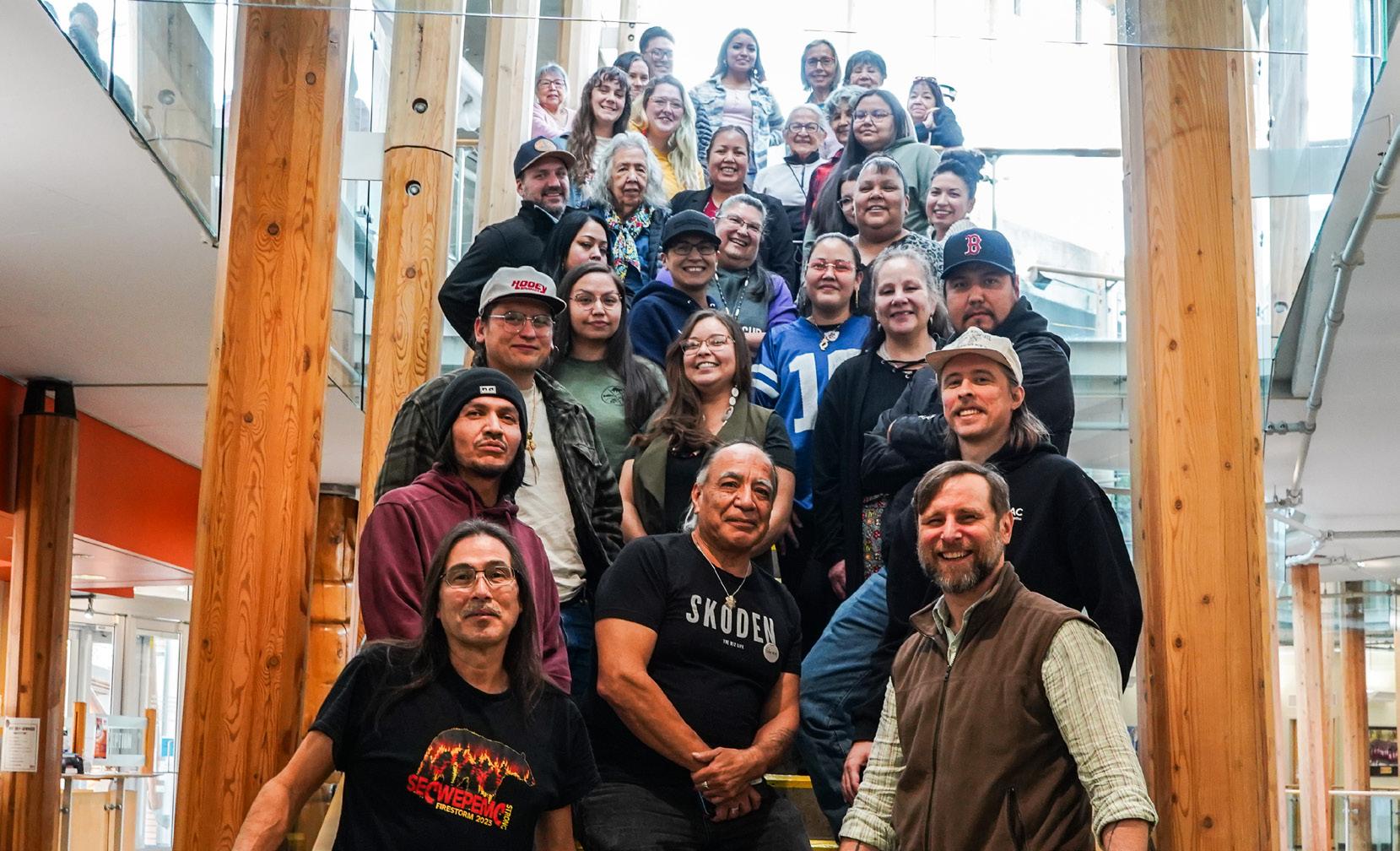
Indigenous Language Fluency
INDIGENOUS LANGUAGE FLUENCY
Certificate / Diploma
The Indigenous Language Fluency certificate and diploma programs are designed to meet the community, First Nations and academic standards to ensure NVIT graduates are successful and effective language fluent speakers in their respective BC Indigenous communities.
Admission is open to all learners within the respective communities, particularly those wishing to enhance their knowledge, understanding and conversational ability of Indigenous languages. This program is designed to be delivered year-long through the Fall, Spring and Summer semesters.
The Indigenous Language Fluency Certificate & Diploma is approved by the local language authorities in their respective communities. Successful completion of the program will allow graduates to work with community members and First Nations organizations.
Language Offerings:
• Dakelh Language Fluency
• Nadut’en Language Fluency
• Niwhkinic Language Fluency
• Nłeʔkepmx Language Fluency
• Nsyilxcen Language Fluency
• Secwépemc Language Fluency
• St’át’imcets Language Fluency

MOLLY TOODLICAN
NŁEʔKEPMX LANGUAGE FLUENCY
Language is more than just words—it carries identity, history, and connection across generations. For Molly Toodlican, an alumna of NVIT’s Nłeʔkepmx Language Fluency program, reclaiming her language has been a deeply personal journey. Although she grew up hearing parts of it, she realized her generation held only fragments. “I have been learning about my language for a long time, and I feel that it is too late for me to fully learn it,” she shared. “But I can teach my grandchildren the language, as I can read it… I need practice, but I am determined.”
One of Molly’s proudest moments has been sharing the language with her grandson. “He is a fast learner, and it is very important that he keeps on learning. Seeing him pick up the language gives me hope for its survival.” That hope fuels her ongoing dedication to language revitalization and cultural preservation.
Now serving as NVIT’s Language and Culture Coordinator, Molly supports others on their own learning journeys. Through language, traditional teachings, and community engagement, she helps students reconnect with their roots. “It has opened my knowledge of culture and given me the opportunity to help others learn about their own heritage. I love teaching my culture, and maybe someday, I will teach the language too.” Her story is a powerful reminder that it’s never too late to reclaim and protect what matters most.
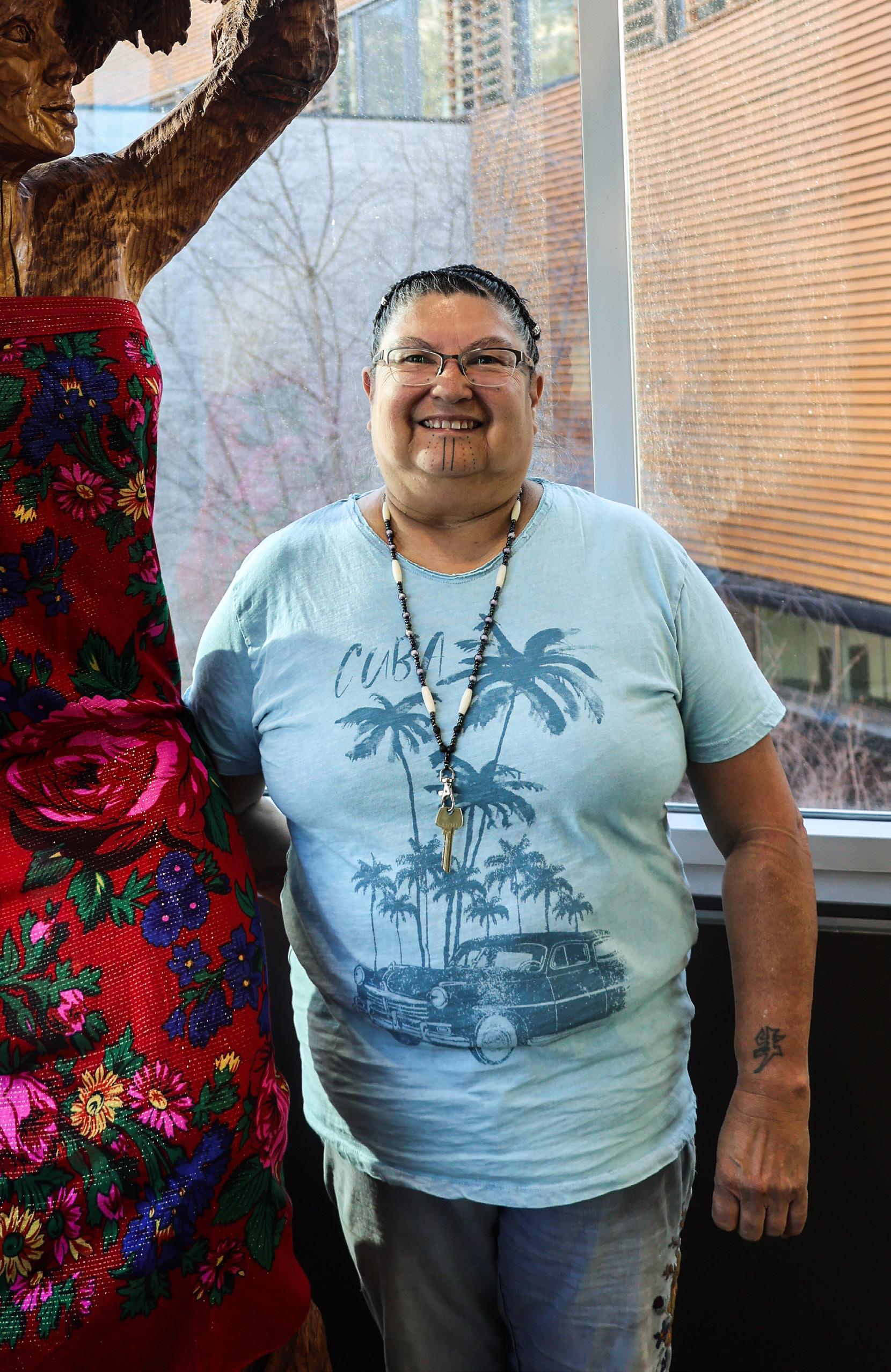
Continuing Studies
The Continuing Studies department offers a variety of health and safety, personal development, and cultural interest courses.
Courses include:
• Basic First Aid
• Intermediate First Aid
• Advance First Aid
• Emergency First Aid
• Standard First Aid
• Transportation Endorsement
• Emergency Medical Responder
• Mental Health First Aid
• FOODSAFE Level 1
• WHMIS 2015
• CSTS-09
• Traffic Control
• OSSA Fall Protection
• OSSA Elevated Work Platform
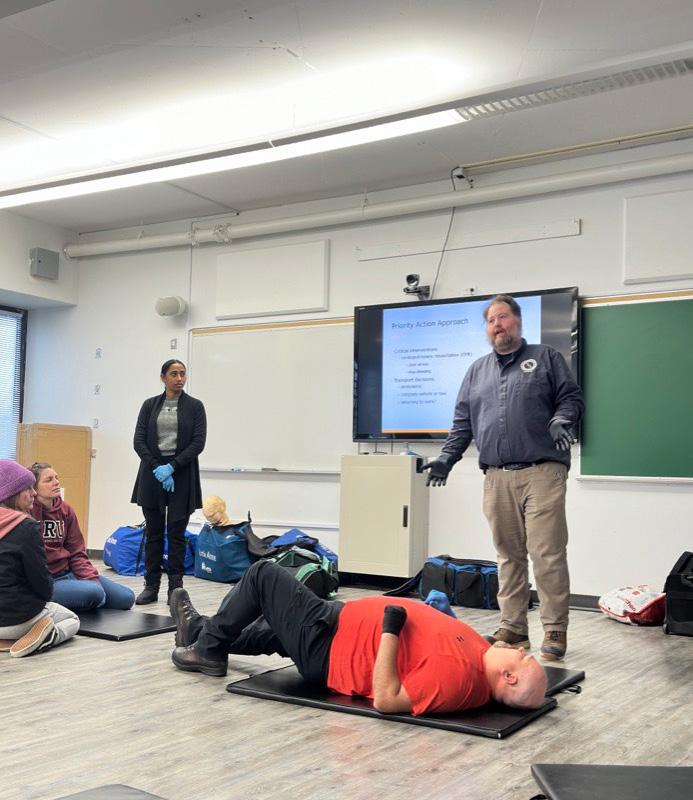
• Confined Space Entry & Monitor
• Confined Space Rescue
• H2S Alive
• Transportation of Dangerous Goods
• Forklift Training
• Intro to Grid Powered Solar PV
• Workforce Skills Training
• Cooking Class

Registration is on a first come first serve basis and seats cannot be reserved without payment or sponsorship form on file. For more information regarding registration, please contact NVIT Enrolment Services at 250-378-3300 or info@nvit.ca. For the latest course offerings, visit www.nvit.ca/ continuingstudies
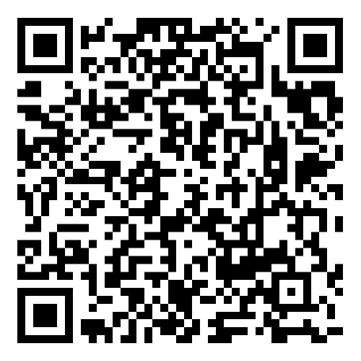
LEARNER LEADERSHIP OPPORTUNITIES
BOARD OF GOVERNORS
The Board consists of eight or more members appointed by the province of British Columbia and four elected positions that includes two learners, one faculty and one staff member at NVIT. NVIT’s President and its Education Council Chair are both non-voting members of the Board. The Board sets our mission, vision and values while providing overall direction as it is a key link with communities. The Board has authorities and responsibilities determined by provincial legislation.
EDUCATION COUNCIL
This council is primarily responsible for academic matters as defined in the College and Institute Act. Membership consists of faculty, support staff, learners and administrators, as legislated by the College and Institute Act. The Education Council meets on a bi-monthly basis and is supported by sub-committees as well as the Vice President.
STRATEGIC ENROLMENT MANAGEMENT COMMITTEE
The NVIT SEM Committee is a crucial component of planning for the development and sustainability of NVIT. At NVIT, SEM focuses on identifying and implementing relevant practices and policies focused on learner success while continuously increasing enrolment numbers and retention levels. A realistic strategic enrolment management approach looks at the entire learner cycle, from prospective learner through to graduate. SEM begins with an appreciation of the particular environment the institute finds itself in, anticipates changes, addresses the institute’s mission, vision, and goals, and takes a systemic approach to linking campus-wide services, support and programs.
STUDENT SOCIETY
The NVIT Student Society is a learner-governed entity that is responsible for allocating student activity fees on behalf of the learner population. This society is actively involved on both campuses with events, leadership opportunities, volunteering and much more!
STUDENT AMBASSADOR PROGRAM
The NVIT Student Ambassadors are a select group of student leaders who assist NVIT. As an NVIT Student Ambassador, you’ll have the opportunity to make a significant contribution to the NVIT community while developing your interpersonal, professional and leadership skills.

BECOME ONE OF OUR STUDENT AMBASSADORS!
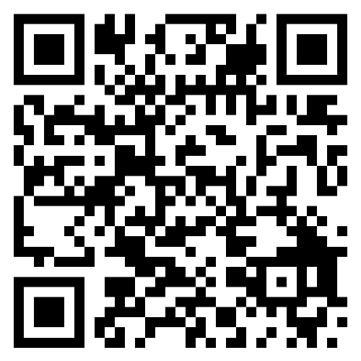
CO-OPERATIVE EDUCATION
Co-operative Education is an opportunity for learners to explore their career options by alternating between study semesters and paid resume-building work semesters. Co-op learners graduate with a year of experience, extra credits and an advantage over the competition. At NVIT, co-op learners alternate academic terms with work terms and graduate with up to one year of relevant paid work experience. This means one year of experience learning how to navigate the hiring process, applying skills to real-life problems and learning about oneself along the way.
Every learner’s co-op experience will look a little different depending on their program, interests, goals and work experiences. Learners will complete two work terms (four months in length) throughout the duration of their co-op placement.
CURRENT PROGRAMS THAT ARE ELIGIBLE FOR CO-OP:
Associate of Arts Degrees
Culinary Arts Professional Cook Level 1
Executive Assistant Diploma
Environmental Resources Technology Certificate & Diploma
Office Administration Certificate
SAMPLE YEAR 1
Fall: Sept - Dec
Academic Semester 1
Winter: Jan – Apr
Academic Semester 2
Summer: May – Aug
Work Term 1
• Apply and be accepted into the Co-op program before December 1
• Enroll in COOP 101 - Spring Semester
• Complete COOP 101
• Enroll in COOP 110 - Summer Work Term
• Complete Summer Work Term and COOP 110 requirements
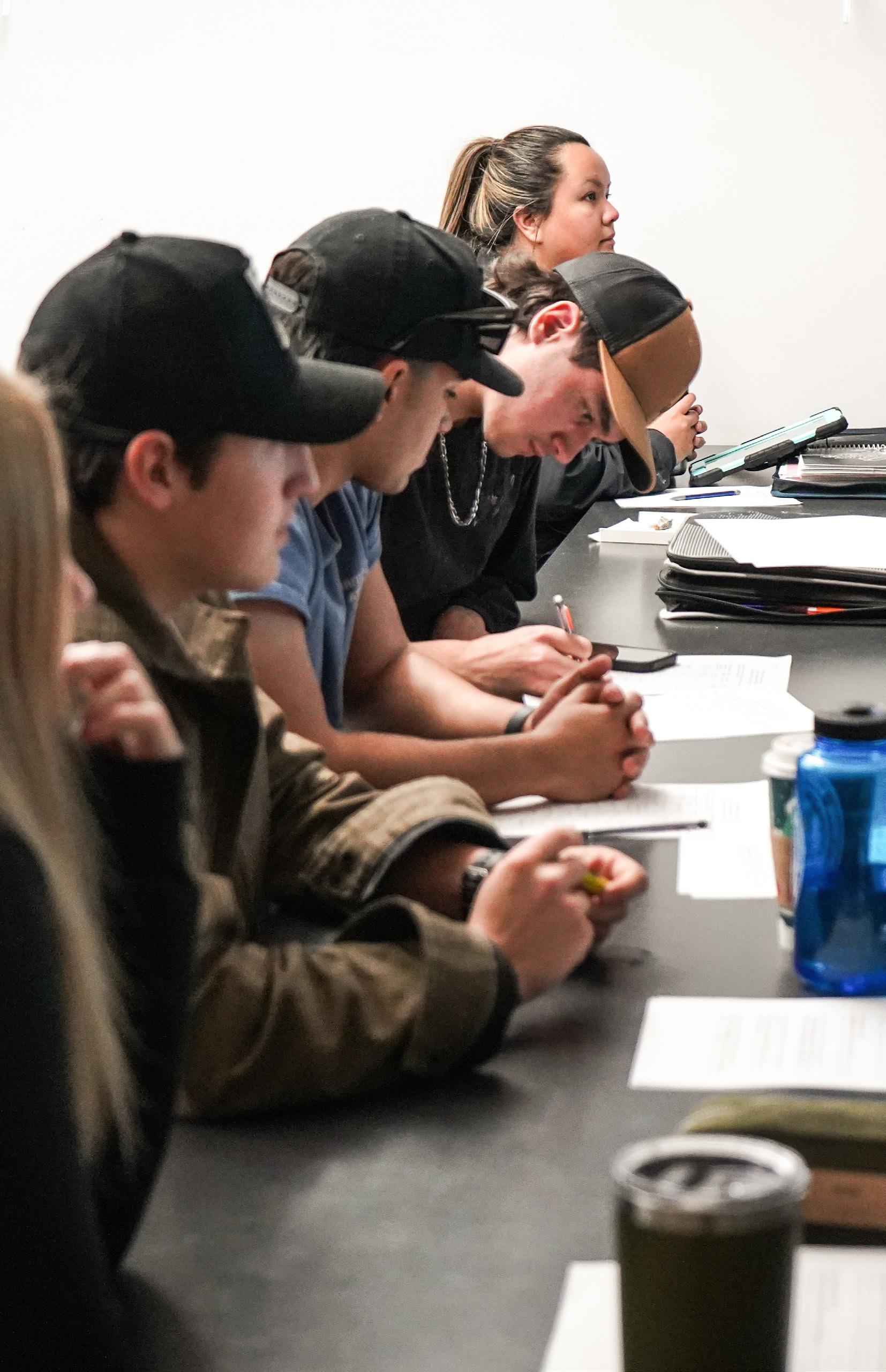
START HERE, GO ANYWHERE!
UNIVERSITY TRANSFER
NVIT offers a wide variety of certificates, diplomas or Associate of Arts degrees to suit your needs. A certificate typically takes one year of fulltime study while a diploma and Associate of Arts degree takes two years of full-time study. Both one-year and two-year programs provide many opportunities for career options whether in Environmental Resources Technology, Nursing, Indigenous Human Services, Business and more!
When you think of investing four years in a degree program, be sure NVIT is on your list of institutes to consider. What some people do not know is you can start here and go anywhere! Enroll at NVIT for your first two years and enjoy the benefits of smaller classes, genuine relationships with instructors, and lower tuition and fees as an introduction to your postsecondary experience while preparing you in a place that feels like home before setting off to a larger institute!
A four-year degree is called a Bachelor’s degree and can open up even more doors! After completing your studies at NVIT, you can pursue four-year degrees in various programs such as Bachelor of Business Administration, Bachelor of Natural Resources, Bachelor of Education, Bachelor of Arts and many other options!
Block Transfers occur when a group of courses, often in the form of a certificate or diploma, are recognized for transfer credit. Typically with block transfers learners will commence third year studies at another institution.
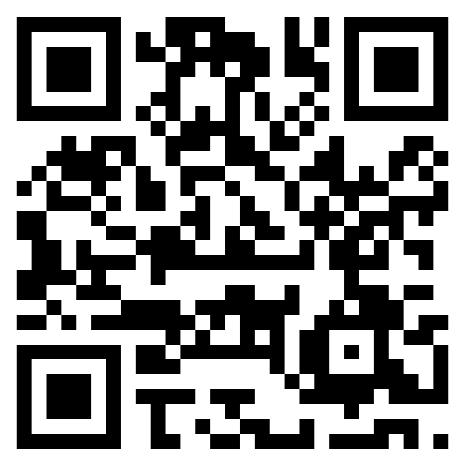
Visit bctransferguide.ca to find out more.
Indigenous Early Childhood Education Certificate
Indigenous Early Childhood Education Diploma
Transformative Education Pathway Certificate
Indigenous Holistic Wellness and Addiction
Environmental Resources Technology Diploma
Nsyilxcn Language Fluency Diploma
Bachelor of Education
Up to 15 credits
Minimum GPA of 60% Individual Assesment
Bachelor of Education
Up to 31 credits
Minimum GPA of 60% Individual Assesment
Bachelor of Education (NITEP)
Upon completion of 33 credits
Minimum GPA of 2.67 in upper-level courses
Bachelor of Integrated Studies
Up to 90 credits
Minimum GPA of 2.0, and admission to the program
Bachelor of Science (Natural Resources Conservation)
Direct transfer into Year 3 of program
Completion of 12 additional courses
Bachelor of Science in Forestry (Integrated Resource Management)
Direct transfer into Year 3 of program
Upon completion of 4 additional courses
Bachelor of Science in Forest Ecology Management
Up to 55 credits
Individual Assesment
Bachelor of Science in Wildlife and Fisheries
Up to 55 credits
Individual Assesment
Bachelor of Nsyilxcn Language Fluency (BNLF)
2 years | 63 transfer credits.
Completion of the 63 credits
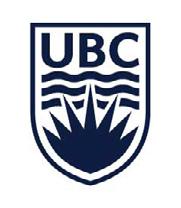


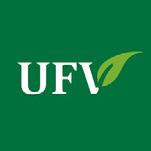


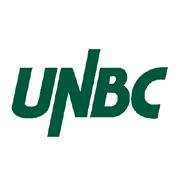

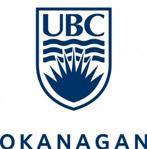
ACADEMIC & FINANCIAL PLANNING
Post-secondary education is an invaluable investment in the future, but the costs associated with pursuing higher education can be a significant concern for students, their families, and their communities. Recognizing this, NVIT is committed to ensuring that every qualified student has access to education, irrespective of financial constraints. This section is dedicated to guiding individuals through the intricacies of financial aid, making academic journeys not only achievable but financially feasible.
NVIT offers a comprehensive range of programs to both assist students in financing their educational and living costs and to recognize academic excellence. Funding can be a combination of bursaries, scholarships, awards, loans and grants.
The Academic and Financial Planners can help students plan their time at NVIT by providing assistance with student loans, additional funding, services for students with disabilities, emergency aid, fees deferral and even budgeting and money management.
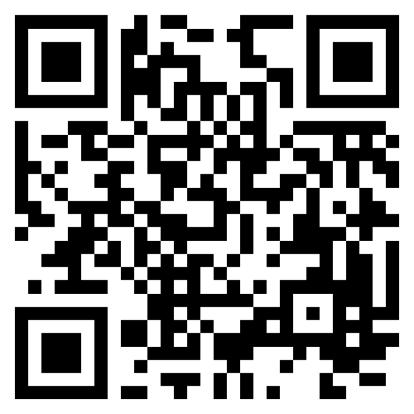
ENTRANCE AWARDS
Black Feather Fund
Entrance Scholarship
$1000 x 2 plus a renewable option
Awarded to two (2) full-time Indigenous students entering NVIT enrolled in a minimum 80% course load in any post-secondary level program at NVIT. Students must have met a minimum 65% (C+) grade point average in the last two (2) years of secondary level coursework and demonstrate strong extracurricular community and/or school involvement.
Deadline: August 15th
F. Gordon Antoine Memorial
Entrance Scholarship
$5000 x 3 plus a renewable option
Awarded to 3 students of NVIT. There will be one receipient from each of the three (3) categories. (1) A Nicola Valley Secondary School Student, (2) a Secondary School Student from anywhere in Canada outside the Nicola Valley, and (3) a Mature Student.
Deadline: August 15th
Casey Holmes Jr. Memorial Entrance Bursary
$500
Awarded to a graduate of the ENRT Certificate program who plans to complete the ENRT Diploma program. The student must be registered in full-time coursework in the diploma program and must have obtained a minimum 2.33 (C+) grade point average in the Certificate Program.
Deadline: August 15th
FPSE Local 19-NVITEA
Entrance Scholarship
$1000 x 2 plus a renewable option
Awarded to two (2) full-time students from any campus, registered in minimum 80% course loads, in any field of study that supports the labour movement, who demonstrate academic excellence and leadership skills.
Deadline: August 15th
ENTRANCE AWARDS
Grant Brusegard Memorial Entrance Bursary
$500 x 2
Awarded to a full-time student in any program at the Merritt campus who is registered in a minimum 60% course load, who attends regularly, achieves strong grades and demonstrates financial need. The student must be from the Lytton, BC area. If a recipient cannot be found, preference will be given to students from the Southern Interior of BC.
Deadline: August 15th
Mitchell W. Shuter Entrance Award
$2,500 x 2
Awarded to two (2) recipients of Indigenous ancestry enrolled in a certificate or diploma program at the Eagles Perch-Merritt Campus enrolled in a minimum 80% course load. One (1) award to a mature student (an individual that is at least 35 years of age and has been out of formal education for a minimum of five years) and one (1) to a Nicola Valley Secondary School graduate. Students cannot have previously attended postsecondary studies or have been funded through the secondary school ACE-IT program
Deadline: August 15th
Heather Klatt Memorial Entrance Bursary
$1,000 x 2
Awarded to two students registered in one of the Health Care Assistant, Health Care Access, or Access to Practical Nursing programs at NVIT. Students must be Canadian and enrolled full-time in any level of studies from the Merritt campus or from Community Education.
Deadline: August 15th
Native Northwest
Reconciliation Entrance Bursary
$500 x 2
Awarded to self-identified Indigenous learners from any campus (community programs included) who are enrolled in a minimum 60% course load for the for the upcoming academic year.
Deadline: August 15th
ENTRANCE AWARDS
Nicola Naturalist Society Entrance Scholarship
$1,000
Awarded to a full-time, graduating first year Environmental Resources Technology (ENRT) student, from the Merritt campus, expecting to continue into his/her second year of studies of ENRT at NVIT. The applicant must demonstrate high academic achievement, motivation, self-discipline, and dedication to his/her studies, and plans on pursuing a career in the Environmental and/or Natural Resources Field.
Deadline: August 15th
Technical Safety BC
Entrance Bursary
$4,000 x 3
Awarded to three recipients of Indigenous ancestry who are enrolled full-time (60% or higher) in any program, at any campus for the current academic year. This bursary provided by Technical Safety BC will support learners in their studies, particularly in the technical/trades education and social sciences.
Deadline: August 15th
Robert A. Lisle Memorial Transition Entrance Award
$1,000
Awarded to a mature learner, with high financial need enrolled in a minimum 80% course load in a certificate, diploma, or associate degree program at the Merritt campus. To be eligible, students must be entering the first year of a post-secondary level program and have completed upgrading prior to admission. Preference will be given to students entering the Access to Practical Nursing (APNS) program or an Associate Degree program after upgrading.
Deadline: August 15th
Immediate Entry Bursary up to $3,013
Awarded to Grade 12 graduates who graduate and transition directly from high school to NVIT. Students must have applied and been accepted by June 30, 2026 and be registered in a minimum 60% course load of first year postsecondary courses, each semester, for the upcoming academic year. Conditions apply. For more information, visit: www.nvit.ca/ieb
Deadline: June 30th
SUCCESS CENTRE
The Success Centre at NVIT endeavors to provide a culturally appropriate learner-centred environment, fostering informed and respectful working relationships with every student. Our holistic approach to learning integrates a safe space to share concerns, wellness support and referrals, academic skill development through diverse workshops, and resume and interview skill building sessions. In addition to these, in-person and online tutoring sessions are offered, which may include, but not limited to, writing support, effective listening and note-taking strategies, presentation skill building, study skills, and time management strategies.
Embedded within the Success Centre are our Accommodation and Accessibility supports. Through our commitment to equity, diversity, inclusion, and accessibility, we provide a variety of services that facilitate academic achievement for all students. From addressing learning disabilities to accommodating physical and/or temporary disabilities, the Success Centre is dedicated to fostering independence, self-awareness, and self-advocacy across all aspects of student life.
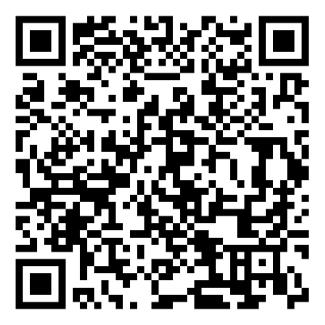
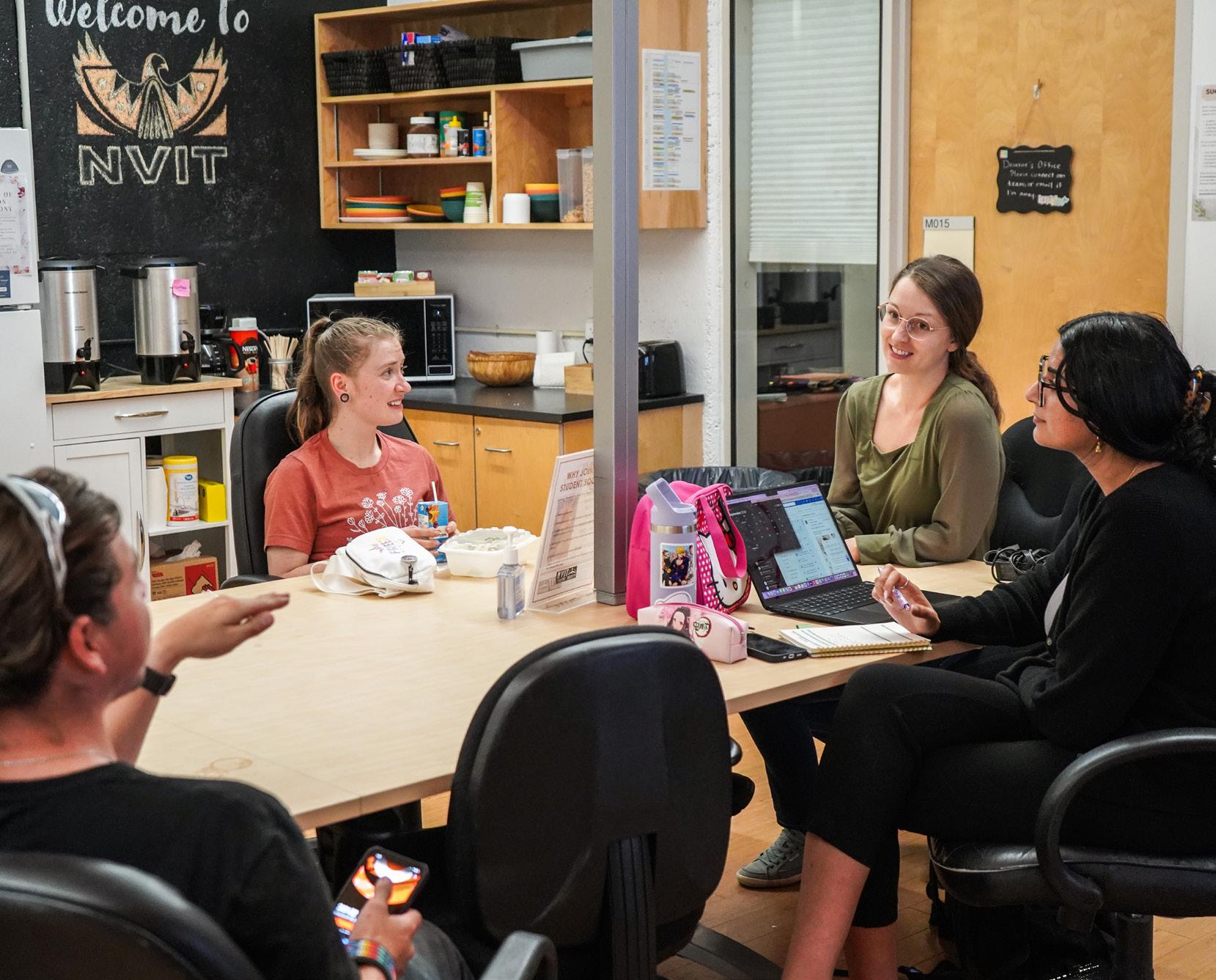
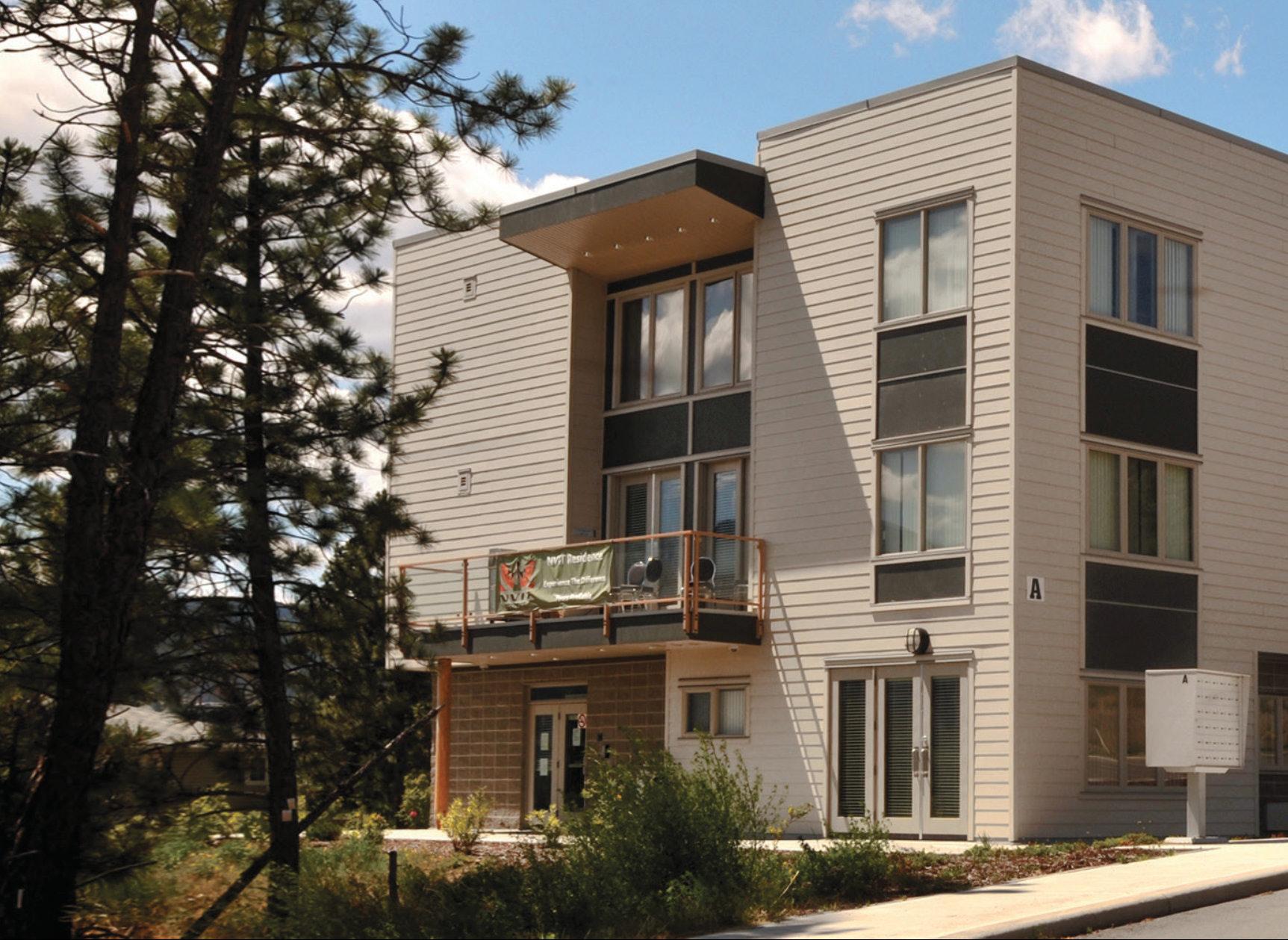

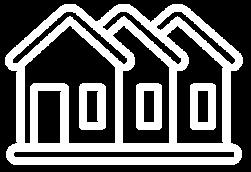
• Fully furnished rooms
• Internet services
• Single bed (captain bed)
• Study/desk work area
• BBQ facilities and patio
• 24-hour laundry service
• Common kitchen/lounges
• Games room
• Cable in common areas
• GPA based awards each semester exclusive to learners in residence
CHILDCARE (CONAYT)
The on-campus daycare is operated by a non-profit society. Licensed early childhood educators promote Indigenous culture and language through activities.
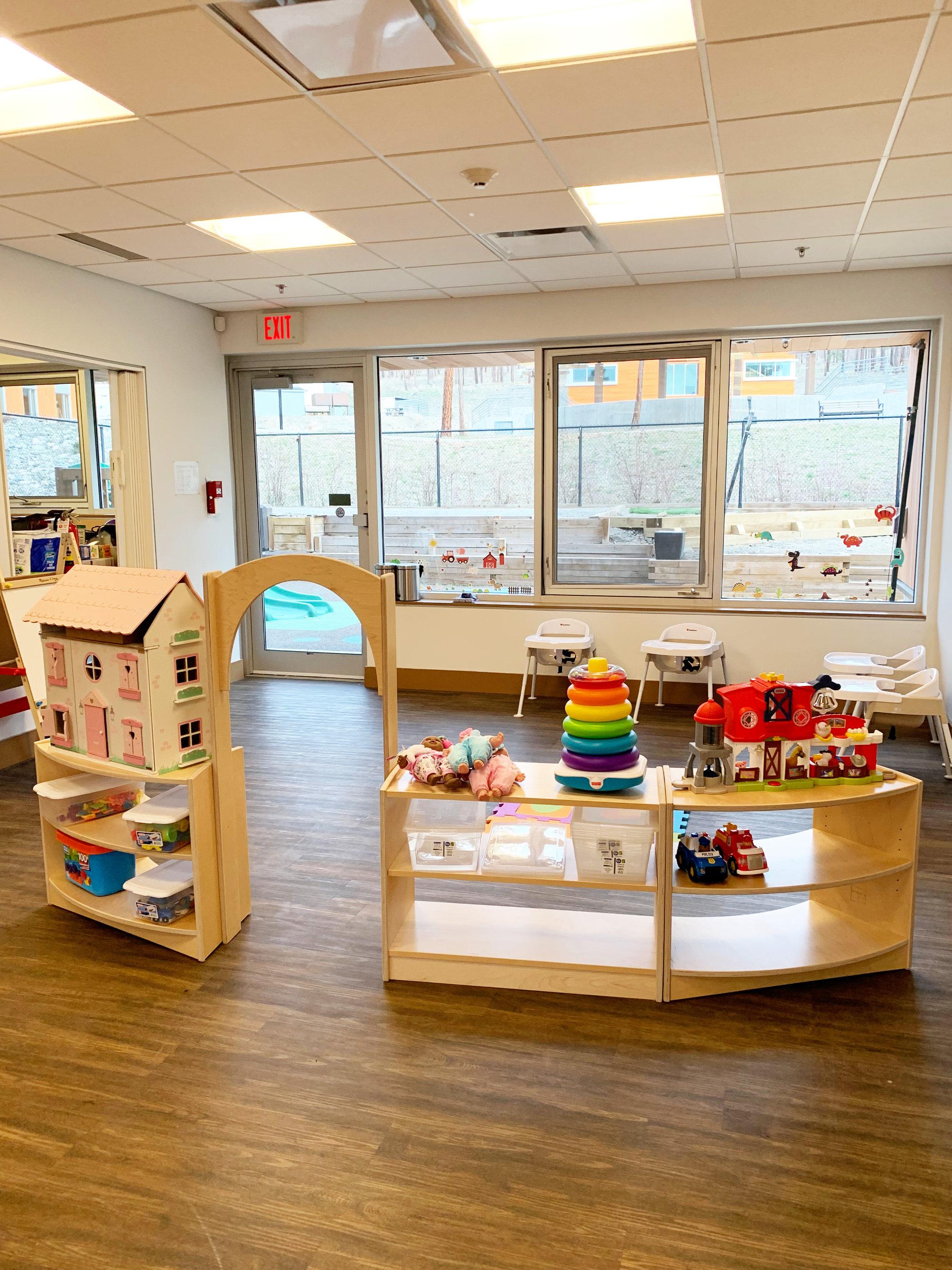
• 16 spaces for children ages 3-5
• 12 spaces for infants and toddlers
*Daycare Services are only available on the Merritt campus
NEED MORE INFORMATION? GET IN TOUCH!
Darby Collier
Aboriginal Head Start Coordinator headstart@conayt.com 250-315-7072 www.conayt.com

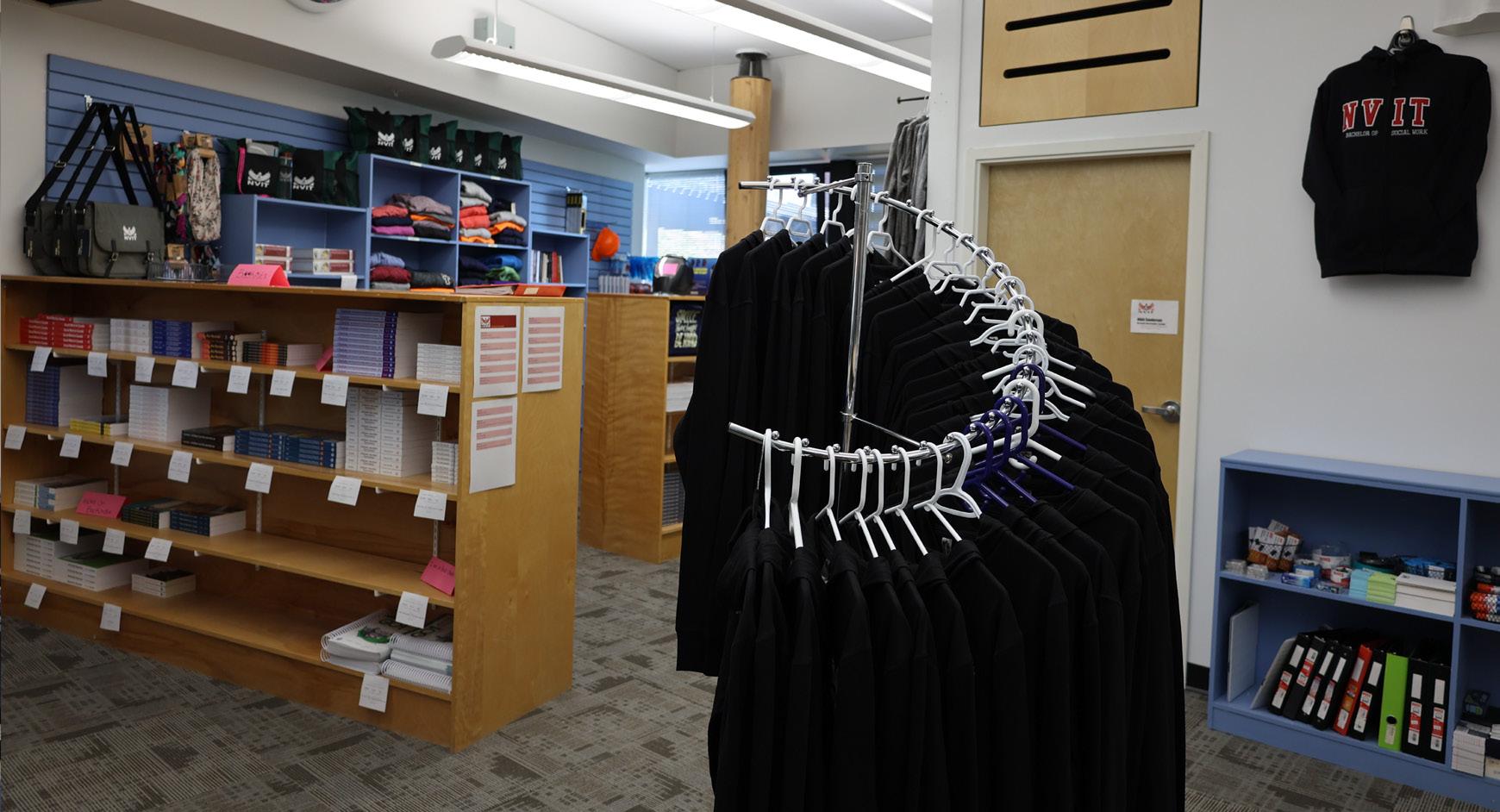
The bookstore is owned and operated by NVIT for the convenience of students and staff. You will find required textbooks, supplies and specialized equipment at the bookstore. There is also a wide selection of clothing, binders, packsacks, briefcases and other specialized items sporting the NVIT logo.
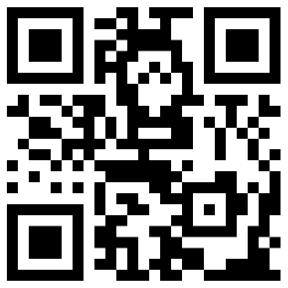
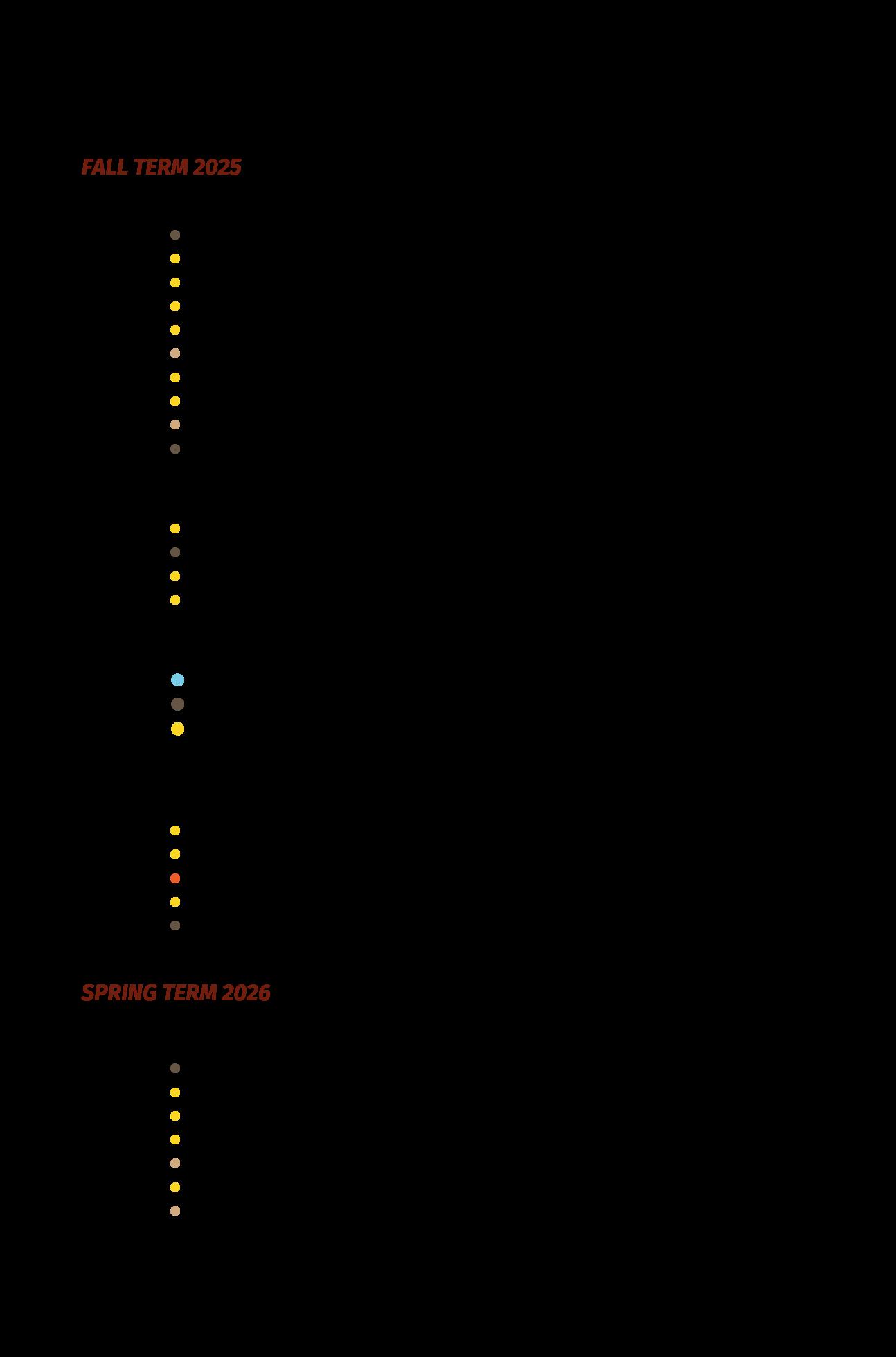
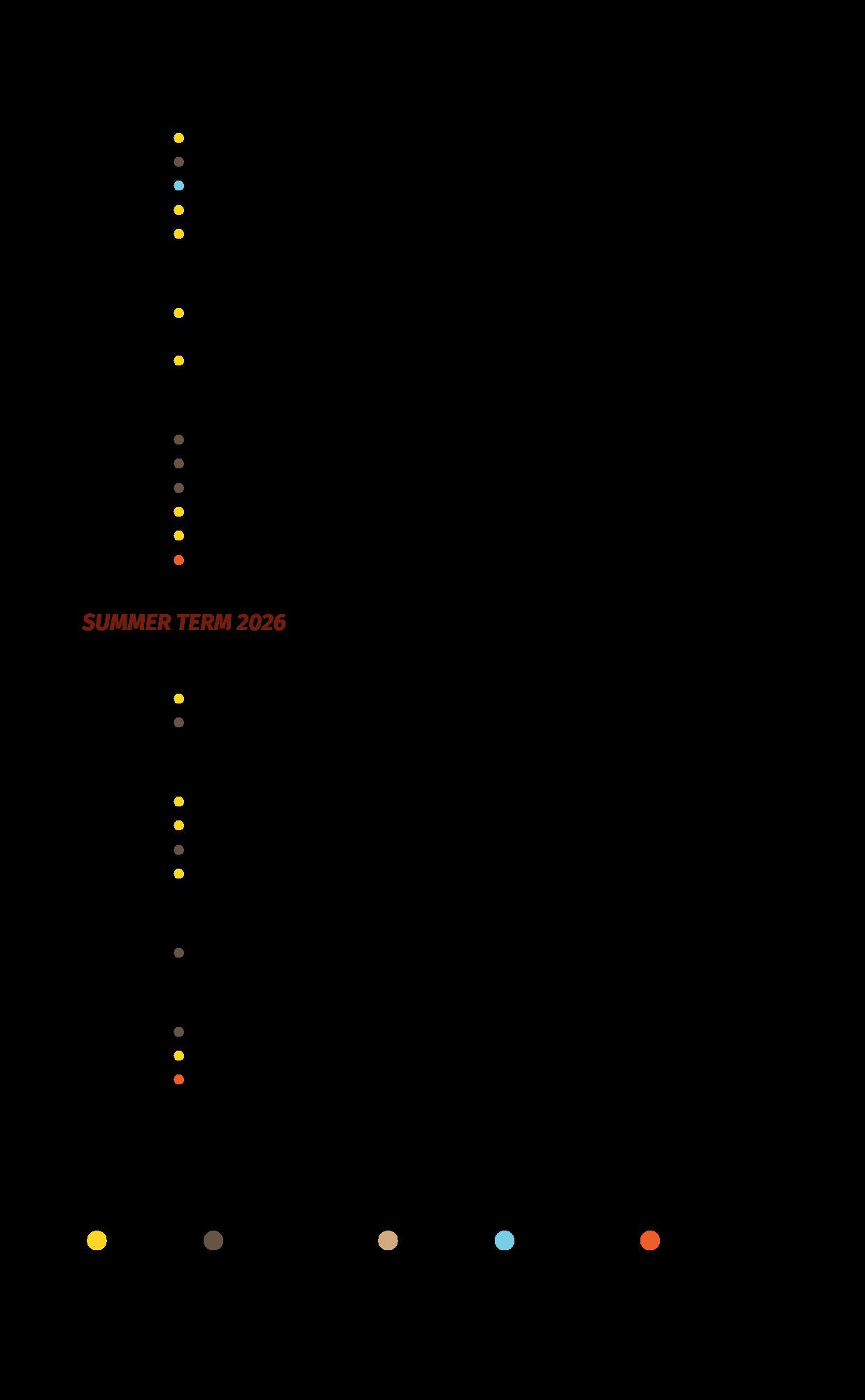
DIRECTORY
Merritt Campus
4155 Belshaw Street
Merritt, BC V1K 1R1
Metro Vancouver Campus 200-4355 Mathissi Place Burnaby, BC V5G 4S8
General Inquiries www.nvit.ca info@nvit.ca 1-877-682-3300
Admissions & Registration registrarsoffice@nvit.ca
Community Education cvaughan@nvit.ca
Academic & Financial Planning
Book an appointment at www.bit.ly/NVIT-AFP
Accommodation & Accessibility
Support accessibility@nvit.ca
Book an appointment at www.bit.ly/NVIT-Support

Success Centre successcentre@nvit.ca
Book an appointment at www.bit.ly/NVIT-SC
Bookstore www.shop.nvit.ca bookstore@nvit.ca 250-378-3320
Campus Events
General Campus Activities: events@nvit.ca
Recruitment Events: recruitment@nvit.ca
NVIT Communications communication@nvit.ca
Student Housing info@nvithousing.ca 250-378-3414 ext 1599
Childcare - Conayt Aboriginal Head Start, Merritt Campus headstart@conayt.com 250-315-7072
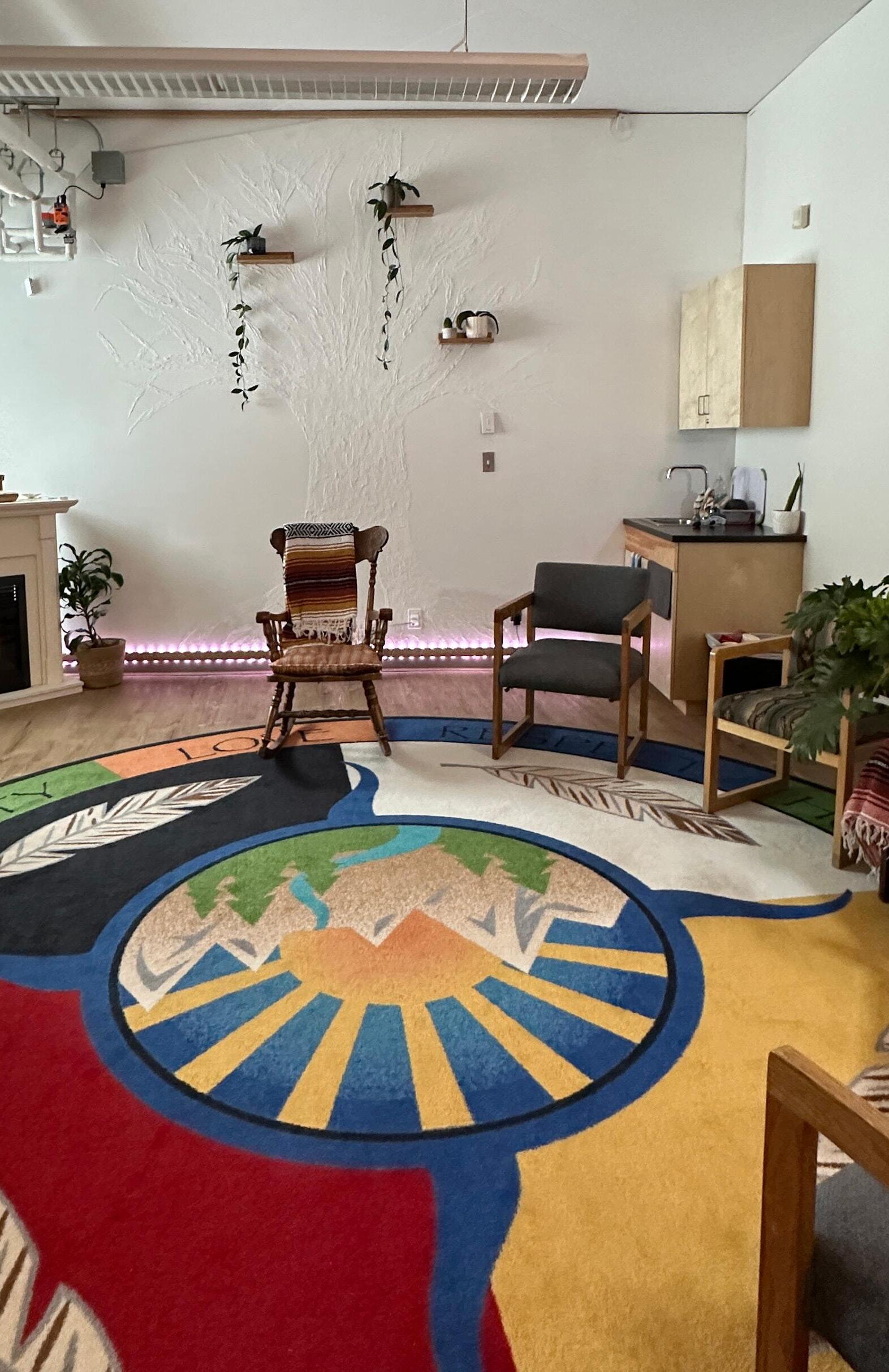
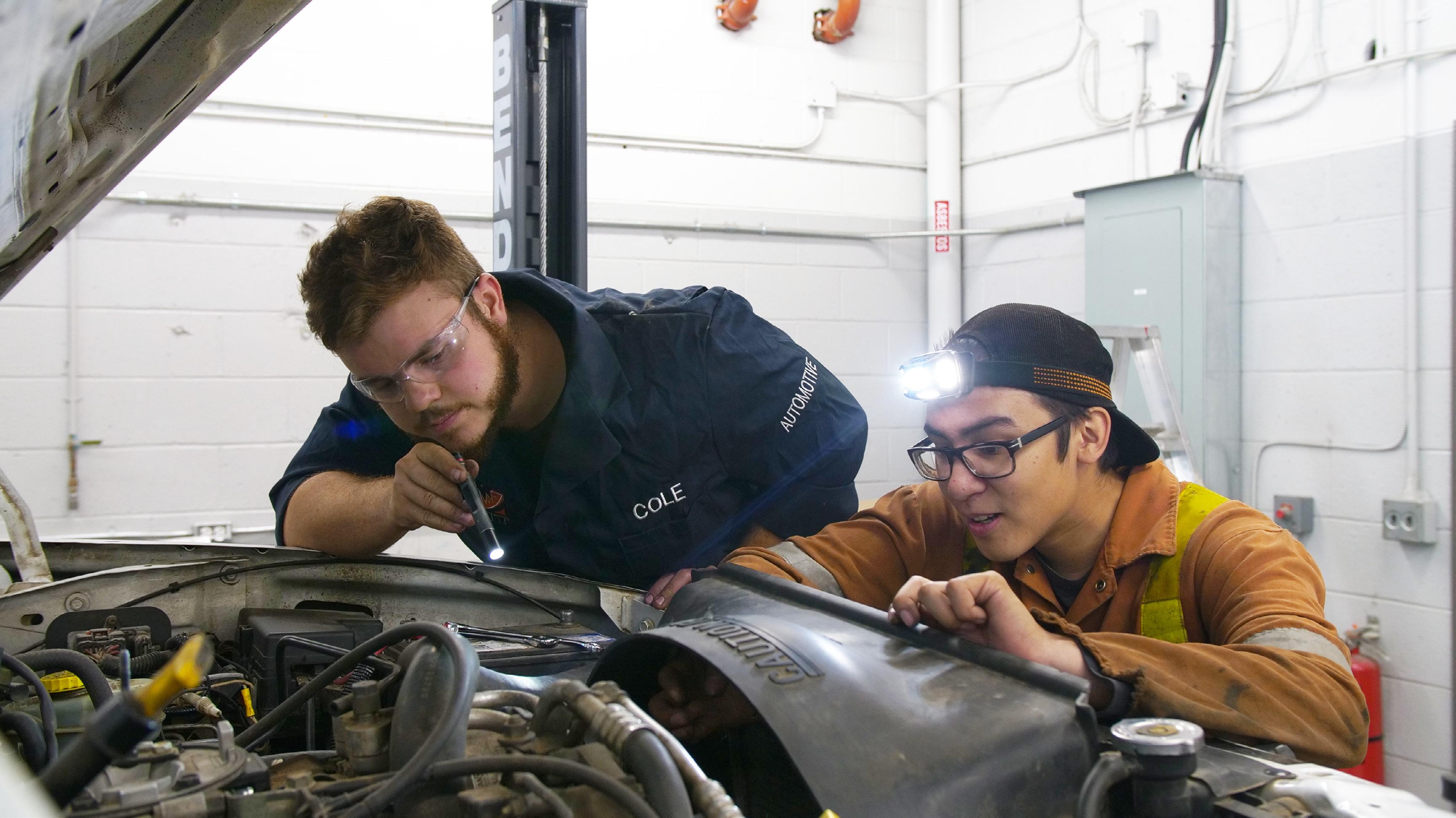
QUICK FACTS
SIZE OF LEARNER POPULATION
Enjoy the benefits a smaller community offers
The data shown represent the number of our students in the fiscal year.

TUITION
NVIT offers one of the lowest tuition rates in BC starting at $98.46 per credit or $295.38 per 3-credit course *for the 2025/2026 calendar year.
TRANSFERABILITY
NVIT has been a public institute since 1995. Programs and courses are accredited and transferable.
For information on transferability, please see the BC Council on Admissions and Transfer at www.bctransferguide.ca.
SMALL CLASS SIZES
NVIT’s small class sizes allow learners to share experiences, answer questions and interact with peers and instructors. As a result, learners are engaged, confident, experienced and prepared for the workplace.

